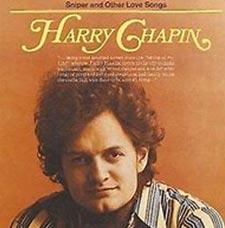Rock And Blues International

ALSO IN THIS ISSUE
Martin Barre
Jack Russell
Freddy Miller
Black Crowes
Duran Duran
Kerry King



ALSO IN THIS ISSUE
Martin Barre
Jack Russell
Freddy Miller
Black Crowes
Duran Duran
Kerry King

Hello Rock And Blues International readers. I hope everybody had a great January. Welcome to 2024. I hope and pray that everybody has a better year than last year. Each year should always be better than the last.
Rock And Blues is happy to announce that we have now entered the era of Podcasts. We would really like you to check out our new Podcast Channel - Rock And Blues International - The Podcast. If you like the interviews we feature in our publication, then you will love our Podcast Channel as we feature those interviews in their entirety there. On our Podcast Channel you can actually hear those interviews as they were originally done. This month our newest podcasts feature Tinsley Ellis and Biff Byford from Saxon. Our special guests so far are the Chris O’Leary, Paul Reed Smith, Honey Island Swamp Band, Paul Reed Smith, Bob Margolin, Don Dokken, Foghat (Scott Holt), Puddle Of Mudd (Wes Scantlin), The Blackburn Brothers, Coco Montoya, Barry Kerch from Shinedown, Jerry Shirley from Humble Pie, Jim Stapley from Humble Pie Legacy, Kissing Judas, Nick Moss, Devon Allman, Stevie D. from Buckcherry, Chris Henderson from 3 Doors Down, Garnet Grimm from Savoy Brown, Phil Lewis from L.A. Guns, Graham Russell from Air Supply, Robert Jon from Robert Jon and The Wreck, Selwyn Burchwood, J.W. Jones, Chris Henderson from 3 Doors Down, and Warren Haynes from Gov’t Mule. Future podcasts include JJ Grey, and Martin Barre from Jethro Tull. You can check it out on all the major podcast channels as well as at our website at http//www.rockandbluesinternational.com. We hope you enjoy them.
And now on to the March issue of Rock And Blues International. On the cover of this issue you can see JJ Grey. JJ Grey has a new album titled Olustee which will be released on Alligator Records. In this issue JJ tells us all about his new album. I can hardly wait for you to hear the podcast later this month. It was a fantastic interview He really gives us a lot of great insight into this new gem of an album. There is also another great interview with Martin Barre who discusses the legacy of Jethro Tull with us, and even another interview with Jack Russell of Jack Russell’s Great White. Jack Russell and Tracii Guns have just released their new joint collaboration album, Medusa. Here’s another great interview you won’t want to miss. We’ve also got a great story by Edoardo Fassio about Freddy Miller. Be sure to check that one out too, it’s very interesting. There are also stories on Tab Benoit, OMD, The Black Crowes, Duran Duran, Nitty Gritty Dirt Band, Vampire Weekend, Revolution Saints, Accept, Sirius Voltage, Kerry King, Tesla, Pearl Jam, Amy Winehouse, and more! As you can see, there are a lot of varied genres of music here for you to check out, or as we like to say, there’s a little of something for everyone here. We have even included the current installment of the novella, “The Biker”. Read it and than email us back with your thoughts on this. So far our readers seem to really like this Blues loving Biker.
I sincerely hope that everybody reading this publication finds something here that they like and I would like to encourage you to let your friends and colleagues know about us. Just look for us every month at http://www.rockandbluesinternational.com. I would also like to encourage you to email us for a free subscription to Rock And Blues International as well. Just email us at rockandbluesinternational@gmail.com and in the subject line simply put “Sign Me Up” and we’ll email you a link to the magazine each month when it is published.
Http://www.rockandbluesinternational.com
Mailing
77573
Tin By
Page 6
JJ Grey & Mofro
JJ Grey & Mofro Release Their New Alligator Records Release Olustee
JJ Grey Talks About The Writing And The Making Of Olustee

Page 18
Martin Barre Brings The History Of Jethro Tull To Life Again On His New Tour “A Brief History Of Tull”
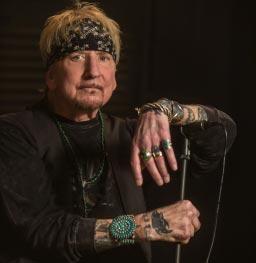
Page 30
Jack Russell
Jack Russell And Tracii Guns Release Their First Joint Album Together, “Medusa”

Page 40
Freddy Miller
Edoardo Fassio talks about Blues great Freddy Miller and his new album Just Be Yourself

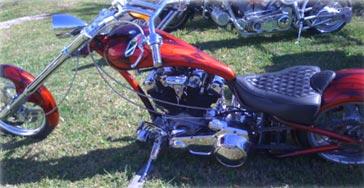
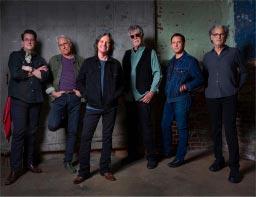

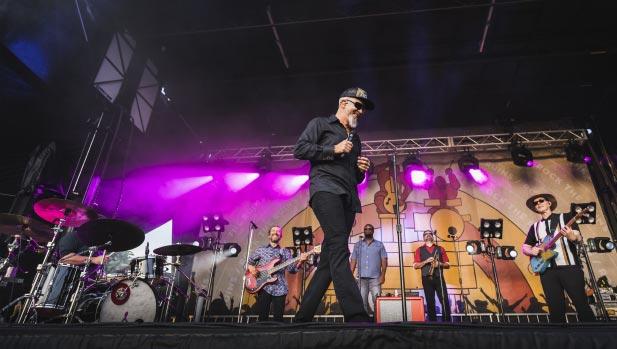
After nearly a decade-long hiatus, JJ Grey, the renowned musician, singer, and artist, has made a triumphant return to the music scene with the release of his highly anticipated album, “Olustee.” Marking his first release in nearly eight years, Grey’s latest offering has been eagerly awaited by fans who have long admired his deeply moving, funk-infused rock and soulful melodies.
Describing his creative process, Grey reflects, “The best songs I’ve ever written, I never wrote. They wrote themselves. The best show I ever played, played itself and had little to do with me or talent. To me, those things come from the power of an honest moment, and I guess I’m trying to live in that power and not force life to cough up what I want.”
Since his debut album, “Blackwater,” in 2001, Grey has captivated audiences with his masterful songwriting
and gritty baritone vocals. With “Olustee,” his tenth studio album and first self-produced project, Grey continues to share his personal stories infused with themes of redemption, rebirth, and inner peace. His music transcends mere entertainment, delving into the heart of Southern life with a raw authenticity that resonates deeply with listeners.
Filled with vividly detailed narratives inspired by Grey’s experiences in the Northern Florida swamplands, “Olustee” transports listeners to a world rich in both the carnal and the cerebral. From the introspective balladry of “The Sea” to the exuberant celebration of life in the radio single “Wonderland,” each track on the album offers a glimpse into Grey’s multifaceted musical universe.
Drawing from the mythical tales and characters of his ancestral Florida home, Grey weaves a tapestry of sound that is as soul-stirring as it is sonically captivating. Whether recounting an
escape from a wildfire in the title track or exploring introspection in the closing number, “Deeper Than Belief,” Grey’s message remains clear: cherish the natural world, embrace the present moment, and never underestimate the power of a good time.
With “Olustee,” JJ Grey has once again pushed the boundaries of his artistry, delivering an album that is destined to stand as a classic in the annals of Southern music. As fans revel in the return of one of their favorite troubadours, Grey’s timeless melodies serve as a reminder of the enduring power of authentic storytelling and the transformative nature of music.
We had a chance to sit down with JJ Grey recently and his insight into the album was truly fantastic. I can tell that this guy just loved every second on this album and it meant a lot to him. It was truly an introspective look into his life.
continued on next page
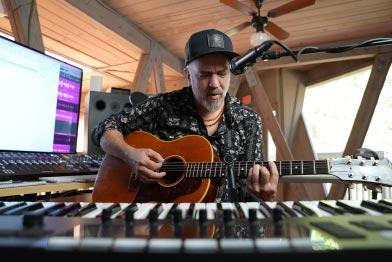
(continued from previous page)
Needless to say, the conversation was a hoot and it was a sheer pleasure to talk to him and now I’d like to share it with all of you right now, so without any further ado, here’s my talk with JJ Grey.
JJ Grey: Hello.
Rock And Blues International: Hello, JJ.
JJ Grey: Hey, this is me.
Rock And Blues International: Yeah, this is Kevin Wildman with Rock And Blues International. How are you doing today?
JJ Grey: I’m doing great. How about yourself?
Rock And Blues International: Doing wonderful, doing wonderful. I really enjoy the album. The one thing I noticed is, it’s quite unlike anything else I hear coming from Alligator Records. It is, it’s completely different. It’s definitely not hardcore Blues like I normally hear from them, so the big question is basically, Bruce Iglauer has to approve everything before it comes out, so what made Bruce come onto your music so heavily?
JJ Grey: You know, I have no idea. I first hooked up with Bruce back around 2004, is when I met him. The first time I was signed to Alligator the first record was “Country Ghetto” in 2007. And it’s
the same thing, it wasn’t hardcore blues. Bruce was kind of like, I mean, his sort of angle was, ‘I love what you do. It’s not what I do, and it’s not how I do it. So you make the music and get me the artwork and I’ll put the records out’. And that’s what it’s been. He’s not been involved with anything musical at all in terms of telling me what I have to do or not do. By the time he’s in the process is the thing of track order and he’s always got ideas and good ideas as well about that kind of stuff. But as far as the music itself, songwriting and the tones and arrangements, that’s my side of things. When it comes to like putting records out, I don’t know nothing about that. That’s his world. He knows both worlds too, he knows how to produce records, he knows how to do it all. He’s been in the music game a long, long time, but with me, he hasn’t ever got involved in that process.
Rock And Blues International: Well, that’s great that he has such implicit trust in what you’re doing there. I’ve talked to a lot of people on his label and he’s very hands on with their songs.
JJ Grey: Yes, yes. Well, yes, that’s what I’m told and it’s, I’ve never really... I’ll give you an example. On this record the single that they went with for radio, “Wonderland”, I was going to cut it. I wasn’t even going to put it on the album and Bruce talked me into it. He talked about it and I listened to him. I was like, ‘Okay, you feel that strong about it, let’s
do it. So it’s not like he doesn’t have anything to do with it, but he doesn’t have anything really to do with the songwriting and arrangement process and any of that part.
Rock And Blues International: Yeah, right. Right. Well, that’s an unusual story right there that he picked something that you were going to let go. He heard something there that you didn’t hear I guess.
JJ Grey: I guess, I’m glad he did.
Rock And Blues International: Well, by listening to this, it sounds like you live near the coast.
JJ Grey: I do, I live in North Florida where the piney woods meet with the swamp meet with the ocean and meet with the giant live oaks and stuff. It’s not the only place that’s like that. It’s similar up in South Carolina and parts of Georgia and across Mississippi and Louisiana and stuff. It’s kind of like the beach meets the swamp and meet all of it together. The ocean meets all of it together so yeah, it’s definitely a part of me I guess, whether I knew it or don’t I guess it’s a part of me.
Rock And Blues International: Right, well, the first two songs on here, “The Sea” and “Top Of The World” sounds like you’re just sitting out there on the beach.
JJ Grey: Yeah, yeah, “Top Of The World”, absolutely. “The sea” is definitely that and “Top Of The World” is not even 200 yards from the area that inspired the song “TheSea”. “Top Of The World” is inside a little river that comes in, a little cut comes in right in off the ocean there by the beach and there’s a bunch of sand bars at low tide and boats and all get out there and barbecue and hang out. There are all kinds of people out there in the summertime, so they’re two different angles from the same place.
Rock And Blues International: So for inspiration, you just look out your window.
JJ Grey: Sometimes. Absolutely. Absolutely.
Rock And Blues International: Tell me a little bit about “The Sea”, your
continued on page 10
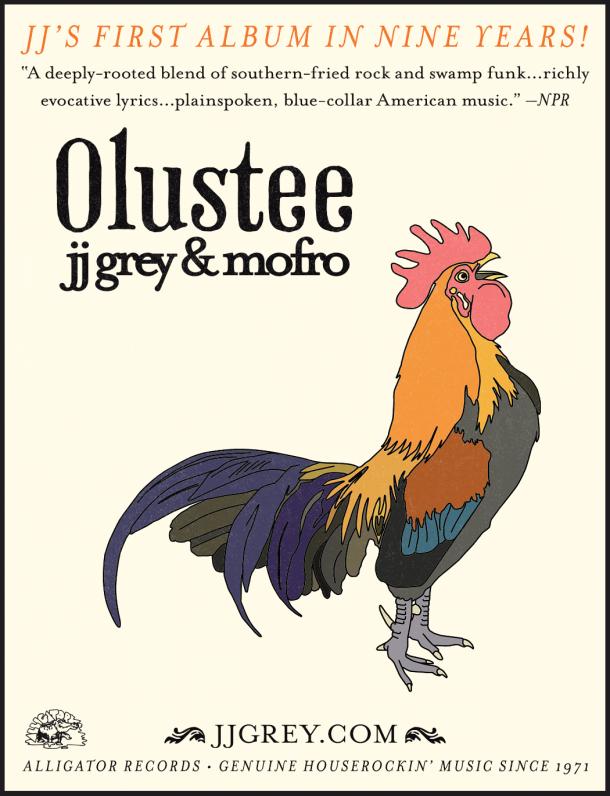
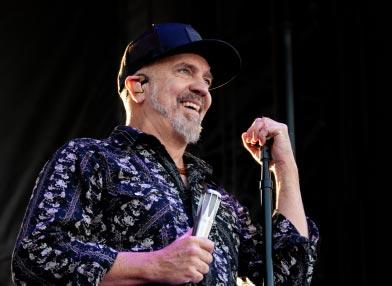
(continued from previous page)
inspiration behind that, the catalyst for that song.
JJ Grey: So yeah, I grew up surfing here and other places and I had some really surreal moments in doing that over the years. And it’s just been so many times that I’ve been sitting out there waiting on a wave or something and a group of pelicans fly by or even more. I don’t know why this affects me, but it does. I just love to see it, whether I’m driving up the coast to go to town. You come across the inlet there, you look out there you see the little, they’re not just little, a lot of time they’re big boats. But they’re out there on the horizon, just a little light twinkling on the horizon. I don’t know why, there is something about that, that whole thing. And then I sat there on the rocks one time, a big ‘ol thunderstorm came up and those boats were twinkling out there and as you’re watching the sun’s going down behind you, and the moon’s coming up in front of you and it’s just feels surreal. So all those kinds of things swirl together in a stew, if you will, and I think that’s why I wrote the song.
Rock And Blues International: Do you still surf?
JJ Grey: Oh, yeah, when I can. It’s wintertime now, it’s kind of sit me down a little bit. I need to get out there and get back into water a little more but the
water’s a little chilly. It’s not super cold. People up North would laugh at me because our water right now is their water in the summer but I gotta get back out there.
Rock And Blues International: Well, you’ve got a wet suit, don’t you.
JJ Grey: Yeah, I’ve got a couple.
Rock And Blues International: Okay, well, that helps, especially in the wintertime.
JJ Grey: Yeah, 100%. I just got to get back in paddling shape.
Rock And Blues International: right.
JJ Grey: The problem that a lot of guys have when they surf in that and they get a little bit older, you get lazy and you only want to go when the waves are great. But here in Florida, it’s not that often. So if you don’t go when its so cold, you won’t be in shape good enough to surf when it’s great. You get beat, you know, so I just got to get off my butt and go more regularly.
Rock And Blues International: Are the waves real good around your place?
JJ Grey: They can be but most of the time, it’s Florida, so it’s... I mean,
don’t get me wrong, when it’s on, I love it. And there’s been waves all this past week and I still didn’t go. When I drive in to town, I go over an inlet and I can see the ocean. I see the surf and I see it every morning just about and I’m like, Oh my gosh, it’s the waves are good. Plus, I check the surf out no matter where I am in the world. I’ll always check the surf at home and wherever I am just to do it. It’s just habit I guess.
Rock And Blues International: Well,I live down near Galveston and so most of the time there’s not really many waves, but as soon as a hurricane is coming through or a big storm, the freeway’s just lined with cars with boards heading to the beach. That’s the only time we can get away a decent wave.
JJ Grey: Yeah, yep, yep. Same here, same here. We probably get a little bit more surf more regularly than y’all do, but I would say like no, not a ton.
Rock And Blues International: Okay, tell me about “Top Of The World”. You’re sitting on top of the world right now. Why are you sitting on top of the world?
JJ Grey: Well, like what I was saying, if you’re not careful you’ll test yourself, believe me. I shouldn’t speak about other people but I kept myself focusing on when things go wrong and not like focus nearly as much when things go right. I guess that’s a human thing because the old saying is bad news can travel around the world before good news gets its pants on, so to speak. And taking something for granted like a summer and a Saturday afternoon and you’re sitting up there on the sandbar and people are just you know...., For me, we gotta do this jumping in kayaks and paddle out there to the sandbar. We got friends that have a boat, several friends that have boats and they go out there sometimes on the weekends and sit out there and we just all go out there and hang out. And it’s just such a wonderful feeling that they’re feeling and you feel like you’re on top of the world.
Rock And Blues International: All right, well, the next song sounds like it’s heavily influenced by water too. You’re on “On A Breeze”, you’re floating down the state, you’re floating on a breeze and... Well, it sounds like you’ve got big
continued on next page
(continued from previous page)
ties to the water.
JJ Grey: 100% . And that’s all it was, kind of about a seagull and a cross between the story Jonathan Livingston Seagull by Richard Bach and me watching the seagull. And one, it was just, you know, watching it sort of, without hardly flapping his wings because the wind was blowing, it was the Northeast and the wind was blowing pretty good out in northeast and this seagull just kind of came by me. Dusk was falling and the bird flew by me and then went straight on south till I saw it going out of sight. And it made me think of like, you know, man, it must be awesome to be that free. But at the same time, I realized that the only way to be that free is to be wild and be in the wild and that that’s not safe. But that’s okay, life doesn’t need to be safe. And that to me was what the song kind of wrote itself about in me. It was to remind me that if you want to be free, just be prepared for things to be wild and then not always comfortable and not always say so that all those kinds of things kind of float around our thinking and it wrote that song. It kind of threw me.
Rock And Blues International: Well, it sounds like you were out on a boat when you wrote this song.
JJ Grey: Yeah, I was actually sitting on the rocks at Fort George Inlet when it came, when the thing happened. Later on when I was just thinking about it, I’m not sure where I wrote the song actually, but maybe it’s several other places. But following up, it’s kind of a sister song in a way to “The Sea”. In fact, I wanted to do a video where both one song goes into the other between “The Sea” and that one. And it would start out in reverse of the order so to speak, than it is on the album. The video would start out “On A Breeze” and then turn into the song “The Sea”.
Rock And Blues International: All right. And then it gets real serious after that. “Olustee”. You talk about the wildfires of ’98. They devastated Florida back then. What brought that into the

picture here, the first three songs are about the sea and this one suddenly jumps to what is essentially a catastrophe in the annals of Florida.
JJ Grey: So, I did the music first. I did the whole thing, including when I demoed it here at the house. I did the long outro solo and everything in the music. I just didn’t have lyrics or a lyric idea yet and the music just sounded like a fire. It reminded me of the time I got caught in a forest fire my own self, and how fast things changed, and how quickly and how lucky I was to get out of the way of it. Then it reminded me of a story that my grandfather had told me about fire running through where he lives. He actually lived over by Olustee. He grew up out that way, way back in early 1900s and a big fire ran through there. It’s where he had to run down and get in to the Lake to get out of it. The song was kind of a sort of a composite of the two, the two things at the same time. It was actually three, because I got caught in one. I was, I don’t know, I was probably around high school age. I was pretty young, in ’98. The whole place was on fire and I got caught in another one a second time, but this time I was a little bit further away. But that was the craziest thing, one of the craziest things I ever saw in that time. You know, it seemed like the trees and everything were just exploding, just instantly combusting. It was like the heat and it was so hot. The heat alone would kill you if you were too close to it. You didn’t have to even get burned. If you were close enough to the heat, it made its
own wind like a damn hurricane coming out of it, blowing. So yeah, all those things kind of came in and that’s what the song sounded like to me. That’s what the music sounds like.
Rock And Blues International: Well, you definitely have the visualization there in the song. “Hear that pop go tree by tree”. That’s exactly what you just described.
JJ Grey: Yes, yes, absolutely.
Rock And Blues International: So did this album write itself or did you write the album?
JJ Grey: The album wrote itself. If I wrote it, then I’d have to probably start all over again. Because every time if I write something, and really spend time and try to get clever and make it this and make it back up, I can just easily throw it in the trash and start over again, so the album’s pretty write themselves. There’s some songs that are a little more where I’m kind of beating on it with a hammer and a saw, you know, trying to get into shape. Other ones just write themselves from start to finish and I don’t hardly do anything, you know, but for the most part, I try to let go and let it happen. Just let the song happen.
Rock And Blues International: You’re the messenger here.
JJ Grey: Yeah, I guess. Yeah, and the funny thing is, it’s always felt like
continued on next page
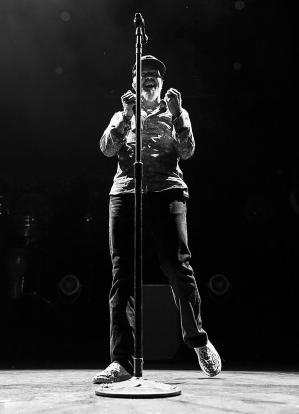
(continued from previous page)
I’m a messenger to me just like the little proverbial angel on one shoulder and a little devil on the other. And actually in life it feels like there’s a teeny tiny angel on one shoulder and a giant devil on the other. But it feels like the message is, is me sending post it notes to myself. That’s the way it felt. Honestly, I didn’t realize that till I got a little bit older and I went back and was listening to some of the songs, just kind of going through some of my own song lyrics. And I’m like, I didn’t even realize at the time I was writing this song to tell me to sort of as a post it note. Not consciously mind you, just some deeper part of me was writing to the shallower part of me trying to wake it up and try to make it to sort of live in a deeper, deeper level in life. So that’s the way it feels anyway.
Rock And Blues International: Well, the next song, I can see why you included it on the album, but you didn’t write it, “Seminole Wind”. I love your version of the of the John Anderson song. He did a great version, but yours just seems so personal.
JJ Grey: Yeah, you know, I’ve always loved that song. From day one, I’m a John Anderson fan period across the board. And in some fashion, some iteration or another, I’ve done that song in every band I’ve ever been in. Every band I’ve ever had, we covered that song, and as a matter of fact that we hadn’t and man we started playing it live. I had kind of not
played it for years and thought about it. Somebody said, man, do you still play “Seminole Wind” and I said, Well, I do now. I forgot all about that and we’re gonna go learn it. So it was pretty easy to learn because those guys can learn anything in five minutes. So the easy part was I’d already been playing it for years so the hard part’s normally for me to learn it. So we played it at a sound check and played it that night and then been playing it ever since off and on at shows. And I’m like, let’s record it man, I want to record that. So we did and the guys were just doing, just doing it so much and, I always wanted to hear a big horn solo on it instead of a guitar solo, like a classic southern rock tune. I want to hear a trumpet player play instead, or saxophone player play, but I felt like trumpet, I don’t know why, I just felt like trumpet and so I got Marcus to do it, to cut loose and I’m glad he did. It sounds so good what he did.
Rock And Blues International: Oh, right. And then “Wonderland.” So every day now feels like the first day of your life.
JJ Grey: Yes, yes. And that’s something that you have to visit for me as regularly as exercise. Ff you’re gonna stay in shape, you got to exercise if you’re gonna enjoy life. You got to pay attention to what all the things you have to be grateful for. And I struggled for years in writing a song that just, you know, I felt like something happy. I just feel like you’re lying to yourself to write a song that has a joy to it. I realized that’s because I was addicted to only one side of the story of my life, so I had to come to terms so to speak with enjoying things and realizing that joy is the opportunity for everything to be new every single time. So that’s how that all came about.
Rock And Blues International: What side of your life were you addicted to? Can you elaborate on that a little?
JJ Grey: Yeah, I was addicted more to the when things go wrong in life type thing. I wasn’t never paying attention all the time when things were going right. I was going to pay attention to when things went wrong. And there’s nothing wrong with that. Thinking about that, that’s the blues, which blues is in country music, reggae, it’s in everything. There’s people that tell stories that are about calamity, so to speak, or a rough time. And there’s something endearing and, and actually positive about realizing you’re not alone in the universe. And then other people go through stuff that you go through some time. But if that’s the only thing, you know, because some of my… funny enough, some of my favorite blues heroes like Junior Kimbrough, could sing “Sad Days Lonely Nights” which frankly to me is the heaviest song I’ve ever heard in my life. It’s just so brutally heavy. If your mom and daddy tell you you’re gonna have sad days and lonely nights then that’s a tough song. But then he turned around and sang, “The City”, you know, “Meet Me In The City”, and that’s a beautiful, much happier song. So I’m like, I gotta get to the happier side of my life to instead of everything being sad days and lonely nights, so to speak, metaphorically speaking.
Rock And Blues International: Yeah, blues is filled with a lot of that, like “Born Under A Bad Sign”. “If it wasn’t for bad luck, I wouldn’t have any luck at all.”
continued on next page
(continued from previous page)
JJ Grey: Yeah, that’s another heavy one. Yeah, absolutely. And then they have happier moments too where, like funny moments and all that kind of stuff. So, its like, I gotta have some of those, or more of those, so to say.
Rock And Blues International: Well do you have more of a happier life now?
JJ Grey: I think life is my life. It’s the same, but I think I noticed. I don’t think it’s any happier. I don’t think because it’s not things that happen that makes me happy. I’ve noticed that, that I’m even here. How did I even get here? You know, why do I flip a switch on the wall and lights come on, man. I mean, like that, it takes a lot. A lot of things have to happen in this universe for me to be able to be fortunate enough to have electricity for life. So those, those things, it’s not that they make me happy, I just noticed that there’s enough there to pull me there to be happy and grateful about and that makes me happy so to speak. My life really hasn’t changed, it’s still coming, coming at me. And the only thing I’ve tried to do is slow down my interpretation of it by paying more, trying to pay more attention to it instead of getting caught up in my head. Thinking about what’s happening is just like, see what’s happening actually happened. Kind of like when I was younger. It’s like, if you went to the Grand Canyon, and you’re standing there on the edge of it and it’s all before you this giant beautiful thing. But you’re not looking at it, you’re looking at a map of it. You know, you’re holding an iPad. You’re looking at a map of the Grand Canyon and pictures of it and you’re not looking up at the real thing. And so when I was younger, I was, of course we didn’t have Ipads when I was younger, but I mean the point being as a walk around proverbially looking at the map and not the path in life, not walking that path looking around everything. I’m looking down at a map the whole time. And that’s sort of, that’s the difference between when I was not as happy as I am now. It’s not so much that things have changed. The only thing has changed is I’m paying attention to life a lot more.
Rock And Blues International: Right? Well the next song, “Starry Night” sounds like you were sitting out by the campfire just staring at the stars enjoying the light from the stars and was it your wife or a girlfriend that you called over to you?
JJ Grey: Yep, wife. Yep, absolutely. Yep. And that that’s exactly what that is. And just one moment like that, you know, clear moment and just a moment where it didn’t have any sort of expectations. It didn’t have to live up to something or not live up to something. You’re just sitting there, chillin, looking up and then later on, it’s a little pinpoint in your memory. There was a lot of clarity there. And things were clear. You’re like, people say ‘what was clear’ and like, I have no idea. Is it clear. It’s clear as the sky was, so to speak.
Rock And Blues International: Well in the song, you’re sitting there, it sounds like you’re holding each other while you look at the stars.
JJ Grey: Absolutely.
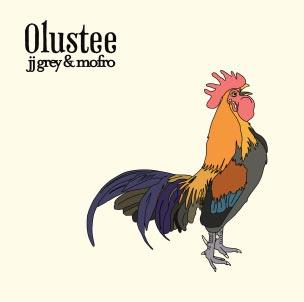
Rock And Blues International: It must have been a magical moment for you to turn around and write a song about that.
JJ Grey: Absolutely. Absolutely. That song wrote itself for sure.
Rock And Blues International: All right. Okay, on “Free High”, what are you listening to there, because this song just rocks. The horns on this song are unbelievable. I mean, there’s something going on here. What’s happening? What do you have on that turntable right now?
JJ Grey: Okay, so I’ll tell you, that song started, I actually started that with horn lines. I wrote all the horn parts first before I had anything else done. But again, I did the music and I still didn’t have the lyric idea. But the more I listened to it, the more it reminded me of when I was a kid and we closed in our back porch at my parents house. My dad did and then I helped as much as I can help as a kid. He put a pool table in it and it wasn’t hardly big enough. You could only shoot on each side of the pool table and wasn’t hardly big enough to get a pool cue up and laid out straight because it’s too narrow. And in the room there’s a little Montgomery Ward’s stereo system in there with a little turntable and my sister got me “Gold And Platinum”. That’s the first record my parents would let me have. It was a Lynyrd Skynyrd double album. She had a bunch of little 45’s, Disco stuff, the Bee Gees over to stuff like the Main Ingredient and all kinds of bands like that and I just had so much fun out there listening. My dad had a big 8-track collection. There was an 8-track player in the stereo and I listened to a huge country volume. It had about four different eight tracks at different eras and it kind of ended around the Willie Nelson era. Younger Willie Nelson, maybe the Seventy’s is when the 8-track, well that’s probably when they quit having 8-tracks anyway. They didn’t have 8-tracks in the 90s or 2000. So at any rate, there was a bunch of story songs on there like “Big John” and it was everything from crooner country stuff to
continued on next page

(continued from previous page)
me. It’s kind of like soul singer country stuff like Patsy Cline or Jim Reeves, super smooth crooner to “Hawkshaw” Hawkins and Jerry Reed was on there with “Amos Moses”, one of my favorite tracks of all time. So my whole point is I would say I listen to all this music. Whenever I didn’t have any else going on, I’d be out there listening, listening to music. And definitely that sounded like to me that because it was kind of electric and it was a song by Lynyrd Skynyrd called “I Know A Little” which was on “Gold and Platinum”. Real fast barnburner, but doesn’t sound anything like this at all. But just the spirit of that reminded me of listening to that reminded me of kind of like that, that kind of up tempo, happy vibe. So that’s how that’s how the song came about, basically, and it just started with a horn line and then later on, I had a chorus, you know, “Free High” just singing “Free High” and knowing enough about music as a kid.
Rock And Blues International: Yeah, so it was a return to your childhood.
JJ Grey: Yeah.
Rock And Blues International: Well, I love the song. The horns were just unbelievable on here.
JJ Grey: Cool, cool, cool. It was pretty busy, two diverging lines. That’s kind of ponderous for one player to keep doing that over and over again but I’m like when we play it live you don’t have to do the entire song but we’ll figure it out anyway.
Rock And Blues International: Have you performed it live?
JJ Grey: Not yet. Well we played it a sound check years ago, just the music because I hadn’t, I didn’t have, because believe it or not the music that you hear for that was recorded within a year and a half of the release of “Old Glory”. So we’re talking about that most of that was recorded in 2015, the music. I didn’t finish the lyrics not until maybe in October this past year, excuse me I’m lying, more like July, August around there I finished up.
Rock And Blues International: Well, it’s a rocker.
JJ Grey: Cool.
Rock And Blues International: “Waiting”, you’re waiting for tomorrow. Why do today what you can put off till tomorrow? Is that essentially what’s going on here?
JJ Grey: 100%, you nailed it. That’s sort of like, it’s a joke, a running
joke that I have with some buddies of mine and my family. If you get inspired to lose some weight. I’m gonna start exercising and let’s just say it’s Wednesday. Well you can’t start till next Monday. You can’t start now. It’s the middle of the week. I gotta wait till Monday and I’ve just realized like so often that’s probably just a ploy to not ever really get started at all and I thought how many things in life kind of go that way like I want to do this. But then you don’t do it. But you gonna get started Monday. It sort of reminds me of one of my favorite lines in the movie “Naked Gun Police Squad”, when he tells them, ‘don’t worry, nobody on this force will rest for one second till this criminals behind bars’ and he then he says, ‘now let’s go grab a bite to eat’.
Rock And Blues International: It’s like the old joke there. What day is always coming but never gets here? Tomorrow.
JJ Grey: Yeah, that’s right. That’s right.
Rock And Blues International: Yeah, we’re always waiting on tomorrow but it just never seems to show up.
JJ Grey: Yeah, buddy of mine’s got a restaurant and he had a sign up in it for years. I think still there. It says free beer tomorrow. The same thing!
Rock And Blues International: Well on “Rooster” here you’re really strutting your stuff here. You’re out there just... you’re protecting your woman, but you’re still out there strutting around.
JJ Grey: Yeah, I grew up with chicken. So when we moved. I said when I grew up with chickens, I grew up with growing season. We’d have 60,000 chickens. But those were hens for friars. Now when I got probably about 12 years old, my grandparents... Hell, maybe I was about 10 years old , I don’t know how old I was but anyhow, they switched over from fryers to layers, not for people to eat, but for incubating for the chicken grower company, the big company that they will grow, they will grow fryers for the same company, Cargill, and then they carry on sorry, growing eggs, having eggs, putting the eggs together, and eggs were gonna be incubated and hatched. Anyway, so that means you have to have roosters, and I got firsthand knowledge.
continued on next page
(continued from previous page)
When you walk into the chicken house and there’s 1000s and 1000s of chickens. Every eight hens there might be a rooster, and four or five of them gather around you and fly up and try to spur you. I also know that they didn’t do it to my grandad, they did it to me, but I was terrified of them as a kid. Anyway make a long story short, I still love chickens and I love roosters and when we went bought a new place out here, closer to the ocean, the lady what lived here she had chickens here and there was a little rooster and we called him Jim Jim. I don’t know what she called him but we call him Jim Jim and man, he was something else. And he was, he was a little banty rooster and the other chickens... There’s a couple of little banty hens but mostly full size hens but he took care of them and we had several good roosters and we also have one bad one that I got rid of him. Because, you know, there’s just like people and you can get one that beats up on the hens and try to beat up on the younger roosters and beats up on people. Anybody comes up there, you know. But they call in hens to food and basically... I had a hawk come down and jump on on a hen one time in there and there went the rooster straight up and jumped on the hawk and got it got him off of her and saved her. So it’s the whole idea that chickens are chicken, like, you know, don’t be a little chicken and all that kind of stuff. It’s like, man, I told somebody the other day, how brave does a tiger have to be when he weighs 300 to 400 pounds, and he’s got knives on every hand and knives in his mouth and he can hear and see. He ain’t gotta be afraid about how brave he’s got to be, but a chicken weighs two and a half, three pounds and they’ll take on anything to protect the hen. No, I like him. And so It made me remember how the men I grew up around were the same exact way. So I was like, You know what? I’m gonna to try to be like that. That’s what the song is about.
Rock And Blues International: I love the song. Tell me about some words here. “I’m a rooster, got the hammer down, By the grace of God, I can’t be bound. I’m a rooster and I can go all day,
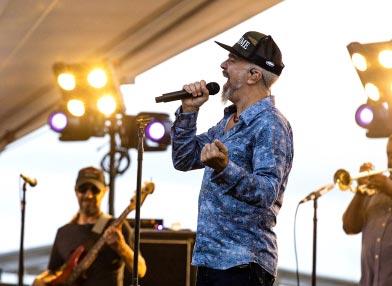
Love a little work and I love a lot of play”.
JJ Grey: Yeah. Yeah, so those lyrics, they just popped into my head. You know, in some ways, my drummer pointed out like that might be almost a nod to one of my heroes, Jerry Reed. And I’m like, ‘You know what, now that you say it, man, it does sound like I’m almost channeling Jerry Reed,’ you know what I mean? I’m like, yeah, he’s one of my biggest heroes. “Throw That Hammer Down”, and yeah, all that stuff right there is just like, that’s kind of the men I grew up around. That’s how they were. They were everything I just said in those lyrics. That’s how they were. So that’s how I want to be. Even at the age I am, I’m still trying.
Rock And Blues International: In the album is what I call the ‘wow’ moment, “Deeper Than Belief”. This is just a really somber sounding song. It’s just the wow moment in the album. It’s the last song on there and I love the way you end the album with this.
JJ Grey: Oh, thanks, that’s definitely a song that wrote itself on it’s own. I had the chorus and I knew what I wanted to sing about. I kind of put together the arrangement, the music, and all that stuff in the studio and then played it on the piano and then the band played the music to the piano track and then I wanted to hear a flute so I got Kenny to play flute. He crushed it and then I’m just like I want to sing. Whatever I sing, I want it to weave around what he played
on the flute and match where he went with things. I knew the chorus had the tag at the end of every time “deeper than belief”, you know, the last phrase and I knew what that meant, so to speak, you know, where that tops out. At some point without thinking about it, you kind of move beyond believing in things and just start knowing things. And I don’t mean knowing things like you know something somebody else don’t know. I don’t mean that kind of knowing. I mean like you know how to walk without thinking about it, you don’t have to believe you can walk, you just walk, unless, let’s just say you got in a car crash, and you couldn’t walk. Or at least you couldn’t walk, like he used to walk and now you got to learn it again. Now, you know, you went back into belief mode and out of knowing mode, and then one day you look up and you’re back in your knowing again, and you’re able to do it. You can physically do it, you go back and walk again and sort of the same thing, just start to know things. Or maybe all the knowledge of everything is everywhere, at every moment, and then it’s every once in a while you catch a glimpse of it and what the song is about in another way. Same thing, just a different way of saying that, I guess.
Rock And Blues International: Well, the musicianship on this album is fantastic. You’ve got some great players on here. I love the horn arrangements. I love the orchestral arrangements. You’ve got Ronen Landa doing your orchestral arrangement? Did you go out to Califor-
continued on next page
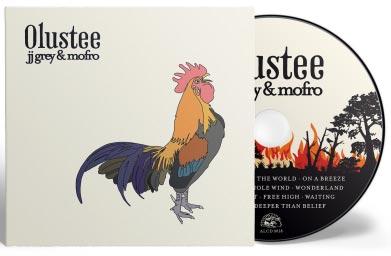
(continued from previous page)
nia to his studio to do this or did you just ship him tracks?
JJ Grey: Ronen. Okay, so now, I love this story. So I’ve been wanting to do a whole, I’m still going to do it, a whole symphony album. We’ll pick some of the songs, I don’t know, pick 12 songs and you can do a symphony record, just the symphony with the band. But the band would play in a different way. They play with the symphony, in the symphony so to speak, instead of a rock band playing in a symphony, trying to tag along. It ain’t gonna be that kind of vibe. These guys are pros. They can do that. The drummer could pull back to brushes on a track. The guitar player could play a classical guitar instead of an electrical on a certain song and so on and so forth. So anyway, we started that process and we’re charting now 20 songs and I said, You know what, we need to do maybe a couple of songs off the new record, as well. And I didn’t even have the lyrics done for them. In fact, I sent him some of them with just kind of cadences of me sounding like I’m singing lyrics and sang it pretty close to how it actually ended up. But you know, I’m just hummin’ or doing stuff that sounded so he would have a placeholder for the melodies, for the vocal melodies. So I sent them to Ronen for the symphony tracks. Well, the symphony tracks, there’s 100 and 120 people orchestra and you can work your way back from there. Usually you’re dropping a string section when you get a small orchestra. So he wrote it out for 100 or 120 piece, and as
much as just in case we deal with bigger orchestras. And the reason why I say that is because I’m gonna do a whole orchestra tour eventually. So all I said, it comes back to I got the rendering from him of his charts for “On A Breeze” and I was just blown away. It’s so beautiful and I was like, I gotta have this stuff on the record, but it was too much. It was the entire orchestra playing, you know. And I’m like, so I asked him to send me the renderings, and he did. And then I cut parts out and did this and cut and pasted here and just pulled some stuff out just to make sure the band had plenty of room, and then the orchestra had plenty of room and I sent him back to him. And then he cleaned it up from there. He’s like, Well, let me do this and do that. And hey, how do you like this? I’m like, awesome. So he wrote all the parts and got all the parts together just for the album version, for Olustee’s version, which is like I said, it’s a little different, a little lighter than the full orchestra. And then he’s like, hey, we’ll get the Budapest Symphony Orchestra to do it. So I’m like, okay. He says I work with them all the time and he’s like, we’ll get on a zoom call. I’ll be here in Florida. He’ll be in California with his assistant and then we’ll be hot, live with the Budapest Orchestra playing over there in Budapest. We can talk to the conductor, we can talk to the engineer, and all the audio will be done sent to us through audio movers uncompressed, so you’ll hear real audio in real time. And it was one of the most surreal things. I almost had my eyes teared up when I first heard
the orchestra cut in on two tracks. And so I picked four songs and, and Ronen did the charts for it and it was just a joy working with him. I want to do some stuff with the full band in a few places where we bring in maybe two string quartets or double string quartet and have him conduct them, you know, have him do it. My manager wants to do the whole thing, try to deal with all the big, biggest orchestras he can find that want to do maybe 20 shows worldwide, eventually. I haven’t thought much about that lately. I’m focused on the new record, but that’s coming up. But that’s where the all that string stuff came from and I’ve always wanted it. I had smaller versions of stuff like that on some of the earlier albums and frankly, I was arranging some of that stuff, most of that stuff. And it just made a huge difference having a real arranger, like Ronen come in, instead of me trying to arrange it and have him arrange it, because he knows all that stuff, the capabilities of all that, that kind of stuff and just is able to do that. To me, everything met the lyrics perfectly. You know, just just one of those things that serendipitous, you know, everything just kind of came together.
Rock And Blues International: Well, that’s an amazing story. Not only was it transamerica, it was transatlantic on the recording.
JJ Grey: Yes, and they did such a great job. It’s such an honor and a pleasure to hear them play, they’re great musicians.
Rock And Blues International: You know, it just, it comes to my mind now that you could actually take it on the road with the symphony, and the symphony doesn’t even have to leave Budapest. You can just have a big, giant screen behind you and they can play live in on the songs that you’ve got them playing on.
JJ Grey: The technology is just about there. It’s crazy, isn’t it
Rock And Blues International: It is. That’s an unbelievable story on that. I like that.
JJ Grey: Yeah, yeah, yeah.
Rock And Blues International:
continued on next page
(continued from previous page)
Well, what haven’t we talked about on this album that we should have? It’s looks like nine years since your last album or eight years? Something like that? Why the big gap?
JJ Grey: You know, it just happened. I couldn’t tell you. Yeah, it just happened all at once and it finally started coming together. Like I said, I had done a bunch of tracks early on. Well, I’d done three of the tracks, like in 2016 and then I just didn’t do nothing for a long time. And then it would come on at once and I do a little bit for a couple days and then I wouldn’t anything. I don’t know, it just all kind of came together eventually, but I wasn’t absolutely sure why it took so long because it wasn’t like I didn’t want to do it, but I knew I couldn’t push it. You know what I mean? It’s just got to happen as it happened.
Rock And Blues International:
Well, if you have to talk about a wait, I would say that the wait was definitely worth it because this album is just really stupendous.
JJ Grey: Awesome, thank you so much. I mean, I’m extremely happy with it.
Rock And Blues International: So, what haven’t we talked about that we should have? What do you want people to know about the album that we haven’t touched on so far?
JJ Grey: I think we’ve covered it. Yes, it’s great.
Rock And Blues International: Are you sure we’ve got everything here. Anybody you want to thank for the album. I saw your list of thanks to... God, you’ve got a list of people on here.
JJ Grey: Yeah, that’s why I can’t even begin to thank them because I don’t want to take the chance of accidentally leaving somebody out. You know what I mean?
Rock And Blues International: Well, I want to thank you for the time to talk to me about this. I wish you much

success with this album. I hope to see you touring on it one day. Hopefully you’ll make it into Texas.
JJ Grey: Yeah, I’m going to be in there later on this this year. So it’s just not up on the board yet. I don’t know how close we’ll be to Galveston though. That’s way down south.
Rock And Blues International: Well, Houston. You’ll probably be playing Houston.
JJ Grey: Yeah.
Rock And Blues International: I believe you played Houston before.
JJ Grey: Absolutely, absolutely.
Rock And Blues International: All right. Well, again, thank you for your time. I appreciate it and let me get to work on this.
JJ Grey: Okay, awesome.
Rock And Blues International: All right. Talk to you later. Bye bye.
JJ Grey: Okay, thank you. Bye.
JJ Grey, a multifaceted artist and passionate outdoorsman, is not only renowned for his soul-stirring music but also for his dedication to environmental advocacy. As an avid fisherman, skilled visual artist, and expert surfer, Grey’s love for the unspoiled landscapes of North Florida runs deep. He has chan-
neled this passion into his work and activism, holding an honorary position on the board of the Angler Action Foundation, an organization committed to preserving coastal fish and their habitats.
From his humble beginnings playing cover tunes in a Jacksonville juke joint to headlining sold-out shows at prestigious venues and music festivals worldwide, Grey has remained steadfast in delivering authentic, soulful truths through his music. Now, with the release of “Olustee,” Grey and his band, JJ Grey & Mofro, are embarking on an extensive tour to connect directly with fans across the globe.
Described by AllMusic as “as authentic as the ground under your feet,” Grey’s music resonates deeply with listeners, emanating from the core of his being and touching the human heart with its raw honesty. With their upcoming tour, JJ Grey & Mofro aim to bring this genuine musical experience to audiences far and wide, sharing their stories and spreading their message of love for both music and the environment.
Yeah, you can see by this interview that JJ Grey is definitely proud of this new album. We’re so happy and privileged that JJ took time out of his schedule to discuss Olustee with us. It’s a phenomenal album just paced with great moments and little pearls of wisdom. I would urge all of you reading this to go out and pick up a copy of Olustee as soon as you can. It will definitely be worth the purchase. There’s a little something for everyone on this great release.

Renowned guitarist Martin Barre, celebrated for his illustrious career with English progressive rock band Jethro Tull, is set to embark on a captivating U.S. tour starting in June 2023. This highly anticipated tour, titled “A Brief History of Tull,” promises to be a twohour extravaganza, exclusively featuring songs from Jethro Tull’s iconic catalog.
Barre, known for his dynamic, expressive, and explosive guitar playing, played a pivotal role in shaping Jethro Tull’s distinctive sound. From his debut on the band’s classic second album, “Stand Up,” to his departure in 2011, Barre’s unique style and unparalleled talent contributed immensely to the band’s success. With several charttopping albums, eleven gold, and five platinum records under their belt, Jethro Tull’s music continues to resonate worldwide, firmly establishing them as an integral part of classic rock history.
Recognized as one of the top rock guitarists to grace the planet, Barre’s playing has earned him widespread acclaim and respect. Notably, he was voted the 25th best soloist in the USA and the 20th best soloist in the UK for his exceptional performance on tracks like “Aqualung.” His remarkable contributions to the album “Crest of a Knave” even earned him a Grammy Award in 1989, solidifying his status as a guitar virtuoso.
Beyond his tenure with Jethro Tull, Barre’s musical prowess has led him to collaborate with a plethora of renowned artists, including Paul McCartney, Phil Collins, and Pink Floyd, among others. Now, with his band, Barre is dedicated to bringing the classic music from the Tull catalogue back to life on stage. Comprising top musicians from a similar background, his band is committed to giving fans and a broader audience the opportunity to hear tracks that have not been performed in many years.
Jethro Tull, an English progressive rock phenomenon, defied easy categorization with their eclectic mix of heavy rock, flute-led folk melodies, and surreal lyrics. Led by enigmatic frontman Ian Anderson, the band enjoyed massive
continued on next page
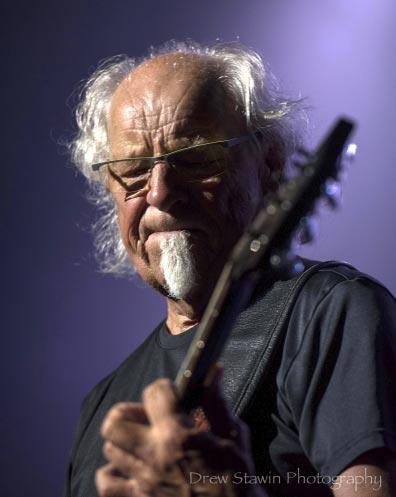

(continued from previous page)
commercial success during their 1970s heyday, with acclaimed albums like “Aqualung,” “Thick as a Brick,” and “A Passion Play.”
Despite changes in musical trends and critical reception, Jethro Tull remained a staple in the classic rock canon, venturing into folk-rock, electronic experimentation, and eventually returning to hard rock with their Grammy Award-winning album “Crest
of a Knave” in 1987. Martin Barre, alongside Anderson, was a constant presence in the band’s lineup, shaping their sound across decades of musical evolution.
As Barre and his talented solo band prepare to take the stage for their 2023 U.S. tour, fans can expect an unforgettable journey through the rich tapestry of Jethro Tull’s music. With a commitment to honoring the band’s
legacy and delivering an unparalleled live experience, “A Brief History of Tull” promises to captivate audiences and reignite the timeless magic of Jethro Tull’s music for generations to come.
Rock And Blues International: Hello.
Martin Barre: Is that Kevin?
Rock And Blues International: Yes, Martin
Martin Barre: Yeah. Hi. Sorry, I’m a bit late.
Rock And Blues International: Oh, no problem at all. How are you doing?
Martin Barre: Oh, very good. Yeah, very good. Thanks very much. Yeah, we had to do a little trip, but we’re back home and everything’s great. Thank you ever so much.
Rock And Blues International: Good. I think the last time we talked was in November of 2020.
Martin Barre: Okay, not much changed. Yeah. (laughs a bit)
Rock And Blues International: You laugh a little there. Tell me what’s happened since then?
Martin Barre: You know, the difficulty is that there the COVID wiped out a couple of years and I always get so confused about the timeframe. I mean, not normally. Every year has a sort of flow to it, you know, as touring, you’re at home, make a record, you do this, you do that, you go on holiday. You do a trip every year. There seems to be a sort of a flow to the calendar. But then everything fell apart and I don’t know that I’m very hazy as to exactly what time got lost. And sort of like a void. And it’s, it’s sort of got forgotten, so that sort of void of time, we’re just at home, hiding. Never seem to get that back and then we spent a year catching up with everything or two years, catching up with every concert that we couldn’t play. I mean, finally, by the end of last year, we’d caught up. That’s how long it took to catch up with everything.
continued on next page
(continued from previous page)
Rock And Blues International: Oh, I certainly understand that. It was pretty much the same situation for me here. It was. Well, let’s see. To put it mildly, it was a disaster.
Martin Barre: Yeah, I mean, it really was, I think, yeah. All in all, there’s nothing good. And, yeah, when I say we all caught up, we didn’t, we never really do because you lose time and you never regain it at all. It was. Yeah, it’s a shame that that’s what your dealt with and you either push forward and carry on regardless, or you just end up thinking where you would have been and what would have happened, and that doesn’t do you any good. It was a bit of a shitshow. We, like everybody else, our business suffered, and we’re on a roll really, in 2021, and we lost that momentum. And that was the worst thing. We really had a strong sense of pushing forward with the career of the band and it just suddenly stalled and never regained that momentum.
Rock And Blues International: Yes, I understand. I personally was addicted to live music. I’ve spent every weekend of my life in a club or a concert, or somewhere since I would say ’68. And to suddenly find that I had to sit in the house was just nerve racking.
Martin Barre: Yeah, it’s the nice thing. I think maybe people realized how important live entertainment is in their lives. So not just music, but theater, movies, everything that we take for granted, and maybe took a little bit too much for granted. When that’s taken away from you, the ground just disappears beneath your feet and it’s an important part of most people’s lives and I was like you, I really missed it. Not from an entertainers point of view, but from somebody like you who loves to go and see live music, and sort of go out and be entertained as well.
Rock And Blues International: Well, hopefully we’ve seen the last of

anything like this ever happening. I’m just praying so.
Martin Barre: It’s a different world. So, you know, I hate to bring the subject up, but I mean, I’ve just had COVID last week, again.
Rock And Blues International: Oh, no!
Martin Barre: It’s just part of life and you just kind of integrate. It’s one of those sort of things that happens and as much as there’s a flu season, then everybody gets stomach bugs. There’s all colds going round, and this, that and the other. It’s just another thing on that list, that sort of knocks you down for, hopefully no more than a weekend, and you just bounce back and get on with things. It’s such a strong thing that happened. So, I mean, I haven’t been ill, I didn’t feel great. But just the fact that that’s what it was really annoyed me, because it just, it isn’t gonna go away. We have to live with it. And I mean, that the only the only good thing is that we can live around it. Because, essentially, you know, very unlikely to, to kill you, or people around you. And you know, in the early days, it was just horrendous, the damage it could do. And as we all know, it’s part of modern life. We’ve invented a lot of things that are good and a lot of things that are really bad. You have to live with them.
Rock And Blues International: Yeah, well, this ranks up there with the top of the bad.
Martin Barre: It’s certainly number one.
Rock And Blues International: Yeah.
Martin Barre: However, I’m good, you know, we’re getting ready to get to come over to the States at the end of the month. And, you know, it’s even having played, the last concert was in, end of November. Think about it, but it seems a long time, and two months, not being on the road. It’s difficult. I’m not really, really crazy about being away that long. So I’m looking forward to being back on the road again, it’ll be really fresh. And we’re all really excited about doing it.
Rock And Blues International: Well, I have the feeling that you would be termed more of a performing musician, as opposed to a recording musician, although you do both. I think your heart probably lies in the touring, the being on stage in front of people.
Martin Barre: Yeah, I think that that never diminishes. I’ve grown to really love recording a lot more. And I think in the early days of Tull, it was a real chore. It wasn’t a hands on experience, it was a sort of mystery of don’t go in the control room, because you’re not going to know what’s going on in there. And you’re sort of cut apart by this sort of glass screen, triple glazing or something that you’re out there playing and
continued on next page

(continued from previous page)
what happened in the control room and in the studio, you weren’t in control of and I hated that. I always felt it’s a very alien atmosphere. And the way Tull recorded wasn’t good either. I mean, sometimes it was a lot of fun, but very often it became a real chore. So it wasn’t till I started doing my own albums that I really began to love and understand the process of recording, so I was completely in control of it and then really, really started enjoying what it can give you creatively. So I love being in the studio in a different way but as much. I think they now go hand in hand and a bit of both is good for you.
Rock And Blues International: Well, right now you’re the master of your own destiny here. You do your own solo albums. You’re the boss, the buck stops here, so to speak. And before when you were a member of Jethro Tull there were other factors involved... I’m sure you’re a lot happier doing your own projects.
Martin Barre: I think that there’s more positives than negatives. The fact that you say, “The Buck Ends Right Here” on my fat ass. It sort of brings pressures that aren’t entirely pleasant. But then it brings responsibilities that I feel quite qualified to handle. And I think I know what I’m doing most of the time. And I’ve been touring and recording and playing live for so many, many, many
years that I think about trial and error. I’m pretty qualified, knowing how to do it in the best way. So it’s a mixture that always... If something goes wrong, then it’s not, it’s not good and I get it all. So you know, you don’t sort of share the bad.
Rock And Blues International: Right.
Martin Barre: You get the whole caboodle. And going back to COVID when we’re over in the states in 2022, I’m trying to remember, and the whole band got it. Whoa, that was not fun. And, essentially, I had to fix it and it was a lot of work. But yeah, but then the plus side is I really enjoy running a band. I love arranging and recording music, and planning tours. It’s a very broad spectrum of work, but I’m part travel agent, taxi driver, roadie, sound engineer, I’m a bit of everything and I get the best of all those worlds.
Rock And Blues International: You’re a man of many hats, so to speak.
Martin Barre: I need to be, but I guess that’s also the way that probably most bands are in that they know, a lot of everything.
Rock And Blues International: Well, I think with this tour, you’re gonna face one of your big obstacles, which is songs. You’ve been on at least 20 Jethro
Tull albums. Now, it’s going to be rough to pick one song from every album, and please the public. I mean, is this going to be a two hour or a three hour or a four hour show? Because you just got so many hits, so many great songs that I would imagine no matter what you play, there’s going to be disappointed people.
Martin Barre: Ha, ha, ha, ha. Initially, but at the end, no. Yeah, you know, there’s a few curveballs in there but that’s what I’ve always liked doing. I don’t want to serve up the fast food option, you what you’re gonna get, there it is. You might not like every second of it, but I think by the end, you’ll think ‘Well, yeah, it was pretty cool. That’s stuff that I wouldn’t normally expect and you know what, it sounds great’. It has its place in the history and the qualifications to be played on stage and it’s gonna sound great. If it doesn’t sound great then we ain’t gonna do it. I mean, and it sounds obvious, but I’m not going to do something for the sake of being a smartass or trying to be different. It just has to work at every level. Last month, because I presume that anybody can see the setlist that we did on the first leg of this tour on the setlist.fm website. They give everybody’s set list out so it’s very hard to presume that there’s any surprises anymore, but I thought I was going to change it. Just change it to the fact that the band liked to move around a bit musically from day to day from week to week and from tour to tour, so I had a secondary list of replacements for the last set that we did, and I probably will slip them in here and there but then I listened to a live tape of what we did. And I just thought you know, that did work. It did work. It really is left of center, but to take one little section of it I think because I’m in it go, no that won’t, that can’t happen. That isn’t going to work with a big audience, but then you take it in context with everything else and it had all these dynamics and ups and downs and a lot of contrast. And I think by the end, you’ve had just everything thrown at you. But it all settles into what I hope, and I’m confident is a really great show.
Rock And Blues International: Well, I’m sure it’ll be a great show. I’ve seen Tull, I don’t know, well, countless times over the years. I think the first time
continued on next page
(continued from previous page)
I saw Tull was in ’71. But my first influence with Tull was “Stand Up” in ’69. However, I’ve got to say that, for me, when it comes to the early albums “Benefit” is probably my favorite album. And I know that’s a little, a little odd, when most people are going to say “Aqualung” or “Thick As A Brick”, but I found “Benefit” to be a real rocker.
Martin Barre: Yeah, well, it’s one of my favorites by sheer coincidence. And you know, we played the whole of “Aqualung” a year or so ago, I remember. And that was another project. And it worked. You could play pretty well in order as on the album, and every track’s a winner. They’re all strong, strong songs. But I think the same could be said of “Benefit”. It’s a very live album, that nearly all those tracks have very few overdubs on them, so every song being live in the studio. It really translates to being played live on stage. There’s a lot of good material in there. I mean, it’s always very well represented. I do believe off the top of my head that there’s at least two tracks from “Benefit”, if not three, that are in this history of Tull setlist that we do.
Rock And Blues International: Oh, wonderful, I’m happy to hear that. But I would say that “Benefit” was quite a departure from “Stand Up”. And it was quite different from “Aqualung”. “Stand Up”, “Benefit” and “Aqualung”, even “Thick As A Brick”, I mean, the album’s are just unbelievable transformations of the band from one state into another.
Martin Barre: I think it’s something we always strived to do. And we didn’t want to overwork it. It it wouldn’t sound natural, but I think that’s the way we thought about music. And we just wanted to move forward, never go back, just sort of finding our feet in different areas musically. And so every album did change that, maybe not changed. There’s probably a word for it and I’m not gonna think what it is. Metamorphosis. Is that

the word, I don’t know. It morphed into something else. It grew. It was like a tree and it sort of branched out in all directions, but hopefully always going upwards. And it was exciting. And I think the way we all worked together, we didn’t want to look back at what worked the year before or on the album before. We just wanted to start from zero and bring everything fresh to the table. And that’s why every album is different.
Rock And Blues International: Well, I think about Jethro Tull’s sound, the overall sound, although it varies from album to album. I think one of the most consistent things from album to album is your guitar. It’s always been up front there. It’s always been fantastic. Your style’s changed over the years, but for me it’s still kept that rock attitude.
Martin Barre: Thank you for saying that. Yeah, I am who I am. In I’ve never luckily been in a position where I’ve had to toe the line musically. And I think that was the thing about Tull. We never had anybody influencing us, telling us what to do. And we weren’t compatible to other bands either. We had our own little niche. So it gave us complete freedom. I’ve never really over thought what I do and what I need to do. I just do it, I just do it and that’s what I’ve done for nearly 60 years on, I can’t
even work it out and nearly 60 years. I love exciting music and whether you label it as being rock, blues, bluegrass, folk, Irish, fusion, anything that is exciting, that has balls. Excuse the crude expression. To me, even classical music has it. I just have that excitement and done music.
Rock And Blues International: Well in the evolution of your music there, for instance, when you reached “Crest Of A Knave”, that came out with one of the heaviest albums that Tull ever did. Can you tell me what was the big influence to go back to that harder rock?
Martin Barre: I don’t know, you know, because we never thought in those terms, we would write songs we would sit in a room, acoustic guitars maybe or little amp, practice amp and the songs mostly were very basic. There was no dynamics. It was... very often we didn’t hear the lyrics. We might hear a sort of an odd melody line, but we would give them with a real basic framework. And we just sat and worked on it. And there was no guidelines. There was no... nothing structuring this as to where we had to go with it. It just went, it just found its own little direction and off it went so there’s no preconception of what
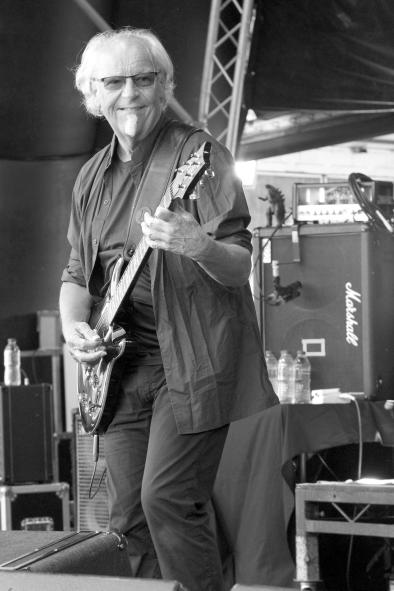
(continued from previous page)
easier. But I think a lot of people poopooed the idea that we’re anything like a heavy metal band, and of course we weren’t. But I just think of the whole event is being a roomful of people voting, the band that might deserve attention, and deserve a little pat on the back for whatever they’ve done and then we’ll stick a label on it. And I’m a great believer that music just lives side by side in all styles, and all genres of music. They all live together, and you could have a radio station that plays anything and everything probably do really well, because they all live side by side in my world.
Rock And Blues International: Well, when you go on stage to perform, how many songs do you think you have picked out for this show?
Martin Barre: Ah, that would entail me counting them.
Rock And Blues International: We’ll just just take a guess.
Martin Barre: I can take a guess. My formula is a song average’s five minutes and it’s nearly a two and a half hour show. So that’s 24.... I do believe that is 30 songs.
Rock And Blues International: Well, that’s wonderful. Yeah.
Martin Barre: And that, but there’s different things like one song, will last 10 minutes, and then we’ll do a little instrumental that will last a minute. So it’s hard. It’s one continuous show, but there’s a lot of stuff in there, in pieces.
Rock And Blues International: I would guess that you’re not going to be playing “Thick As A Brick” in its entirety.
we had to do.
Rock And Blues International: Well, it was quite an album there. I mean, you won a Grammy for it, for heavy metal album. That had surprised the hell out of y’all.
Martin Barre: It’s not heavy metal. It I think it’s a little bit of a misnomer as a category, which is a shame because we haven’t really been labeled with that, that event ever since. But if it had been a slightly, you know, maybe the most deserving rock touring band on the planet, that maybe would have been
Martin Barre: It’s possible, but not this year. And it’s a danger, you know, because when we play a different section than we’ve played before. But then, you know, you go back and listen to the section we used to do five years ago, and I want to do it again, because it really worked well, I want to play it. It’s such a difficult decision. And it could be a five hour set, really easy. It’s really hard to leave stuff out.
continued on next page
(continued from previous page)
Rock And Blues International: Oh, it could easily be a five hour set there. I mean, “Thick As A Brick” and “A Passion Play”, how long are just those two songs?
Martin Barre: Well, as you’re saying, I could do all of “Benefit”, I could do all of “Stand Up”. There’s a lot of albums that you could play a lot of live. But yeah, that’s great. You know, I’m never spoilt for choice, so it’s quite it’s a pleasant task to sit down with a pencil and paper, and map out next month’s show, and I’m still doing it. I’m still thinking of other things, so that if somebody saw the show in November, it’ll be different come March and April.
Rock And Blues International:
Over all these years are there any Tull songs in particular that you just you just love to perform? I’m sure you love all the songs. I’m sure you love performing all of them. But there are are there 1, 2, or 3 songs in particular that just really, really grab you?
Martin Barre: Yeah, there’s a lot a lot. There’s more than that, that grab me. And if they didn’t grab me 10 years ago, they grabbed me next. I’ll change them to make them fun. I just say, well, you know what, why is that one that working? It’s because it’s not enough fun. So you inject it with something, you turn it round, you just put something in there that enhances it and makes it great fun. So everything’s got to be fun to play, that nothing can be a chore. Because you can’t, you can’t fake it. You can’t fudge it. You have to be on that stage loving it. And people know, the audience know straightaway. And there are songs. I won’t quote them because I don’t think it... it doesn’t mean that the other songs I enjoy any less. But there’s a lot of material that when we start playing it live, it’ll bring a big smile to my face.
Rock And Blues International: Well, as soon as you get to the “Benefit”

songs, you’ll put a big smile on my face.
Martin Barre: They might be part of that smile. Yeah, yeah.
Rock And Blues International: Tell me about the band you have coming with you. Is this your normal solo band that’s gonna be performing on this tour.
Martin Barre: Yeah, yeah. Dan Crisp, vocals, guitar. Alan Thompson on bass. And Alan and Dan and me as well play a little bit of keyboards, more so Dan and Alan. Because we have like a keyboard station. One or more of us will go and swap instruments. It just adds another texture. The drummer is a different drummer this time. He’s called Terrell Bryant and he’s played with Peter Gabriel, he’s played with John Paul Jones. He’s cool, a really very strong steady drummer. He’s a drummer’s drummer and just sort of solid as a rock. May I quote as being that’s the way he is. So he’s great. He’s fitted in really well, and we all get on musically, and personally, really well. There’s four of us. I’m playing flute, so you got acoustic guitars, keyboards, flute, electric guitars, drum samples. percussion. It’s a lot but four people can do all of that. You just have to sort of switch carefully, you have to make sure you remember what you’re going to do in the next song.
Rock And Blues International: Well, that’s going to be quite a chore, switching from guitar to flute and back
to guitar again.
Martin Barre: Yeah, it’s a complex setup. So yeah. And I have to think ahead. So you know, swapping around, because I don’t like awkward gaps. It’s pretty well, two continuous hubs. Yeah, I like it to be really smooth and and hopefully that’s the way comes across but yeah, it’s not easy to do. So switching from... I’ve got the acoustic guitar in a sort of cradle guitar stand, so that I don’t actually wear the thing. And so I can pretty well stop playing the acoustic and play electric within a few seconds. But I like it. I like the challenge of playing a lot of different things.
Rock And Blues International: Well, getting the right songs in order is probably even a harder thing to do with a live concert than it is with an album. With an album you’re looking at, Oh, 10 12, or 14 songs, that you get to flow seamlessly together. But when you’re doing a concert show, that’s even got to be more of a hair raiser.
Martin Barre: Well, the difficulty is keeping it sequential and that’s the hardest part. You got to keep remembering that it’s a history and it starts in 1968 and works its way through everything. Sometimes you can get glued down in one little area, like you said, “Benefit” and we need to move on. We’re still in 1971 or 1970. We got a long way to go. It was a lot of work to plan out.
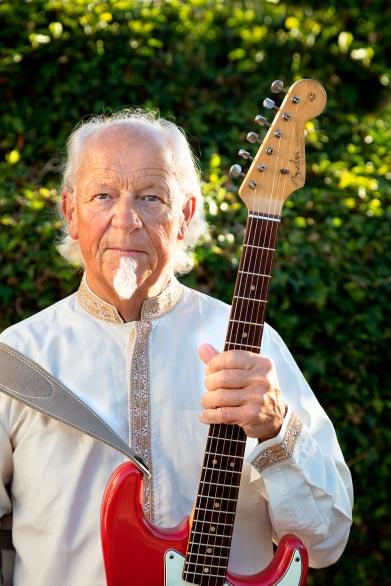
(continued from previous page)
Rock And Blues International: I’ll bet it was. You’re doing songs off of “This Was” also?
Martin Barre: Yeah, yeah. Yeah. Part of the history.
Rock And Blues International: Right. Okay. So you’re covering the
entire history? Are we going to hear a song from every album? Or is there an album or two there won’t be anything from?
Martin Barre: I think beyond “Crest Of A Knave” gets a little patchy.
Rock And Blues International: “Rock Island”, “Catfish Rising”, “Roots
To Branches”.
Martin Barre: I have to draw a line. And let’s say that line is the Grammy.
Rock And Blues International: Okay, so we’re definitely not going to be hearing any Christmas songs.
Martin Barre: Funnily enough, one of the songs is that most people don’t realize it. There’s a conundrum. That one of the songs we play is a Christmas song. But it isn’t apparent. Most people wouldn’t realize that is.
Rock And Blues International: What song is that?
Martin Barre: I don’t know if I’m going to tell you. I’ll tell you, Jack Frost.
Rock And Blues International: Jack Frost, oh, okay.
Martin Barre: Of course it’s a Christmas song. But it wasn’t till somebody mentioned it, that I realized that it was. It’s 80 degrees outside. Yeah, that’s okay. That’s all right. But I know what you mean. No, there’s no Christmas music.
Rock And Blues International: I thought that was a strange album for you all to do then, “The Jethro Tull Christmas Album”.
Martin Barre: Yes, isn’t it?
Rock And Blues International: What caused that to happen? What was that what was the catalyst that made the band look at each other and go ‘let’s do a Christmas album’.
Martin Barre: Ever heard of the show where the contestant asked for a pass and asked for the next question?
Rock And Blues International: Okay
Martin Barre: Have you seen that show.
Rock And Blues International: No.
Martin Barre: If they can’t answer the question, they pass and ask for another. May I have another. So that’s
continued on next page
(continued from previous page)
what I’m going to say, “May I have another”.
Rock And Blues International: Okay. Okay, we’ll move on from that. No, I can’t wait to see you out on the road. I’ve always enjoyed your shows. I’ve been a big Tull fan for.... Well, we’re both about the same age. So I’ve been a big Tull fan since ’69. When I was in high school here, I stumbled across Jethro Tull, because I did a little thing for people where I had a cassette recorder and people would bring me their albums, because they wanted a cassette tape of their album, and they couldn’t get them. So I would record their album onto a cassette tape and charge them a couple of bucks for that. And in return, I’d have a copy for myself.
Martin Barre: Yeah, yeah. Oh, we all did that. That’s funnily enough. I remember how much it annoyed me that somebody would have a bootleg cassette of the show. Um, you know, and then looking back on everything. Yeah, that’s right. And now it’s taken for granted. But everything’s out there. Just pluck it out of the air.
Rock And Blues International: Maybe I shouldn’t have mentioned that.
Martin Barre: Oh, I find it funny. I did it as much as anybody else. I had some great bootleg tapes. I’ve got some, I’ve got a couple of amazing ones. There’s a band called SFX. Ever hear of them?
Rock And Blues International: No, I haven’t.
Martin Barre: Okay, it was the Cottle brothers and Alan Murphy was the guitar player. Peter Pitesti played with them as well. It was a sort of a pop band. They’re backing band. But they were Jazzy, Jazz fusion. And Alan Murphy was an amazing guitar player, sadly died. But a bit like Allan Holdsworth. And they had this band that

played in London. For fun. That was their sort of when they had a night off they’d go play in a pub. And I’ve got a boot tape of one of their sets. It’s amazing. Amazing, but they’ve never released an album.
Rock And Blues International: I don’t know if I’ll ever be able to find one of those.
Martin Barre: Well, yeah, it’d be interesting to Google it. I never have, but SFX was the name of them. But there wouldn’t be much out there. You never know that there must be other ones. But I know every musician I’ve talked to and told them I have a tape of their show. They’re like, wow! They want a copy.
Rock And Blues International: Well, here’s a question you probably been asked a million times. But who would you cite is one or two of your favorite guitar influences that got you on this path that you’ve been on for so long?
Martin Barre: Yeah, it’s a tricky... it sort of changes and I think people that have influenced me, the guitar players wasn’t so much because of the way they played. I was a big fan of Leslie West. And just because here’s a nice guy. And that wasn’t taken for granted. In the early days of rock music, there was a lot of... everybody was trying to grab attention. It was quite competitive. So everybody wasn’t nice to everybody. And he was just one of the good guys and he just taught me a lesson in stage craft and also
the way the man played, the dynamics and the connection on stage. I still watch them every night and that taught me a lot, but I never really wanted to play like anybody else. I mean, I’m sure everybody influenced me subliminally, but I never wanted that in that playing. You know, I’d rather listen to Brahms or Vivaldi or something or Beethoven or Mozart and listen to the melodies and the harmonies and let that take me somewhere musically, where I needed to go. There’s a lot of great guitar players, Scott Henderson, Robben Ford, Stevie Ray, Gary Moore. I mean the list is huge and they’re great players. Jeff Beck, Hendrix. I mean, really! Where do you begin? And I love to listen to them play. But I left them alone, you know that they did what they did better than anybody else. So they deserve to be left alone.
Rock And Blues International: Well, you’ve played with a number of great musicians over the years and I don’t think we should need to get into that with this interview. Paul McCartney, Phil Collins, Gary Moore, the list goes on and on. You’ve been on stage sharing the stage with quite a lot of people over the years. Perhaps just one question about that. Was there one musician in particular that you just love standing up next to you on stage and jammin’ with.
Martin Barre: A lot of them I didn’t actually play with, we did concerts with them, so we sort of shared dressing

(continued from previous page)
rooms and shared the occasion. I think that those were the nicest things. I mean, Joe Bonamassa came up and played with Tull. It must be 11 or 12 years ago, at the festival in London, and it was brilliant. I mean, we had a lot of fun. And in the end he came on and stopped us because I think you know, he didn’t like to be left out. But yeah, I’m not that sort of jamming musician. That was one of the rare occasions when it was really good fun. I just have a lot of respect for great music, and great players and to watch Terry Bozzio play. Just amazing. Just a great player.
Rock And Blues International: Well, great. Well, I’ve taken up a lot of your time here. What have I not asked about the tour that I should have touched on that I missed? And what would you like to add about the tour?
Martin Barre: You know, it’s a show that, to me is the ultimate of all things I’ve strived for particularly where
Tull’s music comes into play. So probably after this tour I’m going to step back from Tull music and concentrate a lot more on on what I’m doing just because I’ve become so immersed, but I just wanted to bring something to an audience that was my history. I probably should have called it “My History of Tull”, because it’s my roots through all those years and the things that I love to do and enjoyed playing. So it’s a little selfish, but the reaction has been really strong. People have said if I had to do that, that they’d be the same choices. So I’m happy about that.
Rock And Blues International: All right. Well, I’m looking forward to hearing new music from you in the future too. Yeah,
Martin Barre: Yeah, well, I need to, Yeah.
Rock And Blues International: Well, you probably got 20 or 30 songs
where you go right now.
Martin Barre; I probably have but I know I won’t use any of them.
Rock And Blues International: You won’t use any of them. What Why?
Martin Barre: I just don’t do it. I just start from scratch. You know, I don’t want to. It’s what we always did. It’s what Tull did and that’s why we did. We did “A Passion Play” album. That didn’t work out. So we we started again. We didn’t want to go back on the old stuff. Just tear the old pages out the notebook and sharpen your pencil and start from zero. I know that’s what I do. That’s what I want to do. And that whole process of starting from nothing is part of the fun. It’s a big part of it. And then it has a focus. It has some sort of flow and composition. And hopefully it all sticks together like a puzzle.
Rock And Blues International: So there’s Tull albums that have been recorded that have just never been released.
Martin Barre: They did eventually. But the original “Passion Play”, we ditched it. We did. We did a whole album in France and had such a problem recording it with the studio that we came back to England and just said, You know what? We’re gonna re-record all these tracks. It’d be a real chore to just try and get that atmosphere back again, musically. We just started fresh.
Rock And Blues International: Was that the studio that.... I think you all had a special name for? Chateau D’Isaster?
Martin Barre: Yeah, that was it? Yeah. Yeah. It was good. The trucks were good. They were great. And I’m glad that they got released later on down the line. But at the time, you’d never want to look back. I think the minute you look back, it takes something away from the moment. Like July the first, I’m going to go in the studio and start work. I want to start everything on July the first. I don’t want to spend a week looking back through notes and little jotting downs and little musical notes on my recorder. I don’t want to, I just want to get going. So it’s really fresh. So instantaneous.
continued on next page
(continued from previous page)
Rock And Blues International: All right. Well, I want to thank you for the time you spent with me talking about the tour. I’m looking very much forward to it. Anything else we need to add to this?
Martin Barre: Better not’
Rock And Blues International: Better not?
Martin Barre: I better not, but I shall see you in Texas.
Rock And Blues International: That would be wonderful.
Martin Barre: That can only be a good thing.
Rock And Blues International: Yeah.
Martin Barre: We’re really looking forward to being there.
Rock And Blues International: Yeah, in Texas, you’re playing... Well, one of the venues is Dosey Doe. It’s a smaller hall there and you’ve been there before. It’s got great acoustics and it’s very intimate, so the crowd almost becomes part of the band.
Martin Barre: Yeah, that’s good. It suits me.
Rock And Blues International: All right, well, thank. Well, thanks again for your time. I’m looking forward to seeing you when you come to Texas, and I hope you don’t get sick from COVID anymore or any of that.
Martin Barre: No, I’ve had it. I’ll be I’ll be good for another six months.
Rock And Blues International: Six months. Well, let’s hope it’s longer than that.
Martin Barre: Immunity. I’ve got immunity. All right. Thanks, Kevin.

Rock And Blues International: Thank you. We’ll talk later bye bye.
Martin Barre: Take care. Bye bye.
Without a doubt, this tour will be one of Martin Barre’s finest as his dedication to keep Jethro Tull’s legacy intact and the presentation of each song beyond reproach. As Martin explained, this is going to be a very long show of about two and a half hours and he is
picking out the best songs and the songs that made Jethro Tull what it is today, a legend. So, if you get a chance, please don’t miss this tour. It will be a lot of fun and a great delight for Jethro Tull fans everywhere. We’d like to thank Martin for calling us from his house in England to give us all this great insight into the tour and what he has been up to for the last few years. Thank you Martin, we wish you a great tour and a wonderful time when you visit America this time around.
Jack Russell And Tracii Guns Release
Their First Joint Album Together, “Medusa”
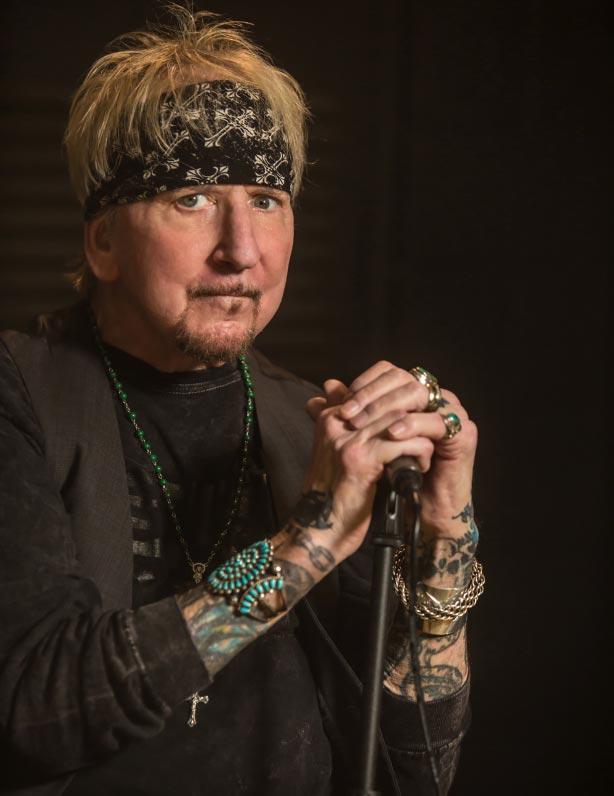
Jack Russell talks about The Recording of Medusa
In a harmonious collaboration that merges the echoes of their iconic bands with a contemporary spark, Jack Russell (of Great White and Jack Russell’s Great White fame) and Tracii Guns (known for LA Guns and Hollywood Rose) have joined forces to create music under the moniker Russell / Guns.
Their debut release, ‘Medusa,’ promises the signature bluesy groove fans have come to love from these rock veterans, infused with a fresh burst of energy. This musical partnership, heralded by fans as a long-awaited union of rock titans, is poised to captivate listeners with its blend of nostalgia and modern flair.
RUSSELL - GUNS represents a new chapter for these legendary figures of Los Angeles hard rock, featuring the talents of Johnny Martin, Shane Fitzgibbon, and Alessandro Del Vecchio alongside Jack Russell and Tracii Guns.
The duo has announced that their upcoming studio album, ‘Medusa,’ is set for release on January 12th, 2024, courtesy of Frontiers Music Srl.
Speaking about this exciting venture, Tracii Guns expressed his admiration for Jack Russell, stating, “Jack is one of the greatest rock voices of our generation. It’s a total honor to play guitar on this record.”
For Jack Russell, ‘Medusa’ marks a return to recording after seven years since his last album with Jack Russell’s Great White, ‘He Saw It Comin’.’ Rather than dwell on past glories, Jack is thrilled to be moving forward with Tracii Guns, an artist who is experiencing his own creative resurgence.
‘Medusa’ promises a collection of songs that hearken back to the bluesy power and heavy energy of their storied careers, yet infused with a newfound vigor and contemporary production.
Reflecting on the album, Jack Russell remarked, “It was so great making a record with Tracii! Initially, I had my reservations about making this record, but in the end it kicks ass. I’ll play with Tracii anytime!”
Fans of the 80s and 90s rock scene will recognize Jack Russell as the powerhouse frontman of Great White, whose albums like ‘Once Bitten...Twice Shy’ achieved platinum status, selling over 8 million copies worldwide. His musical legacy continued with Jack Russell’s Great White, formed in 2011.
Meanwhile, Tracii Guns has carved his own path as a rock legend since founding LA Guns in 1983, a band that played a pivotal role in the rock landscape and eventually contributed to the formation of Guns N’ Roses. Over the years, Tracii has explored various musical avenues, from side projects like Contraband to recent collaborations such as Blackbird Angels with Todd Kerns.
The release of ‘Medusa’ from
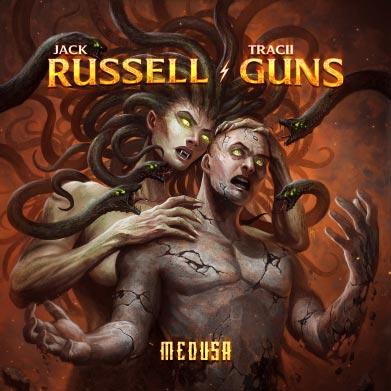
RUSSELL - GUNS is a testament to the enduring appeal of these rock icons and a celebration of their contributions to the genre. It promises to be a treat for fans eagerly awaiting new material that pays homage to the past while blazing a trail into the future.
We had a chance recently to sit down with Jack Russell and he gave us a candid in depth interview about the making of the new Russell/Guns album, Medusa. We are happy to present that to you now, so without any further ado, here is our interview with Jack Russell.
Rock And Roll International: Hello.
Jack Russell: Kevin.
Rock And Roll International: Yes
Jack Russell: Jack Russell. Sorry, I’m
late.
Rock And Roll International: Oh, no problem at all. How are you doing today?
Jack Russell: I’m doing good. How about yourself?
Rock And Roll International: Oh, doing fine. Doing fine. It’s great to hear you back on a new album.
Jack Russell: Well thanks man, I appreciate it.
Rock And Roll International: I guess the big story on this is going to be how it came together, how you and Tracii decided to collaborate on something like this. And I don’t know some people might try to call this a super group. What would you think about all this?
on next page
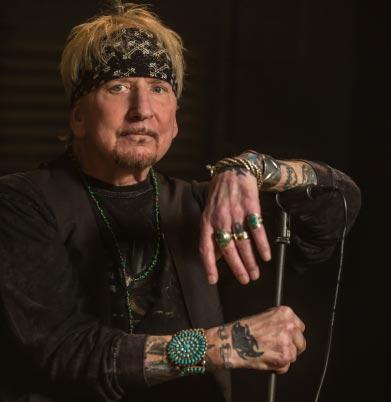
(continued from previous page)
Jack Russell: I don’t know, man, I think it’s a couple of good players getting together and having some fun and the songs are fine. Playing together is great. Tracii has always been one of my heroes. I’ve always loved his guitar playing. He’s got a little panache, you know.
Rock And Roll International: Well, it’s been a few years since you put out an album, and then all of a sudden this shows up. So tell me, did you approach him? Or did he approach you? How did that happen? Did you call on the phone?
Jack Russell: The label approached us both.
Rock And Roll International: Really.
Jack Russell: Yeah, the label approached us both and they had these songs that they had written, that they had came up with and they wanted us to do them. So we listened to them and we said, okay, let’s do it.
Rock And Roll International: Okay, so you didn’t write any of the songs?
Jack Russell: No, no, that was Alessandro Del Vecchio.
Rock And Roll International: Okay. Did you find that to present a challenge for you when someone does that and you’re recording something that really isn’t yours, much less an entire album?
Jack Russell: Well, not really. I mean, you know, I’ve done cover songs over the years. “Once Bitten Twice Shy” actually is a pretty famous one. You know, a good song’s a good song, and I don’t mind recording it, if it makes sense. The material I liked and Tracii’s guitar playing, I like a lot so it was nice. It was nice. It was a no brainer early. Oh, I didn’t have to sit there and think too much about it. When they said Tracii I said ‘Yeah, great, I’m in.
Rock And Roll International: Well, tell me about going into the studio to do this with him. How what was it like, what was the first day like?
Jack Russell: The first day was like me sitting here in Denver. Him I don’t know where he was, I think he was in Los Angeles playing. He recorded his stuff straight to Italy. I recorded mine from Denver to L.A. Then the engineers mixed him somewhere along the line, either in L.A. or I believe they piped
it all through Italy eventually. And it was mixed and mastered there.
Rock And Roll International: Wow. That’s kind of unusual.
Jack Russell: Yeah, it really is, it really is. We’re getting down to the forefront and into the new frontier as you say,
Rock And Roll International: Talk about saving gas and airfare...
Jack Russell: Yeah, you know, it’s weird though. It was a weird thing. That’s what got me. That’s what got my head spinning more than anything. It was not being in the same room with my band at all and working on songs. I mean, it was strange. It wasn’t bad, strange. It was just strange, you know something I had never done before and it was it was a cool experience. It’s nice to know that we can do stuff like that, so you don’t have to go through all these bells and whistles to record. You know if I have a friend of mine that lives in Pocatello, Idaho and he wants to do a track on the album rather than being in Norway and I could record songs, just find the studios with the computers and link them up.
Rock And Roll International: Where were you recording? Do you have a studio at your house that you were recording out of?
Jack Russell: Well yeah, a friend of mine, my engineer, built me a studio at a friend of mine’s house because I don’t have the room here where I’m at. So my friend has got a bunch of room he donated, so he donated me a studio. So we just built it all in there and so from now on that’s where I sing out of if I got to track the deal I’ll go in there is house, turn the studio on and hook it up in LA and let’s go.
Rock And Roll International: Well there’s a lot of energy on this album especially in your vocal so it’s just I find it a little unusual that you would record like that and still be able to retain the energy. That had to be a bit of a job.
Jack Russell: Isn’t that cool! No, you know why, the songs were just... they were as such that it just made you feel good. And then that allowed me to sing like that. It wasn’t the location as much as it was the material. It was, It was just a lot of fun, I really had a good time doing it. And I gotta admit I was a bit intrigued by the way we were doing it, it was kind of a trip to me. I felt like, you know, kind of on the forefront even though it’s not brand new technology. But I mean this is not something that everybody does all the time, either.
Rock And Roll International: Was there a camera set up where you could see them and they could see you or was it just totally audio?
continued on next page
(continued from previous page)
Jack Russell: Totally audio.
Rock And Roll International: Wow.
Jack Russell: Oh yeah, but that’s cool, I mean, because when I’m in the studio at home, I would have them black out the recording room. Nobody could see me and all I could see was a dim light from the control room. So it didn’t screw with my head. You know, I mean, I just wanted it dark and I wanted to feel as alone as possible, you know what I mean.
Rock And Roll International: That’s the way you normally record?
Jack Russell: Yeah.
Rock And Roll International: So then this worked out even better for you.
Jack Russell: Yeah, it even worked out better. Exactly. Exactly. Not a bunch of people lollygaging around, you know,
Rock And Roll International: What was the first song you worked on?
Jack Russell: Oh, God, what was that? What was the first song, now you’re testing my brain cells. I’m trying to remember what the first song was I recorded for the album. (Listening to his wife remind him) Yeah. “Last In Line”. That’s right that’s my wife. She’s good for a lot of stuff.
Rock And Roll International: “Next in line”.
Jack Russell: Works for a great memory.
Rock And Roll International: Oh, okay. Well, it’s the first song on the album.
Jack Russell: Yeah. It went through on the first take.
Rock And Roll International: Well, when you say on the first song you did, you got it on the first take, tell me about that session in particular. We don’t need to go over every session, I’m just curious about how the very first one started out, how you reacted to this new way of recording.
Jack Russell: Oh, it’s just like the same old stuff. It was just like eating peanuts, man. You know, he says recording, then presses the button and the red light turns on and I’m ready to go and music starts playing. I sing when I’m supposed to. It wasn’t anything, like oh my god it’s supernatural. You know, it was everything as usual, ground control to Major Tom. Here we go. Okay.
Rock And Roll International: okay. Well, having recorded all the songs can you tell me about the meanings of them or what they mean to you? You probably interpreted these songs a little to yourself differently than maybe the writer did. So what do couple of these songs mean to you?
Jack Russell: Well, not having a disk right in front of me unfortunately, because I haven’t been mailed one yet, I couldn’t give you an answer to that. I don’t have the lyrics in front of me. I’m so sorry. My fault, I should have been set up with that.
Rock And Roll International: Oh that’s okay. I couldn’t find lyrics for the songs either.
Jack Russell: I wasn’t prepared. There’s a lyric video out for “Tell Me Why”, I know that, but I couldn’t tell you the songs. We did this so fast. We recorded it so quick.
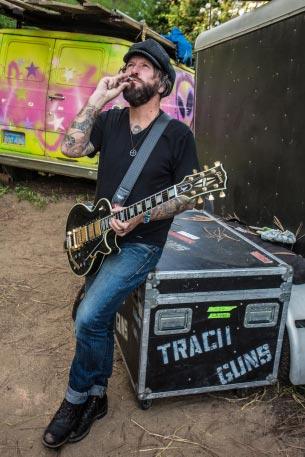
Rock And Roll International: Well when you say so quick, what was the timeframe like?
Jack Russell: Oh, I did probably, I was doing one, two, maybe sometimes three songs a day. Usually just the one because I don’t want to get too far off.
Rock And Roll International: Right.
Jack Russell: Me singing about nature and trees and bumblebees and the beauty of Earth and then your singing about nuclear war the next song. I usually like to sing one song at a time. Usually we like to do this like keeping the same headspace you know.
Rock And Roll International: Well, the album cover is extraordinary.
Jack Russell: Yeah
Rock And Roll International: Isn’t that wild!
Jack Russell: Yeah, it really is.
Rock And Roll International: Tell me about the title track “Medusa”. Surely that would be in your head since it is the title track.
continued on next page
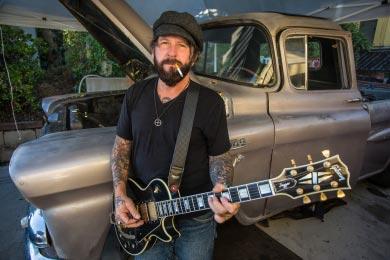
(continued from previous page)
Jack Russell: Well, the song you know it’s typical of chicks. You know, they grab your eye and you lust after him then what happens in the end, you know, they ruin you. They ruin your life. You turn you to stone. I’ve had a lot of bank accounts turn to stone.
Rock And Roll International: Oh, okay. The other performers on the album... Was there anybody from your regular touring band?
Jack Russell: No, not at all. These were guys all from overseas.
Rock And Roll International: Okay. So they’re in a studio in Italy.
Jack Russell: Yeah.
Rock And Roll International: And Tracii is somewhere else in the world.
Jack Russell: Yeah. And you’re there.
Jack Russell: Yep, I’m in Denver.
Rock And Roll International: Amazing.
Jack Russell: And then, if you told me this 10 years ago, I would have said ‘there’s no way. I don’t know, we may have had these technology years ago. I don’t know.
Rock And Roll International: It’s like, how far does this go now? Are you going to be driving down the road in your car recording?
Jack Russell: Yeah right, you never know. It’s pretty scary when you think about it.
Rock And Roll International: Yeah.
Jack Russell: Now they’re talking all this AI stuff. I don’t even know what the hell that means. And whether they’re gonna have some somebody make a voice for you. How does that happen?
Rock And Roll International: Well, they’ve done that now that with AI. They’ve sampled the voice and turned around and recorded a song. It sounds almost exact, but it does sound a tiny bit mechanical. Pretty wild.
Jack Russell: I gotta hear this. I gotta hear it. The whole concept just blows my mind. I can’t see how you can take the human element completely out of it. And have it still be a human enterprise, you know.
Rock And Roll International: You add more reverb?
Jack Russell: Yeah.
Rock And Roll International: Well, if AI gets out of hand and keeps going the way it is, you’re gonna have actors out of work, because people are gonna say, Well, I don’t have to pay 20 million for Bruce Willis. I can just generate this new guy and develop him and I don’t have to pay anything for him.
Jack Russell: Yeah, Make him look kinda like Bruce Willis, Butch Willis. Butch Willard, Butch Willard here.
Rock And Roll International: Yeah, we’ll be in a virtual world after a while.
Jack Russell: Yeah. Oh my god.
Rock And Roll International: Well, is there any songs in particular on here that you really just... I know, you probably love the entire thing. But since you didn’t write the album, are there any songs on here that you go? Wow, this was just right up my alley.
Jack Russell: Um, yeah. Oh, that song. I was thinking, it was just on the tip of my tongue too. I wish I had the set list with me.
Rock And Roll International: I can read all the songs to you.
Jack Russell: Okay, go ahead.
Rock And Roll International: “Next in line,” “Tell Me Why,” “Coming Down,” “Where I Belong,” “For You,” “Give Me The Night.” Give me the nights a good one. “Living A Lie,” “In And Out Of Love,” “Medusa” and “Back In Your Arms Again,” and “I Want You.”
Jack Russell: There’s something about all the facts I like. I think it’s a pretty well rounded album. Yeah. “Tell Me Why,” I like a lot. I like that one a lot.
Rock And Roll International: Well, you have a video out for “Tell Me Why” I believe and you’ve got one out for “Medusa.” And was it “In And Out Of Love” or “Back In Your Arms Again”? Was there a video out for that? I thought there was like three.
Jack Russell: I don’t know. I know we only did one with Tracii and I. We just have one.’
Rock And Roll International: Right?
Jack Russell: And then I would assume they’re probably going to want to do another video, but I don’t know what song.
Rock And Roll International: Well, after doing this, is this something like you’d like to continue doing or would you feel better back in the studio with a band there?
Jack Russell: Well, I prefer that, but I don’t mind it. It’s not like, I wouldn’t do this again. You know, matter of fact, I’m signed up to do another one at some point. You know, I’m not sure who with or when or you know what type of music as well. I know what’s happening with the music, it’ll be rock again. But I don’t know if it’s gonna be Tracii. I hope that will be the case. We can do another one together. That’d be cool.
Rock And Roll International: Okay, It will be interesting to see you both out on the road together performing. Are there any plans on a tour?
Jack Russell: No, I haven’t thought about that. You know, I have to be realistic because I do have a band and I owe them their living. At least I look at it that way. I mean, I want to take my time off and they don’t do anything until I get ready to work again and they’re always available for me. So I would assume that they would be expecting me to hold up on my end. It’s time to tour... no, sorry guy’s, going out with Tracii. What?
continued on next page
Rock And Roll International: Well, you could go out on the road with Tracy and still have the band with you and Tracii could do just do leads.
Jack Russell: Yeah, but what about Tracy and his band? Well, there’s always somebody who’s gonna get the stick?
Rock And Roll International: Two sets.
Jack Russell: I mean, yeah, two sets, now it’d be getting sick. I don’t know, I’ve really not given too much thought about that topic, because it is something that’s going to come up at some point. And I figure I’ll just approach it when it comes up. We’ll see what the timing is like, and we’re out at that moment. It might be feasible, may not be. There may be way to do it. There may be where we want to launch something with that, being the piece de resistance, so to speak. I mean, that might be like the here’s the big thing, here is a surprise. Yeah, you got the bands playing and then Tracii and I could team up at the end and play a few songs together.
Rock And Roll International: Yeah, yeah, just go out and do your songs, his songs, and then together get together and with select members of the band and do a few of the new songs.
Jack Russell: Yeah, yeah.
Rock And Roll International: When will we see you on the road again?
Jack Russell: Well, if you’re in Vegas, you will see me this weekend. We’ll be at the Golden Nugget on Friday night. And after that, we’re going to be at Ohio.
Rock And Roll International: Well, I’m based out of Houston and I know you’ve played Houston too many times.
Jack Russell: Rigorously. Yes.
Rock And Roll International: Right. Well, I probably ought to let you get back to your day. You probably have someone else you have to talk to now.
Jack Russell: Actually, no. Now it’s time to get ready to start packing.
Rock And Roll International: Where are you heading off to?
Jack Russell: Heading off to Vegas?
Rock And Roll International: Oh, yeah, for the show tonight.
Jack Russell: The show’s on Saturday.
Rock And Roll International: Saturday.
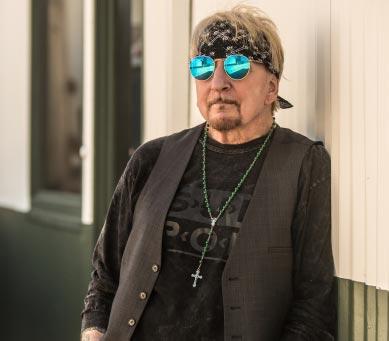
Okay, you get there early and set up.
Jack Russell: On Friday night. So we won’t leave until early here on Thursday. Thursday night.
Rock And Roll International: So when you get to Vegas, do you play the slot machines or your cards or anything?
Jack Russell: I try not to play? Because it’s just you know, it’s the odds are you’re gonna lose, you know?
Rock And Roll International: Yeah. Well, they say what’s what happens in Vegas stays there. And I always would always assume that’s the money they’re talking about?
Jack Russell: Yeah, exactly.
Rock And Roll International: But I gamble every day. I usually wind up on the freeway driving.
Jack Russell: Yeah that’s definitely a way to do it. Now you’re gambling the big bucks then.
Rock And Roll International: Yeah. Yeah. Well, it was a pleasure talking with you.
Jack Russell: You too, man. I appreciate it very much. Thanks for your time.
Rock And Roll International: Well, thank you and you have a wonderful time. And I wish I could go to Vegas and see your show. But it’s not in the cards for me right
now.
Jack Russell: Right. Well, I’ll tell you what, you say healthy. Enjoy the rest of the year.
Rock And Roll International: You too will talk again one of these days. Let’s talk when you do the new album.
Jack Russell: All right. That sounds good.
Rock And Roll International: Okay.
Jack Russell: All right, man. I’ll reach out.
Rock And Roll International: Okay. Bye bye. Talk to you.
Well, Jack really seems to embrace the new trends towards recording and it’s a good thing he did. “Medusa”, the new album from Russell/Guns is a fantastic album and I would have had no idea that it had been recorded like that. It certainly is an eye-opener. Tracii’s guitar playing is fantastic and Jack sounds better than ever. If you’re a Jack Russell or Tracii Guns fan, you’re definitely going to have to add this to your collection. Every song on here sounds great and it’s one of the best rock albums we’ve heard out this year. If this is anything like the rest of the year, 2024 is going to be a great year for rock music. At any rate, be sure to pick up your copy of “Medusa” by Russell/Guns today.

https://youtu.be/GUB4gsM_GGQ
Louisiana’s beloved Tab Benoit is back on the road for his epic 2024 Night Train Tour across the U.S. The journey kicked off in Baton Rouge on the 23rd of last month and is set to hit states including Oklahoma, Iowa, Illinois, Virginia, North Carolina, South Carolina, and
36 Rock and Blues International
many more before concluding on November 16th in Boca Raton, Florida.
Hailing from the vibrant Bayous of Southern Louisiana, Tab Benoit stands out as one of the region’s most impressive guitarists in recent memory. His distinct guitar tone often precedes his
• March 2024
soulful Otis Redding-esque voice, with a setup that’s refreshingly simple: just a guitar, cord, and Category 5 Amplifier. The magic you hear? That comes straight from his fingertips.
Born on November 17, 1967, in Baton Rouge, Louisiana, Benoit grew up in Houma, a neighboring town steeped in oil and fishing culture, where he still resides today. Surrounded by traditional Cajun waltzes and the country tunes of his hometown’s lone radio station, Benoit’s early musical influences were diverse. His father, a musician himself, ensured their home was filled with a variety of instruments. Initially drawn to drums, Benoit made the switch to guitar due to the quieter demands of the church gigs and fairs that populated rural Louisiana’s music scene.
In the late ’80s, Benoit found himself frequenting the Blues Box, a cultural hub in Baton Rouge led by guitarist Tabby Thomas. Jamming alongside blues legends like Raful Neal and Henry Gray, Benoit absorbed the essence of the blues firsthand. By 1987, he had formed his own trio, gracing the stages of clubs in Baton Rouge and New Orleans.
1992 marked the release of Benoit’s debut album, “Nice and Warm,” under the Justice Label. The title track quickly soared as a hit on AAA Radio, propelling Benoit into a whirlwind of tours. Drawing comparisons to blues giants such as Albert King, Albert Collins, and even Jimi Hendrix, Benoit soon found himself playing a staggering 250 shows a year—a rhythm he maintained for over two decades. With four albums under Justice Records, Benoit became Louisiana’s premier blues export before signing with Vanguard Records. This new partnership allowed Benoit the freedom to produce his own music, leading to the release of “These Blues Are All Mine” in 1999.
In 2002, Benoit took yet another musical turn with his signing to Telarc International/Concord Music Group. Stripping down to a three-piece band, he discovered newfound liberation as a guitarist. Simultaneously, Benoit embraced a mission to spotlight Louisiana’s coastal erosion crisis.
continued on next page
Spending more time in the Wetlands, he found inspiration for his music, culminating in his Telarc/Concord International release, “Wetlands.” This album showcased Louisiana’s diverse musical styles, with Benoit even incorporating accordion and washboard sounds into his guitar.
Following “Wetlands” in 2004, Benoit founded the Voice of the Wetlands non-profit organization (www.voiceofthewetlands.org), using music as a platform to raise awareness. Gathering a stellar lineup of musicians including Cyril Neville, Anders Osborne, and George Porter Jr., among others, he formed The Voice of the Wetlands All-Stars. This band, dedicated to the cause, released two albums and occasionally tours the nation.
Throughout his career, Benoit has continually pushed boundaries to craft a sound uniquely his own. This creative journey culminated in 2011 with the release of “Medicine,” which earned him the esteemed “BB King Entertainer of the Year” title at the 2012 Blues Music Awards in Memphis. Concord followed up with “Tab Benoit’s Legacy,” a compilation honoring his musical achievements.
In a bold move, Benoit and manager Rueben Williams launched Whiskey Bayou Records, aimed at showcasing talented artists deserving of recognition. The label has already featured works by artists like Eric McFadden, Damon Fowler, and Big Chief Monk Boudreaux.
In 2024, you can find Tab Benoit cutting through the noise, captivating audiences across the U.S. For over three decades, this American troubadour has been forging his unique path through the annals of music history.
With an unmistakable style that blends the soulful sounds of Louisiana’s Bayous with the raw power of blues guitar, Benoit’s music is a testament to the rich musical heritage of his home state. His live performances are legendary, drawing fans from all corners of the country to witness his electrifying stage presence. From the smoky clubs of Baton Rouge to the grand stages of major music festivals, Benoit’s music transcends boundaries and speaks to the heart of anyone who listens.
Beyond his musical prowess, Benoit is also a passionate advocate for the preservation of Louisiana’s Wetlands. Through his Voice of the Wetlands organization, he has brought attention to the environmental challenges facing this vital ecosystem. His commitment to using his music as a force for good has inspired countless others to join the cause, making a tangible impact on the region’s conservation efforts.
As Tab Benoit embarks on his latest tour, fans eagerly anticipate the chance to experience his music live once again. With each note he plays, he continues to etch his name into the pantheon of blues greats, solidifying his legacy as one of Louisiana’s finest sons.
In 2024, the Night Train Tour promises to be a celebration of Benoit’s remarkable career, showcasing the evolution of his sound and the enduring passion he brings to every performance. From the smoky bars of Baton Rouge to the bright lights of the big stage, Tab Benoit remains a true icon of American music, a master of the blues, and a tireless champion for the culture and environment that inspire his art.
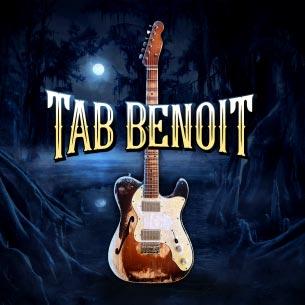
March 1 (Fri) - Arlington TX@Arlington Music Hall
March 2 (Sat) - Cedar Park TX@Haute Spot
March 3 (Sun) - Oklahoma City OK@Tower Theatre
March 6 (Wed) - Memphis TN@Railgarten
March 7 (Thur) - Edwardsville IL@Wildey Theatre
March 8 (Fri) - Columbia MO@The Blue Note
March 9 (Sat) - Iowa City, IA@The Englert Theatre
March 10 (Sun) - Minneapolis MN@The Dakota
March 11 (Mon) - Minneapolis MNW@The Dakota
March 14 (Thur) - Viroqua WI@Historic Temple Theatre of Viroqua
March 15 (Fri) - Des Plains IL@Des PlainesTheatre
March 16 (Sat) - Bloomington IL@The Castle Theatre
March 17 (Sun) - Whitestown IN@Moontown Brewing Company
April 3 (Wed) - Hopewell VA@Beacon Theatre**
April 4 (Thur) - Rocky Mount VA@Harvester Performance Center**
April 5 (Fri) - Charlotte NC@Neighborhood Theatre**
April 6 (Sat) - Charleston SC@Charleston Music Hall**
April 7 (Sun) - Jacksonville FL@Springing The Blues Festival
April 9 (Tue) - Stuart FL@The Lyric Theatre***
April 10 (Wed) - Key West FL@Key West Theatre***
April 12 (Fri) - Melbourne FL@King Center For The Performing Center***
April 13 (Sat) - Boca Raton FL@The Funky Biscuit***
April 14 (Sun) - St. Petersburg FL@Tampa Bay Blues Festival
April 17 (Wed) - Wilmington NC@Kenan Auditorium**
April 18 (Thur) - Newberry SC@Newberry Opera House**
April 19 (Fri) - Macon GA@Capitol Theatre**
April 20 (Sat) - Fort Walton Beach FL@Downtown Music Hall**
April 27 (Sat) - New Orleans LA@The Fillmore*
April 30 (Tue) - New Orleans LA@NOLA Crawfish Festival
May 4 (Sat) - New Orleans LA@New Orleans Jazz Festival
June 7 (Fri) - Kansas City MO@Knuckleheads
June 8 (Sat) - Springfield MO@13th Annual Stomp The Blues Festival
June 14 (Fri) - Salt Lake City UT@Utah Blues Festival
Sept 5-8 (Thur-Sun) - Las Vegas NV@Big Blues Bender
Sept 13 (Fri) - Telluride CO@Telluride Blues & Brews Festival
Sept 14 (Sat) - Telluride CO@Telluride Blues & Brews Festival
Oct 19 (Sat) - Steelville MO@Wildwood Spring Lodge
Nov 8 (Fri) - Crowley LA@The Grand Opera House Of The South
Nov 16 (Sat) - Boca Raton FL@Boca Blues Festival at Sunset Cove Amp
*Delta Blues Explosion
**Direct Support:Anthony Rosano & the Conqueroos
***Direct Support: Ghalia Volt
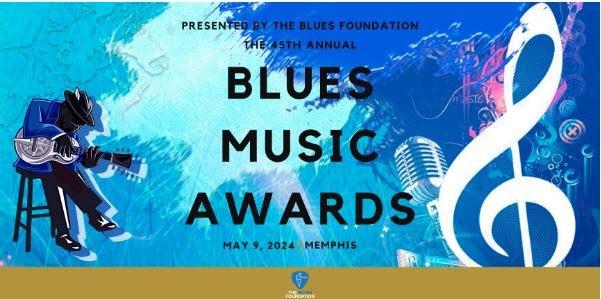
(Memphis TN) – The Blues Foundation is excited to announce the Nominees for the 45th Annual Blues Music Awards, taking place Thursday, May 9 in Memphis, TN.
Acoustic Album
Wild Ox Moan, Catfish Keith
Raw Blues 1, Doug MacLeod
Sticks & Strings, EG Kight
Ridin’ the Blinds, Hudspeth & Taylor
Ghost Hymns, William Lee Ellis
Acoustic Artist
Catfish Keith
Doug MacLeod
Eric Bibb
Keb’ Mo’
Kevin Burt
Album of the Year
Teardrops From Magic Slim, John Primer
Live In London, Christone “Kingfish”
Ingram
SoulFunkn’BLUES, Blackburn Brothers
Soul Side of Sipp, Mr. Sipp (Castro
Coleman)
Get Your Back Into It!, Nick Moss Band Featuring Dennis Gruenling
B.B. King Entertainer
Beth Hart
Bobby Rush
Lil’ Ed Williams
Mr. Sipp (Castro Coleman)
Vanessa Collier
Band of the Year
Larkin Poe
Nick Moss Band
Selwyn Birchwood Band
Southern Avenue
Tedeschi Trucks Band
Best Emerging Artist Album
When the Levee Breaks: The Music of Memphis Minnie, Candice Ivory
The Right Man, D.K. Harrell
Up Next, Mathias Lattin
Everybody’s Buddy, Nic Clark
Tony Holiday, Mississippi Motel
Blues Rock Album
Power, Anna Popovic
Writing On The Wall, Coco Montoya
Blues Deluxe Vol. 2, Joe Bonamassa
Blood Brothers, Mike Zito/ Albert Castiglia
What Key Is Trouble In?, Nick Schnebelen
Blues Rock Artist
Ana Popovic
Joe Bonamassa
Kenny Wayne Shepard
Mike Zito
Warren Haynes
Contemporary Blues Album
Live In London, Christone “Kingfish”
Ingram
Ridin’, Eric Bibb
Behind The Veil, Jason Ricci and the Bad Kind
Healing Time, Ruthie Foster
Exorcist, Selwyn Birchwood
Contemporary Blues Female Artist
Carolyn Wonderland
Danielle Nicole
Janiva Magness
Teresa James
Vanessa Collier
continued on next page

Contemporary Blues Male Artist
Chris Cain
Christone “Kingfish” Ingram
Marquise Knox
Mr. Sipp (Castro Coleman)
Selwyn Birchwood
Instrumentalist - Bass
Bob Stroger
Larry Fulcher
Michael “Mudcat” Ward
Rodrigo Mantovani
Willie Weeks
Instrumentalist - Drums
Derrick D’Mar Martin
June Core
Kenny “Beedy Eyes” Smith
Tom Hambridge
Tony Braunagel
Instrumentalist - Guitar
Christoffer “Kid” Andersen
Christone “Kingfish” Ingram
Derek Trucks
Laura Chavez
Sue Foley
Instrumentalist - Harmonica
Billy Branch
Bob Corritore
Dennis Gruenling
Jason Ricci
Kim Wilson
Instrumentalist - Horn
Deanna Bogart
Jimmy Carpenter
Mark Kaz Kazanoff
Trombone Shorty
Vanessa Collier
Instrumentalist - Pinetop Perkins
Piano Player
Ben Levin
Dave Keyes
Jim Pugh
Kenny “Blues Boss” Wayne
Mitch Woods
Instrumentalist - Vocals
Billy Price
Diunna Greenleaf
John Nemeth
Ruthie Foster
Shemekia Copeland
Song of the Year
“Bobby’s Blues” performed by the Blackburn Brothers, written by Brooke Blackburn
“Horns Below Her Halo” performed by Selwyn Birchwood, written by Selwyn Birchwood
“Midnight Heat” performed by Christone “Kingfish” Ingram, written by Tom Hambridge & Richard Fleming
“The Bait In the Snare” performed by Nick Moss Band featuring Dennis Gruenling, written by Nick Moss
“What Kind Of Fool” performed by Ruthie Foster, written by Ruthie Foster, Hadden Sayers & Scottie Miller
Soul Blues Album
Stuff I’ve Been Through, Alabama Mike SoulFunkin’ BLUES, Blackburn Brothers
All My Love For You, Bobby Rush
Walking Heart Attack, Johnny Rawls
Soul Side of Sipp, Mr. Sipp (Castro Coleman)
Soul Blues Female Artist
Annika Chambers
Kat Riggins
Terri Odabi
Thornetta Davis
Trudy Lynn
Soul Blues Male Artist
Alabama Mike
Billy Price
John Nemeth
Johnny Rawls
William Bell
Traditional Blues Album
Teardrops For Magic Slim: John Primer
Nothing But Time, Monster Mike Welch
Get Your Back Into It!, Nick Moss Band Featuring Dennis Gruenling
Savoy, Taj Mahal
Oscar’s Motel, The Cash Box Kings
Koko Taylor Award (Traditional Blues Female Artist)
Diunna Greenleaf
Rhiannon Giddens
Shaun Murphy
Sue Foley
Teeny Tucker
Traditional Blues Male Artist
Billy Branch
Cedric Burnside
John Primer
Jontavious Willis
Nick Moss
The Blues Foundation is a world-renowned Memphis-based organization whose mission is to preserve blues heritage, celebrate blues recording and performance, expand worldwide awareness of the blues, and ensure the future of this uniquely American art form. Founded in 1980, the Foundation has approximately 4,000 individual members and 180 affiliated blues societies representing another 50,000 fans and professionals worldwide.
The BF’s signature honors and events — the Blues Music Awards, Blues Hall of Fame Inductions, International Blues Challenge, and Keeping the Blues Alive Awards — make it the international hub of blues music. Its HART Fund provides the blues community with medical assistance for musicians in need, while Blues in the Schools programs and Generation Blues Scholarships expose new generations to blues music. The Blues Hall of Fame Museum, located in Downtown Memphis, adds the opportunity for blues lovers of all ages to interact with blues music and history.
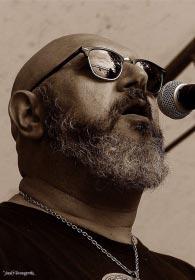
Originally from a quiet village in the Seine-et-Marne department, south of Paris, Freddy Miller joined his vocation as a singer and entertainer relatively late, around the age of thirtyfive. Now that he has more than fifteen years at the top of the French blues scene behind him, he fondly remembers his first achievements, when he headed Shake Your Hips, declared “Best Electric Blues Band” in 2007, at the Blues sur Seine competition. With the group that took its name from a Slim Harpo floorfiller, he released two albums, was heard up and down the motherland, toured Canada and represented the Hexagon at the 2013 International Blues Challenge in Memphis and, the following year, at the European Blues Challenge in Riga, Latvia.
Once that experience was over, in 2015 he decided to start on his own. A rewarding move: the first disc under his name, which bears the assertive title My Blues, was immediately included by “Blues Magazine” among the best works of 2017.
?Over time, Miller has built himself a credible profile as a blue-eyed soul brother, along the lines of illustrious predecessors such as Eddie Hinton, Joe Cocker, and Jimmy Hall. These and others, rather than precise models to imitate, are solid points of reference; apparently, Freddy relies above all on the intuitions and strengths he finds within himself: a throat-and-belly most powerful voice, on the border between the desolation of a soul laid bare and the wisdom of the bluesman who has acquired the knowledge of life by paying his dues.
Even for his latest record, generous with rhythmic, slow, and thoughtful songs and announced by an exquisitely soulful title track, he chose an evocative name. Just Be Yourself dips its brush equally into blues, soul, and rock, striking up minor classics like the hypnotic quasi-gospel “I’m Not Coming Home”, the moving psychodrama “Two Wrongs Don’t Make a Right”, the ultra-slow deep soul “Autumn Mist” and the disarming “Never Gonna Be This Way”, with its very long intro of organ and guitar, performed respectively by Patrice Cuvelier and Virgil Viard.
Passionate and self-taught, assured of his own endowments, Miller dedicates himself to singing and songwriting, entrusting the instrumental parts to skilled professionals, including Manuel Sudrie on trumpet, Philippe Perronnet and Nicolas Barbier on saxophones, Anthony Delannoy on bass and Christophe Bertin on drums, while Anaïs and Mathilde Maingot take care of the vocal harmonies.
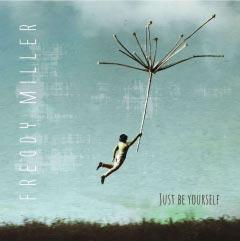
The small orchestra ensures that the groove keeps guiding him, as summarized by the funky final tune “Let the Groove Be Your Guide”, halfway between a tutorial and a political manifesto.
Originario di un tranquillo paesino del dipartimento di Seine-et-Marne, a sud di Parigi, Freddy Miller ha aderito relativamente tardi, verso i trentacinque anni, alla vocazione di cantante e di uomo di spettacolo. Ora che ha alle spalle più di tre lustri ai vertici del blues francese, ricorda con affetto i primi segnali di emersione, quando era a capo di Shake Your Hips, dichiarata “Best Electric Blues Band” nel 2007 al contest Blues sur Seine. Con la formazione che prendeva il nome da un riempipista di Slim Harpo pubblicò due album, si fece ascoltare in giro per la madrepatria, fece un tour del Canada e rappresentò l’Esagono sia all’International Blues Challenge di Memphis del 2013 che, l’anno seguente, all’European Blues Challenge di Riga, in Lettonia.
Terminata quell’esperienza, nel 2015 decise di mettersi in proprio. Una mossa premiante: il primo disco totalmente a suo nome, che reca l’assertivo titolo My Blues, fu subito incluso da “Blues Magazine” tra i migliori lavori del 2017.
Nel tempo, Miller si è costruito addosso una credibile figura di blue-eyed soul brother, sulle linee di notevoli predecessori come Eddie Hinton, Joe Cocker e Jimmy Hall. Costoro e altri, piuttosto che precisi modelli da imitare, sono validi punti di riferimento; a quanto pare, Freddy conta soprattutto su intuizioni e punti di forza che trova dentro di sé, una voce potente di gola e profonda di viscere, ai confini tra la desolazione di un’anima messa a nudo e l’autorevolezza del bluesman che ha maturato a sue spese la conoscenza della vita.
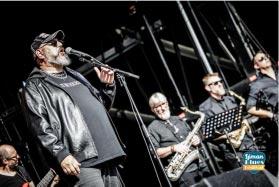

Anche per l’ultimo album, generoso di brani scanditi e meditabondi e annunciato da una title track squisitamente soulful, ha scelto un nome evocativo. Just Be Yourself intinge il pennello in egual misura in blues, soul e rock, intonando piccoli classici come l’ipnotico quasi-gospel “I’m Not Coming Home”, l’incalzante psicodramma “Two Wrongs Don’t Make a Right”, il deep soul ultralento “Autumn Mist” e la disarmante “Never Gonna Be This Way”, dalla lunghissima apertura di organo e chitarra, eseguita rispettivamente da Patrice
Cuvelier e Virgil Viard.
Appassionato autodidatta, convinto dei propri mezzi, Miller si dedica al canto e alla composizione, affidando le parti strumentali a professionisti di valore, tra cui Manuel Sudrie alla tromba, Philippe Perronnet e Nicolas Barbier ai sassofoni, Anthony Delannoy al basso e Christophe Bertin alla batteria, mentre Anaïs e Mathilde Maingot si occupano delle armonie vocali. La piccola orchestra assicura che sia il groove a guidarlo, come riassume il funk del brano conclusivo “Let the Groove Be Your Guide”, a metà strada tra un tutorial e un manifesto politico.


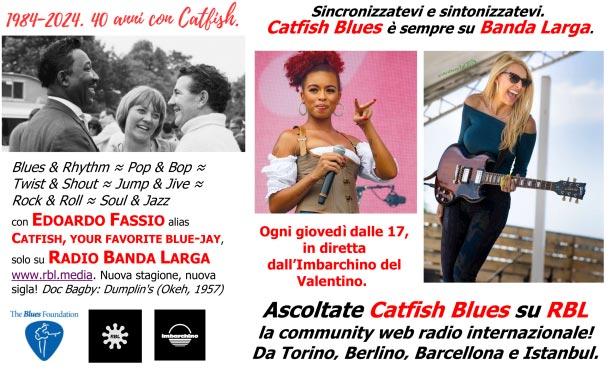
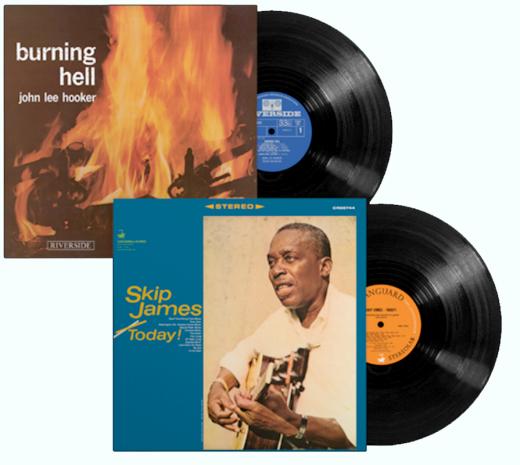
Craft Recordings has unveiled its latest endeavor, Bluesville Records, a reissue series that pays homage to America’s foundational music genre, the blues, and the trailblazing artists who shaped its legacy. Drawing inspiration from the original Bluesville imprint established by Prestige Records in 1959, the revitalized series aims to cater to blues enthusiasts of all levels, from newcomers to seasoned collectors.
Bluesville Records will showcase timeless titles from esteemed labels like Prestige, Vee-Jay, Riverside, Vanguard, Stax, and Rounder. Alongside vinyl reissues in partnership with Acoustic Sounds, the series will offer an array of digital content, including hi-res reissues and curated playlists.
The inaugural releases under Bluesville Records are slated for June 7th, featuring iconic albums from legendary artists John Lee Hooker and Skip James.
Hooker’s “Burning Hell,” originally released in 1964, and James’ “Today!” from 1966, are set to kick off the series, promising to immerse listeners in the raw, soul-stirring essence of the blues.
Each meticulously selected Bluesville title will undergo an analog mastering process by GRAMMY-nominated engineer Matthew Lutthans at The Mastering Lab. Pressed on 180-gram vinyl at QRP, the albums will be housed in faithful reproductions of tip-on jackets, accompanied by insightful reflections from GRAMMY-winning producer, writer,
and musician Scott Billington.
Founder of Acoustic Sounds, Chad Kassem, expresses excitement about the collaboration, emphasizing the importance of preserving and enhancing the sonic quality of these blues classics. “Craft Recordings owns some very important blues albums,” Kassem notes, “I am honored and excited to work with them to ensure that their new Bluesville reissues will sound as good as possible.”
Bluesville Records aims not only to preserve the blues’ historical significance but also to celebrate its enduring impact on modern music. With plans for ongoing releases featuring revered artists like Albert
continued on next page
King, Lightnin’ Hopkins, Jimmy Reed, and Blind Gary Davis, the series is poised to become an indispensable resource for blues aficionados worldwide.
For more information on Bluesville Records and updates on forthcoming releases, enthusiasts can visit bluesvillerecords.com and follow Bluesville Records on social media platforms such as Facebook, Instagram, and YouTube. Pre-orders for the debut albums from John Lee Hooker and Skip James are available now, offering fans the opportunity to be among the first to experience the revitalized sounds of Bluesville Records.
John Lee Hooker – Burning Hell
John Lee Hooker, often hailed as “The King of the Boogie,” left an indelible mark on American music with his soul-stirring blues compositions and gritty vocals. Born in Mississippi in 1917, Hooker’s musical journey led him to Detroit, where he cemented his place in the industry with iconic recordings like “Boogie Chillen’,” which soared to the top of the R&B charts in 1948.
One of the pivotal moments in Hooker’s career came in April 1959, when he stepped into a Detroit studio to record “Burning Hell” for Riverside Records. This album, recorded alongside “The Country Blues of John Lee Hooker,” showcased a departure from Hooker’s electric, R&Binfused sound, instead focusing on his Delta blues roots. Accompanied solely by his acoustic guitar, Hooker delivered a poignant collection of original compositions and blues standards, including “Graveyard Blues,” “You Live Your Life and I’ll Live Mine,” and the titular track, “Burning Hell.”
Despite the album’s powerful performance, it wasn’t released until 1964, following Hooker’s rise to prominence in the UK during the blues revival. Initially available only in Europe, “Burning Hell” quickly gained acclaim as a sought-after rarity among blues and folk enthusiasts worldwide. Today, it stands as a testament to Hooker’s enduring legacy and artistic prowess.
Reflecting on the album, AllMusic praised its edgy and focused performances, while UKVibe noted the timeless freshness of its interpretations. Now, Craft Recordings unveils the long-awaited reissue of “Burning Hell,” marking its first worldwide release on a single vinyl LP and its debut in hi-res audio. This reissue promises to introduce a new generation of listeners to the raw, emotive power of John Lee Hooker’s music, ensuring that his legacy continues to resonate for years to come.
Skip James – Today!
Skip James, a seminal figure in Delta blues history, left an indelible mark on the
genre with his haunting vocals and unique fingerpicking style. Born Nehemiah Curtis James in Mississippi in 1902, James’s early years were shrouded in rumors of a wild lifestyle and unpredictable temperament, adding to his mystique as a bluesman in the 1920s.
Despite recording a series of singles for Paramount Records in 1931, James struggled to find success amid the Great Depression, remaining relatively unknown for the next three decades while working as a minister and choir director in the church.
In the 1960s, amidst rumors of his death, James was rediscovered by blues enthusiasts John Fahey, Henry Vestine (of Canned Heat), and Bill Barth. His return to the stage at the 1964 Newport Folk Festival marked a triumphant comeback, earning him newfound fame among a younger generation of fans.
One of James’s notable albums from this period is “Today!” released in 1966 by Vanguard Records. This album saw James revisiting many of his 1931 singles, including the widely covered “I’m So Glad,” known for its interpretation by Cream. With haunting vocals and emotionally raw lyrics, “Today!” showcased James’s mastery of the acoustic guitar and piano, accompanied only by bassist Russ Savakus on select tracks.
Critics hailed the album for its authenticity and emotional depth, with journalist Frank-John Hadley praising James’s ability to convey the harsh realities of prewar Mississippi through his music. AllMusic lauded “Today!” as one of the standout albums of the blues revival era, highlighting James’s exceptional vocals and instrumental prowess.
Now, fans have the opportunity to experience this enthralling album once again, as Craft Recordings announces its reissue on vinyl after over three decades. Additionally, “Today!” will be available in hi-res audio for the first time, allowing listeners to immerse themselves in the timeless sounds of Skip James’s music.
Both the vinyl reissue and hi-res digital formats of “Today!” are available for preorder, offering fans the chance to rediscover the brilliance of Skip James’s musical legacy.
Burning Hell Tracklist:
Side A
Side B
Hair Ain’t No Longer Than Mine
3. I Rolled And Turned And Cried The Whole Night Long
4. Blues For My Baby
5. Key To The Highway
6. Natchez Fire
Hi-res digital tracklist replicates the above*
Today! Tracklist:
Side A
1. Hard Times Killing Floor Blues
2. Crow Jane
3. Washington D.C. Hospital Center Blues
4. Special Rider Blues
5. Drunken Spree
6. Cherryball
Side B
1. How Long
2. All Night Long
3. Cypress Grove
4. Look Down the Road
5. My Gal
6. I’m So Glad
Hi-res digital tracklist replicates the above*
About Craft Recordings:
Craft Recordings is home to one of the largest and most essential collections of master recordings and compositions in the world. Its storied repertoire includes landmark releases from icons such as Joan Baez, John Coltrane, Creedence Clearwater Revival, Celia Cruz, Miles Davis, Isaac Hayes, John Lee Hooker, Little Richard, R.E.M., Joan Sebastian, and Traveling Wilburys. Plus, the catalog recordings of celebrated contemporary acts including A Day to Remember, Evanescence, Alison Krauss, Nine Inch Nails, Taking Back Sunday and Violent Femmes, to name just a few. Renowned imprints with catalogs issued under the Craft banner include Fania, Fantasy, Fearless, Musart, Nitro, Panart, Prestige, Riverside, Rounder, Specialty, Stax, Vanguard, Varèse Sarabande, Vee-Jay and Victory, among many others. Craft creates thoughtfully curated packages, with a meticulous devotion to quality and a commitment to preservation—ensuring that these recordings endure for new generations to discover. Craft is also home to the Billie Holiday and Tammy Wynette estates which preserve and protect their respective names, likeness and music through day-to-day legacy management of these cultural trailblazers.



Orchestral Manoeuvres In The Dark (OMD), the venerable electronic synth-pop group hailing from Britain, is celebrating a monumental achievement in their illustrious career. With a legacy spanning four decades — albeit interrupted briefly — they have amassed a staggering record of over 40 million albums sold worldwide, firmly establishing themselves as pioneers in the electronic music landscape.
Their discography reads like a roadmap through the evolution of synth-pop, featuring seminal albums such as Orchestral Manoeuvres In The Dark (1980), Organisation (1980), Architecture & Morality (1981), and Dazzle Ships (1983). These albums not only defined an era but also laid the groundwork for a genre that would influence generations of musicians to come. OMD’s impact extended far beyond their homeland, with hits like “If You Leave” from the Pretty In Pink soundtrack propelling them to stardom in the United States. Their success on both sides of the Atlantic is evidenced by their impressive chart performance, boasting 12 top 20 hits on the UK Singles Chart and three on the US Billboard Hot 100.
After commemorating their 40th anniversary, OMD made a triumphant return to the studio, unveiling their latest offering: Bauhaus Staircase. This album, released in the wake of 2017’s highly praised The Punishment Of Luxury, marks a significant milestone for the band. Notably, it is hailed as their most politically charged work to date, a testament to their continued relevance and artistic evolution. Reflecting on the creative process behind the album, Andy McCluskey, one of the band’s founding members, acknowledges the unique circumstances that fueled their inspiration: “I rediscovered the creative power of total boredom.”
Bauhaus Staircase, predominantly written, recorded, and mixed by McCluskey and Paul Humphreys, showcases the enduring synergy between the two musicians. Their collaboration was further enriched by the contributions of rock producer David Watts, known for his work with Sheffield band The Reytons. Watts’ involvement added a distinct flavor to the album, enriching its sonic landscape and reinforcing OMD’s reputation for pushing boundaries.
In addition to their studio endeavors, OMD has embarked on a series of sold-out shows across Europe, the UK, and Ireland, including a headline performance at London’s prestigious O2 Arena. Their return to the stage has been met with resounding applause, underscoring their enduring appeal and unwavering connection with audiences worldwide.
Looking ahead, OMD is gearing up for an eagerly anticipated North American tour, marking their first visit to the States in six years. The announcement of their fall 2024 tour dates has generated widespread excitement among fans, who eagerly await the opportunity to experience the band’s new material alongside their classic hits. “We are thrilled to embark on this tour and share our new music with audiences in North America,” says McCluskey, expressing his enthusiasm for the upcoming tour.
continued on next page
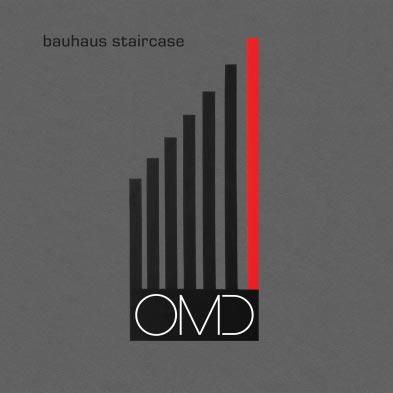
LISTEN/PURCHASE& SHARE:OMD - Bauhaus Staircase LP
Stream @ https://orcd.co/bauhausstaircase
Purchase @ https://100percent.it/BauhausStaircase
WATCH & SHARE: OMD - “Kleptocracy”
YouTube @ https://youtu.be/tzNvDQ7Iav8
LISTEN/WATCH & SHARE: OMD - “Anthropocene”
Stream @ https://orcd.co/bauhausstaircase
YouTube @ https://youtu.be/QARnckI8Ny8
LISTEN/WATCH & SHARE: OMD - “Veruschka”
Stream @ https://orcd.co/veruschka
YouTube @ https://youtu.be/p_xUr7LLqok
LISTEN/WATCH & SHARE: OMD - “Slow Train”
Stream @ https://orcd.co/omdslowtrain
YouTube @ https://youtu.be/4sGJvNJ6RgM
LISTEN/WATCH & SHARE: OMD - “Bauhaus Staircase”
Stream @ https://orcd.co/bauhausstaircase
YouTube @ https://youtu.be/EFpIz0RQU9c
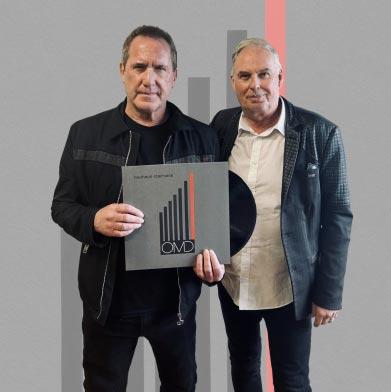
(continued from previous page)
Joining OMD on their North American tour will be Walt Disco, a band that expresses deep gratitude for the opportunity to tour alongside their musical heroes. “OMD’s support and friendship mean the world to us,” they remark, emphasizing the significance of this opportunity for their burgeoning career.
As anticipation builds for their upcoming tour, OMD continues to captivate audiences with their timeless music and unwavering creativity, reaffirming their status as one of the most beloved acts in electronic pop music. With each album and performance, they solidify their legacy while charting new territory in the ever-evolving landscape of music.
Orchestral Manoeuvres In The Dark (OMD), an iconic name in the annals of synth-pop, could easily have opted for a comfortable retirement, basking in the glow
OMD
Website
of their past successes, and delighting audiences with nostalgic renditions of hits like “Enola Gay” and “Maid Of Orleans” on the festival circuit. Yet, instead of succumbing to the allure of yesteryear, they’ve defied expectations by crafting a monumental album that not only stands as a testament to their enduring creativity but also propels them into new realms of musical exploration.
Their previous album, 2017’s The Punishment Of Luxury, marked a significant milestone in their career, catapulting Andy McCluskey and Paul Humphreys back into the charts with unprecedented success since 1991’s Sugar Tax. But rather than resting on their laurels, the duo embarked on a new journey, one that would lead to the creation of Bauhaus Staircase – a record hailed as their magnum opus, brimming with political fervor and artistic ambition.
“The universal love shown for The Punishment Of Luxury meant there were doubts about making a new album at all,” reflects Paul Humphreys. “The reception was so good, we thought: ‘Maybe we should stop now, at the top,’ so the idea of making a new record had some trepidation for us.”
Andy McCluskey shares the sentiment, expressing their commitment to maintaining the integrity of their legacy: “We wouldn’t forgive ourselves if we released an album where fans said: ‘Oh no, this is the one where they’re a pastiche of themselves.’ If Bauhaus Staircase is to be our last album, we’re going out with a strong statement.”
The genesis of Bauhaus Staircase coincided with the onset of the COVID-19 pandemic, a period of introspection and isolation that proved to be fertile ground for creative exploration. McCluskey reflects on this time, acknowledging the profound impact of total boredom on his creative process: “It was like being a teenager, mum watching Kojak and me thinking: ‘Forget this, I’m going to my room to write a song.’ For the first time since then, there was nothing else to do. It’s good inspiration.”
The resulting album is a sonic journey that traverses a diverse range of themes and influences. Songs like “Anthropocene” and “Kleptocracy” confront pressing issues such as humanity’s impact on the planet and the erosion of democracy, delivering a potent blend of social commentary and introspection. McCluskey’s boyhood fascination with paleoanthropology finds expression in “Anthropocene,” a haunting meditation on mankind’s precarious place in the cosmos.
“But amidst the weighty subject matter, Bauhaus Staircase also offers moments of vulnerability and tenderness,” adds McCluskey. “Tracks like ‘Look At You Now,’ ‘Where We Started,’ and the poignant closer ‘Healing’ reveal a more intimate side of OMD, capturing moments of introspection and resilience.”
“Where We Started” manages to convey a world of empathy and solace in just 34 words. “I had nothing more to say than those lyrics,” nods McCluskey. “It’s a song for someone I care deeply about, saying: ‘I’m sorry you’re hurting. I love you and, if you ever need a hug, let’s go back to page one.’ We were all isolated from each other during Covid, concerned for our health and future, but it was also a time of great compassion. Several songs on this album, although it was completely unconsciously, are about love and support in difficult times.”
Conversely, the clattering, hectic “Kleptocracy” is OMD’s greatest straight-up protest song. It was written at the start of lockdown but, as McCluskey points out: “References to Trump, Johnson, and Putin are sadly still relevant. They just won’t leave.” The line “It doesn’t matter who you vote for, they’ve bought the man you elected” summarises the duo’s disgust at the current state of democracy. “Dazzle Ships was about the Cold War, but we haven’t been so overtly political before,” says Humphreys. “The older we get, the more forthright we get. You have to be politically aware in the current climate, because there’s so much craziness continued on next page
(continued from previous page)
going on that you’re forced into an opinion.”
The chewy discourse of “Kleptocracy” is wrapped in an absolute earworm. “It’s what we do,” laughs McCluskey. “‘Enola Gay’ wasn’t the most palatable lyrical content, but that’s got a very catchy tune.”
Protest is also present in Bauhaus Staircase’s title track. Named after German artist Oskar Schlemmer’s 1932 painting, recreated by Roy Lichtenstein in 1988 for his Pop Art series of classics, it’s a nod both to McCluskey’s love of the Bauhaus era, the power of protest art, and his sadness as a trustee of National Museums Liverpool that Governments tend to cut arts funding just when times are hard and we need our souls nourishing.
“We knew ‘Bauhaus Staircase’ had to open the album and ‘Healing’ had to end it,” McCluskey reveals. “‘Bauhaus Staircase’ has this energy that grabs you as soon as the record starts. It starts aggressively, then it just builds and builds until it’s a maelstrom of synths and howling vocals.”
The tender “Healing” is a moment of reflective calm after the myriad emotions preceding it. It’s a rare OMD co-write, with lyrics by McCluskey’s friend, Liverpool singer-songwriter Caroline England, and production from Uwe Schmidt, who records as both lounge star Senor Coconut and glitch artist Atom TM. McCluskey says: “Caroline had said, semi-jokingly, that if I ever have writers’ block, she’d write some words for us. I called her bluff. What Caroline wrote works so well that I feel so comfortable singing ‘Healing.’ We’re big fans of Atom TM, so I sent Uwe the demo of ‘Healing,’ asking him to make it sound more modern. He took the rather lumpy musical idea I’d had and created a fantastic ambient electro swirl. Healing is such a beautiful song, emotionally very powerful.”
Humphreys and McCluskey envisage ‘Healing’ as a centrepiece in OMD’s new tour in April, which climaxes with a huge concert at London O2. “That’ll be a landmark, but it’s also terrifying to play such a big show,” admits Humphreys. “We always conceptualise how we look for each album, and we never scrimp on the budget. We love putting on a good show.” McCluskey adds: “Our touring sales have gone up exponentially in the last decade. We’ve been a bit of a secret band, but now that people have had chance to see us, they tend to come back.”
The new album’s other main external influence is David Watts. Mainly known as a rock producer, who helmed Sheffield band The Reytons’ recent No 1 album What’s Rock And Roll?, Watts mixed “Kleptocracy” and the raucous glam-tinged explosion, “Slow Train.” “David chose the right songs to work on,” notes Humphreys. “I’m a clean, electro mixer, whereas David brought some rock elements which enhances those songs appropriately.”
Humphreys ceded mixing the whole album as he became a second-time father two years ago, explaining: “I’ve got the sweetest kid, who’s taken up quite a bit of my time. I don’t want to work quite as hard as I have in the past, as I don’t want my daughter saying to my wife: ‘Who’s that guy over there?’ ‘That’s actually your dad.’”
If real life meant OMD were happy to get help, Bauhaus Staircase remains unmistakably the work of a duo who are still perfectly in sync 45 years after their first gig at legendary Liverpool club Eric’s. They wouldn’t have released the album if it wasn’t up to The Punishment Of Luxury’s exacting standards. “We might be seen as ‘heritage,’ but we’re not going to make a new album just so we can have a new logo on our T-shirts,” insists McCluskey. Or, as McCluskey summarises: “I’m very happy with what we’ve done on this record. I’m comfortable if this is OMD’s last statement.”
Bauhaus Staircase - TRACKLISTING: 01. Bauhaus Staircase
02. Anthropocene
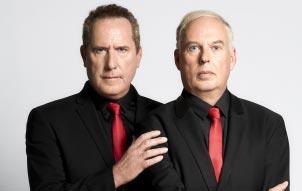
UK/EU LEG
Tue Feb 27th - Belfast - Ulster Hall
Wed Feb 28th - Dublin - 3Olympia Theatre
Fri Mar 1st - Manchester - O2 Apollo
Sun Mar 3rd - Liverpool - M&S Bank Arena
Tue Mar 5th - Leeds - First Direct Arena
Wed Mar 6th - Edinburgh - Usher Hall
Fri Mar 8th - Glasgow - Royal Concert Hall
Sat Mar 9th - Newcastle - O2 City Hall
Sun Mar 10th - Sheffield - City Hall
Tue Mar 12th - Leicester - De Montfort Hall
Wed Mar 13th - Nottingham - Royal Concert Hall
Fri Mar 15th - Wolverhampton - Civic Hall
Sat Mar 16th - Swansea - SwanseaArena
Sun Mar 17th - Southend-On-Sea - Cliffs Pavillion
Tue Mar 19th - Bristol - Beacon
Wed Mar 20th - Oxford - New Theatre
Fri Mar 22nd - Portsmouth - Guildhall
Sat Mar 23rd - Ipswich - Regent
Sun Mar 24th - London - The O2
Tue Mar 26th - Brighton - Dome
Wed Mar 27th - Eastbourne - Winter Gardens
US LEG - Tickets On Sale 2/23
Wed Sep 11th - Vancouver BC - Orpheum
Thu Sep 12th - Seattle WA -MooreTheatre
Fri Sep 13th -Portland OR - RoselandTheater
Sun Sep 15th - Oakland CA - Fox Theater
Tue Sep 17th - Las Vegas NV - House of Blues
Wed Sep 18th - Phoenix AZ - The Van Buren
Thu Sep 19th - Los Angeles CA - Greek Theatre
Fri Sep 20th - Los Angeles CA - Greek Theatre
Sat Sep 21st- San Diego CA- Balboa Theatre
Tue Sep 24th - Salt Lake City UT - Union Events Center
Wed Sep 25th - Denver CO - Paramount Theatre
Fri Sep 27th - Dallas TX - Majestic Theater
Sat Sep 28th -AustinTX - The Moody Theater @ ACL Live
Sun Sep 29th - Houston TX - Bayou Music Center
Fri Oct 4th - Minneapolis MN - First Avenue
Sat Oct 5th - Chicago IL - Riviera Theatre
Sun Oct 6th - Royal Oak MI - Royal Oak Music Theatre
Tue Oct 8th - Toronto ON - History
Wed Oct 9th - ClevelandOH - House of Blues
Thu Oct 10th - New York NY - Terminal 5
Sat Oct 12th - Huntington NY - The Paramount
Sun Oct 13th - Boston MA - House of Blues
Tue Oct 15th - Glenside PA - Keswick Theatre
Wed Oct 16th - Washington DC - Lincoln Theatre
Fri Oct 18th -Atlanta GA- Buckhead Theater
Sat Oct 19th- Orlando FL- The Plaza Live
Sun Oct 20th - St Petersburg FL - Jannus Live
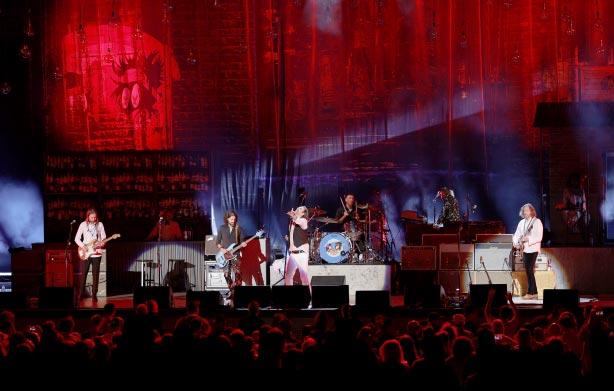
Listen to the new single “Wanting and Waiting”Her e At https://youtu.be/aO5zQNoHYc8
The Black Crowes are back and ready to rock the stage with their 2024 headline tour, The Happiness Bastards Tour, hitting 35 cities across North America and Europe this Spring. This tour comes in support of their highly anticipated upcoming studio album, Happiness Bastards, slated for worldwide release on March 15 through the band’s own Silver Arrow Records.
Happiness Bastards marks a milestone for The Black Crowes as their tenth studio album and their first original music release in 15 years. Produced by the acclaimed GRAMMY Award-
Winning producer Jay Joyce, the album features ten fresh tracks, including a special appearance by GRAMMYnominated superstar Lainey Wilson. As a nod to their legacy and an embrace of the present and future, the album promises the signature style and attitude that fans have come to love from one of the most essential rock bands of our time.
Accompanying the album announcement is the unveiling of the lead single “Wanting and Waiting,” a riffpacked anthem offering a taste of what’s in store. Frontman Chris Robinson expressed his excitement for the Happi-
ness Bastards Tour, saying, “Hope everybody is ready to rock & roll with us this spring! We’re thrilled to share songs from our new album, alongside some deep cuts, juicy covers, and all the classics you love!”
2024 marks 40 years since The Black Crowes’ inception, and the Robinson Brothers are seizing this monumental year as their own. After years marked by the tumult of life - from the highs of success to the lows of personal struggles - they are putting the
continued on next page
(continued from previous page)
past behind them and uniting to celebrate their enduring passion for rock n’ roll.
With their tenth studio album, Happiness Bastards, The Black Crowes are shedding the baggage of the past. Fifteen years since their last original music release, the Robinson Brothers are presenting a collection that feels both timely and timeless. Some might say this project has been years in the making, but to many, it arrives precisely when it’s needed most. Whether it’s fate or simply a shared love for music, this highly anticipated record marks the triumphant return of a legendary band and might just be the rallying cry that rock & roll needs.
In an era where the raw essence of rock music is often overshadowed by glossy productions, The Black Crowes are reclaiming their place with unfiltered emotion and stripped-down authenticity. No frills, no pretense—just the raw power of rhythm and blues at its finest: gritty, loud, and unapologetically bold.
Since reuniting in 2019, The Black Crowes have reclaimed their throne with over 150 shows across 20 countries, commemorating the 30th anniversary of Shake Your Money Maker, the album that launched them into stardom. Returning from their global tour, they knew it was time to create something new, to forge ahead with the next chapter of their storied career. In early 2023, the Robinson Brothers, joined by longtime bassist Sven Pipien, ventured into the studio with producer Jay Joyce. Drawing from the highs and lows of their journey, the band rediscovered their musical roots, resulting in the creation of Happiness Bastards.
Now, after much anticipation, Happiness Bastards is set to rock the airwaves on March 15, 2024, marking a triumphant return for The Black Crowes and a testament to the enduring power of authentic rock music.
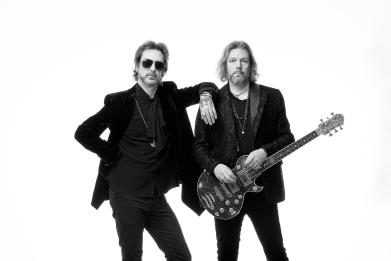
The Black Crowes pay homage to classic rock without simply mimicking their influences. Rather than copying the undeniable swagger of the Rolling Stones, the boozy groove of the Faces, or the rhythmic pulse of the Grateful Dead, they infuse these elements with their own distinctive flavors. The dynamic between the Robinson brothers—vocalist Chris and guitarist Rich—adds a layer of tension, while the band’s tight, fiery performances surpass the often looser styles of their musical forebears.
They burst onto the scene with their initial two albums: 1990’s “Shake Your Money Maker,” featuring a highoctane rendition of Otis Redding’s “Hard to Handle,” and 1992’s “The Southern Harmony and Musical Companion,” both of which soared up the charts. Over time, they ventured into the more expansive, jam-oriented realm of classic rock, before parting ways (for the first time) in 2002. Despite subsequent breakups and reunions, marked by albums like the politically charged “Warpaint” in 2008, the band continued to evolve.
After a five-year period of estrangement, they reconciled in 2020, marking the occasion with the release of the covers EP “1972,” subsequent tours, and the curation of reissued versions of their early records. Now, in 2024, they make their triumphant return with “Happiness Bastards,” their first studio album in 15 years.
The Robinson brothers originally
founded the band, then known as Mr. Crowe’s Garden, in Georgia back in 1984. They kicked things off with a strong inclination towards psychedelic rock and jangle pop, but gradually transitioned towards a sound deeply rooted in gritty, feel-good rock & roll. By the time their debut album, “Shake Your Money Maker,” hit the shelves in 1990, the lineup featured vocalist Chris Robinson, guitarist Rich Robinson, bassist Johnny Colt, guitarist Jeff Cease, and drummer Steve Gorman. The swaggering anthem “Jealous Again,” their first single off the album, showcased the band’s blend of infectious hooks and rebellious attitude. However, it was their electrifying rendition of Otis Redding’s “Hard to Handle” that catapulted the Black Crowes into multiplatinum success. The track soared into the Top 40, carrying the album along to the Top Ten in its wake. Their poignant acoustic ballad “She Talks to Angels” became their second Top 40 hit in the spring of 1991. Along their journey, the band’s reputation and popularity surged in tandem, marked by being kicked off a ZZ Top tour (for candidly criticizing the corporate sponsor) and landing a coveted spot on the Monsters of Rock tour.
Guitarist Cease departed the band before the recording sessions for their second album began, prompting the arrival of Marc Ford as his replacement. Teaming up once more with producer George Drakoulias, a key figure in
continued on next page
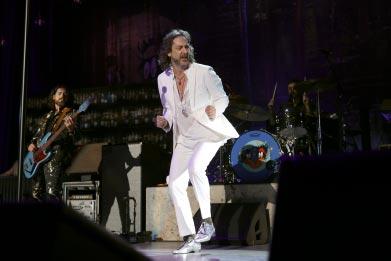
(continued from previous page)
shaping their sound, the Black Crowes released their sophomore effort, “The Southern Harmony and Musical Companion,” in early 1992, storming the charts at number one. Introducing the vintage keyboard stylings of another newcomer, Eddie Harsch, the album delved deeper into the soulful grooves of their debut, featuring a more robust guitar presence alongside Chris Robinson’s increasingly confident vocals.
Although the album’s tracks didn’t achieve the same chart success as before, the band solidified their status as a mustsee live act, selling out theaters across the country. Upon returning to the studio, they initially began work on their third album, “Tall,” but ultimately set it aside in favor of the more laid-back, jaminfluenced “Amorica,” released in late 1994 and making a Top Ten debut. This marked the band’s first collaboration with producer Jack Joseph Puig.
Puig returned to produce their 1996 release, “Three Snakes and One Charm,” recorded in Atlanta at a house the band had rented and inhabited during the recording sessions. The album embraced a looser vibe, enhanced by the addition of horns courtesy of the Dirty Dozen Brass Band. During this period, tensions between the Robinson brothers, now residing on opposite coasts, began
to influence their creative process. Rather than working together in person, they exchanged song ideas remotely.
Despite these challenges, the resulting album was met with acclaim, hailed by many as a return to the Black Crowes’ early brilliance.
The Black Crowes faced lineup changes in late 1997 with Ford’s departure and Colt’s exit to form the Brand New Immortals. Moving forward, Rich Robinson assumed all guitar duties for the band’s next release, “By Your Side,” a gritty, hard-rocking album that stripped their sound to its core elements. Following this was a notable collaboration with one of their idols, Led Zeppelin’s Jimmy Page, documented in the live album “Live at the Greek,” featuring a mix of Zeppelin covers and timeless blues classics.
Taking a breather in 2000, the band released “Greatest Hits 1990-1999: A Tribute to a Work in Progress,” a comprehensive 16-track compilation reflecting on their evolving career. Returning to the studio, they enlisted Don Was to produce “Lions” in 2001, a record embodying their diverse take on rock’s history, lyrically influenced by Chris Robinson’s relationship with actress Kate Hudson. In June of the same year, they embarked on a month-long
summer tour with Oasis, dubbed “the Tour of Brotherly Love” due to the sibling dynamics within both bands.
However, cracks began to show within the group, culminating in the decision to go on hiatus in January 2002, which also saw drummer Steve Gorman’s departure. Chris Robinson began planning his solo career, but it was Rich Robinson who took the first step with his solo project, releasing “Paper” in 2004. In 2005, the Black Crowes, including Ford on guitar, reunited for a legendary show at San Francisco’s Fillmore, captured and released as “Freak ‘N’ Roll...Into the Fog” in 2006.
During this time, “The Lost Crowes” was also unveiled in 2006, featuring two previously unreleased albums: 1993’s “Tall” (with segments later heard on “Amorica”) and the previously unheard 1997 album “Band.” Amidst lineup changes involving Harsch and Ford’s departure, the revamped band embarked on an extensive tour before focusing on their first studio album in seven years.
Welcoming newcomer Luther Dickinson, co-founder of the North Mississippi Allstars, the Black Crowes merged the rootsy essence of their early work with newfound political themes on 2008’s “Warpaint.” A live rendition of the album, “Warpaint Live,” followed in 2009. The same year, “Before the Frost...Until the Freeze” debuted, recorded live at Levon Helm’s studio and showcasing the band’s exploration into disco and cosmic folk. This marked their eighth studio album, earning accolades for its bold experimentation.
In 2010, The Black Crowes added to their impressive catalog with “Croweology,” a double-disc album featuring new acoustic renditions of their classic tracks. However, the album’s release was tinged with a sense of farewell, coinciding with a final tour before yet another indefinite hiatus. Rich Robinson ventured into his second solo album, “Through a Crooked Sun,” released in 2011, while Chris embarked on two albums with his new band, the Chris Robinson Brotherhood, in 2012.
continued on next page
(continued from previous page)
The Crowes reemerged in 2013, hitting the road for a tour and treating fans to the live album “Wiser for the Time,” released on vinyl. However, in January 2015, Rich Robinson delivered the news of the band’s breakup once again, marking another chapter in their tumultuous journey.
After spending fi
ve years apart pursuing solo endeavors, the Robinson brothers reunited in 2020 with a fresh Black Crowes lineup consisting of guitarist Isaiah Mitchell, bassist Tim Lefebvre, keyboardist Joel Robinow, and drummer Raj Ojha. The occasion marked a celebration of the 30th anniversary of their debut album “Shake Your Money Maker,” with plans for a commemorative tour. However, due to the outbreak of the COVID-19 pandemic, the tour was postponed until 2021, along with a deluxe reissue of “Shake Your Money Maker.”
The following year, in 2022, the band delighted fans with the release of the EP “1972,” featuring six newly recorded covers from that iconic year, infused with the signature Crowes style. As the band continued to perform live and evolve with changing members, bassist Sven Pipien returned to the lineup.
In 2023, The Black Crowes treated fans to a live album titled “Shake Your Money Maker Live,” alongside a deluxe edition of “The Southern Harmony and Musical Companion,” which included previously unreleased live-in-the-studio tracks.
Their journey took them back to the studio in 2024, collaborating with producer Jay Joyce to craft their first album of original material in 15 years, “Happiness Bastards.” The album marked a triumphant return to their roots, showcasing the timeless essence of the Black Crowes’ music.

April 2, 2024Nashville,TNGrand Ole Opry House
April 3, 2024Atlanta, GAFox Theatre
April 5, 2024Houston,TX713 Music Hall
April 6, 2024Irving,TXThe Pavilion at Toyota Music Factory
April 8, 2024Denver , COFillmore Auditorium
April 10, 2024Phoenix,AZArizona Financial Theatre
April 12, 2024LosAngeles, CAGreek Theatre
April 13, 2024Oakland, CAFox Theater
April 15, 2024Seattle,WAMcCaw Hall
April 16, 2024Vancouver, BCQueenTheatreElizabeth
April 19, 2024Chicago, ILByline Bank Aragon Ballroom
April 20, 2024Detroit, MIThe Fillmore Detroit
April 23, 2024Montreal, QCMTELUS
April 24, 2024Toronto, ONMassey Hall
April 27, 2024NewYork, NYRadio City Music Hall
April 28, 2024Boston, MAMGM Music Hall at Fenway
April 30, 2024Washington, DCThe Anthem
May 1, 2024Charlotte, NCOvens Auditorium
May 3, 2024Bethlehem, P AThe Wind Creek Event Center
May 4, 2024Atlantic City , NJOvation Hall at Ocean Casino Resort
May 7, 2024Philadelphia, P AThe Met Philadelphia
May 14, 2024Manchester , UKO2 Apollo
May 15, 2024London, UKEventim Apollo
May 17, 2024Newcastle, UKO2 City Hall
May 18, 2024Wolverhampton, UKThe CivicTheat Halls
May 21, 2024Brussels, BEAncienne Belgique
May 22, 2024Amsterdam, NLAF AS Live
May 24, 2024Paris, FRL ’Olympia
May 27, 2024Milan, ITT eatro Arcimboldi Milano
May 29, 2024Frankfurt, DEAlte Oper
May 30, 2024Stuttgart, DELiederhalle
June 1, 2024Berlin, DEV erti Music Hall
June 4, 2024Copenhagen, DKFalkonersalen
June 5-8, 2024Sôlvesborg, SESweden Rock Festival**
June 9, 2024Mérida, ESST ONE & MUSIC Festival
**Festival Date
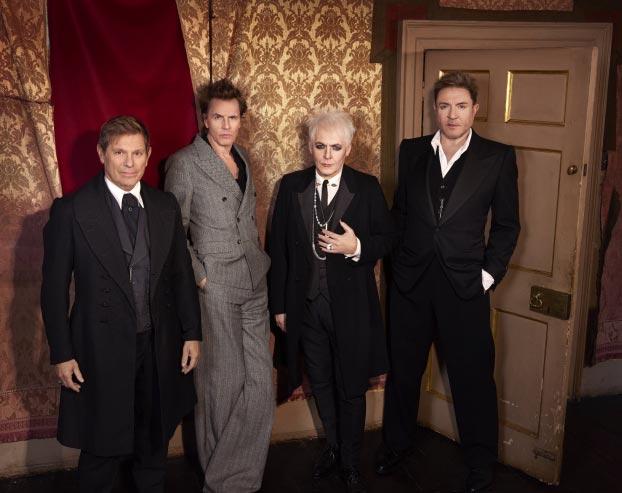
(continued from previous page)
By Greg FontaineIn a thrilling melding of music, mystique, and visual artistry, Duran Duran, the legendary British ensemble renowned for their iconic blend of dance-rock allure, has unveiled the official music video for their latest single, ‘Black Moonlight.’ The track, a fusion of the band’s dark side with their signature style, serves as a standout gem on their sixteenth studio album, ‘Danse Macabre,’ a record that has recently soared to the heights of success, securing the band their impressive 10th UK Top 5 LP.
Directed by the acclaimed GRAMMY-winning visionary, Jonas Åkerlund, whose creative genius has graced the works of music luminaries like Madonna, Beyoncé, and Lady Gaga, the ‘Black Moonlight’ video embarks viewers on a mesmerizing journey through a performative séance. Drawing inspiration from the hauntingly evocative album artwork, featuring images sourced from vintage séance photos curated by keyboardist Nick Rhodes, the visuals offer a spellbinding exploration of clairvoyance and mysticism. Produced by Black Dog Films, the video stands as a testament to Duran Duran’s unwavering commitment to pushing artistic boundaries.
Amidst the captivating visuals and pulsating beats of ‘Black Moonlight,’ the band finds themselves reunited with familiar faces, including longtime friend and collaborator Nile Rodgers on guitar and production, as well as former band member Andy Taylor contributing guitar parts. Nick Rhodes, in reflecting on the creative process behind the song and video, shares his excitement, remarking, “Shooting ‘Black Moonlight’ was the most fun we have all had on a video set in many years.”
He continues, “I have always felt the best music videos are all about the ideashaving a séance in a haunted house was a perfect fit for this song. The director, Jonas Åkerlund, truly understands style, attitude and atmosphere. He seized the moment and created an extraordinarily unique short film with us for the song ‘Black Moonlight’. I think a lot of people will be surprised and, I hope, just a little unsettled by the results…”
Echoing Rhodes’ sentiment, Jonas Åkerlund expresses his admiration for Duran Duran’s peerless style and collaborative spirit, stating, “Working with Duran
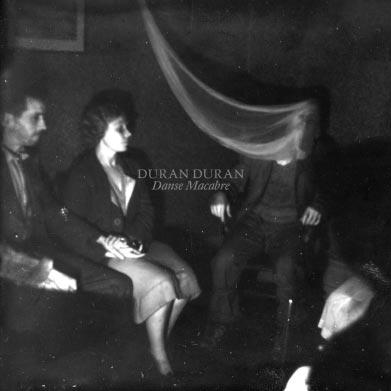
Duran is an endless inspiration. It’s a rare gift to work with artists who have such a peerless style and collaborative approach...”
He adds, “From the moment I heard ‘Black Moonlight’ and saw the album artwork I knew exactly what we needed to do. We all shared an interest in the occult and gothic aesthetics, so we dove into the dark side, together.”
Adding another layer of intrigue to the mesmerizing narrative of ‘Black Moonlight’ is a collaboration with Casamorati by Xerjoff, a revered nineteenth-century perfume house revived by creative visionary Sergio Momo. The perfume Dama Bianca, meaning ‘White Lady,’ takes center stage in the video, further enhancing the sensory experience and enriching the storytelling.
Sergio Momo, speaking about the collaboration, reveals, “We operate in the niche, artistic side of perfumery, so we combine perfume with other forms of art. The band is very much into perfume, which is very important because it is a language we can exchange. It’s a great honour to work with Duran Duran, one of the best bands in the world.”
As ‘Black Moonlight’ casts its captivating spell, it serves as a fitting centerpiece to ‘Danse Macabre,’ an album conceptualized during a legendary Halloween gig in 2022. Comprising 13 songs that seamlessly weave together new music, themed covers, and reimagined versions of classic tracks, ‘Danse Macabre’ has been hailed by critics as a treat for the senses, delightfully devilish, and imbued with spooky energy.
This release comes on the heels of a series of monumental achievements for Duran Duran, including their induction into the Rock & Roll Hall of Fame and headline performances at prestigious events such as London’s Hyde Park and the Queen’s Platinum Jubilee Concert. Their live shows continue to captivate audiences, earning rave reviews for their enduring energy and charisma.
‘Danse Macabre’ is now available via Tape Modern for BMG in various formats, including Black 2LP, CD, and limited-edition Translucent Galaxy 2LP, as well as high-res Blu-ray audio. With its captivating visuals, evocative music, and immersive storytelling, the album invites listeners to embark on a journey into the enigmatic world of Duran Duran.

Ontario-based blues/rock guitarist Shawn Kellerman is set to unleash his latest sonic creation, “Kell’s Kitchen,” on March 29th, marking a significant milestone in his illustrious career. With over two decades of experience as one of Canada’s most revered blues artists, Kellerman’s upcoming album represents a culmination of his musical journey, showcasing his diverse influences and unwavering dedication to the craft.
Comprising 14 tracks of soulstirring music, “Kell’s Kitchen” is a testament to Kellerman’s versatility and dynamism as a musician. From the electrifying opening trio of “SKB,” “Drivin’,” and “Show Me What You Got,” it’s evident that Kellerman is on a mission to captivate listeners with his unmistakable blend of raw energy and technical prowess.
One of the defining features of “Kell’s Kitchen” is its collaborative spirit, with Kellerman enlisting the talents of esteemed musicians to bring his vision to life. Joining him on this musical journey are luminaries such as Bobby Rush, whose soulful presence elevates the track “We Are Blues Men,” and harmonica virtuoso Jason Ricci, whose blistering performances add an extra layer of intensity to several songs.
However, Kellerman’s collaborative efforts extend beyond just guest appearances, with the album featuring co-written tracks that highlight his creative synergy with fellow artists. Tracks like “Down By The River,” inspired by Kellerman’s travels to Greece, and “Mac & Cheese,” a collaboration with longtime friend and blues artist ZOOM, showcase the depth of his musical connections and the rich tapestry of influences that inform his sound.
In addition to original compositions, “Kell’s Kitchen” also pays homage to Kellerman’s musical influences with continued on next page
(continued from previous page)
carefully selected covers. From a heartfelt tribute to Little Milton with “Livin’ Off The Love You Give” to a funky reinterpretation of The Guess Who’s classic “Runnin’ Back To Saskatoon,” each cover serves as a nod to the artists who have shaped Kellerman’s musical journey.
Reflecting on the album’s creation, Kellerman shares insights into his creative process and the personal significance of each track. “Lots of things were in my mind while putting this album together, from the different grooves I wanted, to lyrics drawn from things that have happened in my life, some of them serious and some funny,” he explains. This depth of emotion and personal connection infuses every note of “Kell’s Kitchen,” making it a deeply resonant and immersive listening experience.
Beyond the music itself, “Kell’s Kitchen” also serves as a testament to Kellerman’s enduring legacy within the Canadian blues scene. Raised in Kitchener, Ontario, and mentored by legendary guitarist Mel Brown, Kellerman’s journey has taken him from local clubs to international stages, where he has shared his passion for the blues with audiences around the world.
As Kellerman looks to the future, he remains committed to pushing the boundaries of his artistry while staying true to his roots. “The blues will always be at the core, but mixing in other sounds—whether they come from Europe or Africa or the U.S.—will hopefully lead to something original,” he says. With “Kell’s Kitchen,” Shawn Kellerman invites listeners on a musical odyssey that transcends genre boundaries and celebrates the universal language of music in all its diverse forms.
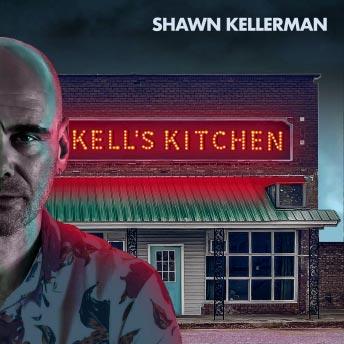
1. SKB - (Kellerman, Todd - Mouhaha Music)
2. Drivin’ - (Kellerman, Todd- Mouhaha Music)
3. Show Me What You Got - (Kellerman, Knight - Mouhaha Music)
4. We Are Blues Men - (ft. Bobby Rush) (Kellerman, Ellis - Mouhaha Music)
5. Together - (Kellerman - Mouhaha Music)
6. Hard Man To Please - (ft. Jason Ricci) - (Kellerman, Knight - Mouhaha Music)
7. Bad Mamma Jamma - (Kellerman, Kellerman - Mouhaha Music)
8. Down By The River - (ft. Noah Allard) - (Kellerman - Mouhaha Music)
9. Mac & Cheese - (Kellerman, Lawrence - Mouhaha Music)
10. You’re Gonna Learn From This One (ft. Jason Ricci) - (Kellerman, Ricci - Mouhaha Music)
11. JIG JIGGITY - (Kellerman - Mouhaha Music)
12. Runnin’ Back To Saskatoon – (ft. Jason Ricci) - (Burton Cummings, Kurt Winter - BMG)
13. In A World Of Blues - (Kellerman, Thomas - Mouhaha Music)
14. Living Off the Love You Give - (Homer Banks, Raymond Jackson - Irving Music)
Shawn Kellerman - Guitar, Vocals, Bass
Van Romaine - Drums (2,3,4,5,6,7,8,9,10,11,13)
Carlton Campbell - Drums (1)
Mike Rajna - Drums (12)
Andrew ‘Blaze’ Thomas - Drums (14)
Terry Richardson - Bass (1,2,3)
Bobby Rush - Vocals & Harmonica (4)
Jason Ricci - Harmonica (6,10,12)
Sax - Dave Wiffen (11,14)
Trumpet - Ray Podhornik (11 14)
Lance Anderson - Hammond B3, Clavinet, Wurlitzer (1,3,4,5,7,9,13)
Matt Weidinger - Hammond B3 (8) Piano (12)
Lucky Peterson - Hammond B3 (14)
Cory Williams - Acoustic Guitar (8)
Dominic DiGravio - Electric Piano, Clav & Synth Programming (11)
Miku Graham - Vocals (1)
Saidah Baba Talibah - Vocals (1)
Emily Fennell - Vocals (1, 2, 3, 6)
Meghan Parnell - Vocals (1, 2, 3, 6)
Noah Allard - Lead Vocal (8) other vocals on (2,5,7,13,14)
Jon Knight - Vocals (3,12)
Shannon Kellerman - Voiceover (2)
ZOOM - Vocals (9)
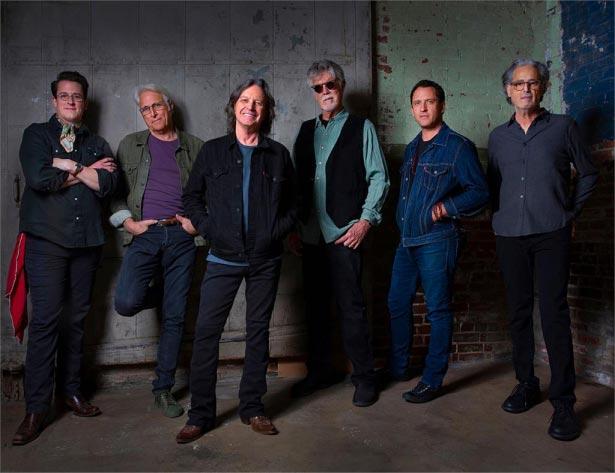
The legendary Nitty Gritty Dirt Band is gearing up to bid adieu to their multi-city touring days with their farewell tour, aptly named “All the Good Times.” Known for their iconic Americana and folk-rock sound that has resonated through the decades, the band has announced their final tour dates, including a stop at Houston’s renowned.
With a career spanning nearly six decades, the Nitty Gritty Dirt Band has left an indelible mark on the music industry with hits like “Mr. Bojangles,” “Fishin’ In The Dark,” and “An American Dream.” Their farewell tour marks the end of an era for a band that has been a pillar of American country and roots music.
“All The Good Times” tour will kick off on March 21, 2024, promising fans a
nostalgic journey through the band’s illustrious career. While it may be the end of extensive touring for the Dirt Band, fans can take solace in knowing that it’s not a permanent goodbye. However, it will mark the conclusion of the group’s extensive travels and multi-city runs that have defined their legacy.
Reflecting on their journey, the band expressed gratitude to their loyal fanbase, acknowledging the profound connection they’ve shared over the years. From their humble beginnings as a jug band in Southern California to their breakthrough with “Uncle Charlie & His Dog Teddy” and the timeless hit “Mr. Bojangles,” the Nitty Gritty Dirt Band has remained true to their roots while carving out a place in music history.
One of the defining moments of their
career was the acclaimed album “Will the Circle Be Unbroken,” where the band collaborated with legends like Earl Scruggs, Roy Acuff, and Doc Watson, solidifying their status as icons in American music. Both “Mr. Bojangles” and “Will the Circle Be Unbroken” have been honored with induction into the Grammy Hall of Fame, cementing their legacy for generations to come.
As the Nitty Gritty Dirt Band embarks on their farewell tour, they invite fans to join them in celebrating “All the Good Times” and the remarkable journey they’ve shared. While the road ahead may lead to new adventures, their music will continue to serve as a testament to the enduring spirit of Americana and folk-rock.
continued on next page
(continued from previous page)
In the late 1960s, amidst a shifting musical landscape, emerged a genre that blended country twang with rock flair, appealing to a younger audience. Among the bands embodying this fusion was the Nitty Gritty Dirt Band, whose career spanned decades with a firm commitment to their roots.
Originating in Southern California in the early 1960s, Jeff Hanna and Bruce Kunkel, high school friends turned musical collaborators, formed the nucleus of what would become the Nitty Gritty Dirt Band. Their journey began modestly, playing local gigs as the New Coast Two until they expanded their lineup, drawing in likeminded musicians from McCabe’s Guitar Shop.
Clad in retro-style attire, the band quickly gained traction in California’s folk and rock circles. Despite lineup changes and creative differences, they secured a record deal and released their debut album in 1967, followed by “Ricochet” later that year. Though the albums received critical praise, commercial success remained elusive.
The departure of Bruce Kunkel marked a turning point, with Chris Darrow stepping in to fill the void. The band’s sound continued to evolve, culminating in their breakthrough hit “Mr. Bojangles” in 1970 and the acclaimed “Will the Circle Be Unbroken” in 1972, which celebrated the pioneers of country music.
Throughout the 1980s, the Nitty Gritty Dirt Band enjoyed success on the country charts with hits like “Dance Little Jean.” Despite fluctuations in mainstream popularity, they remained true to their musical roots, transitioning back to a more traditional style in the 1990s and 2000s.
With Chris Darrow now part of the lineup, the Nitty Gritty Dirt Band ventured into new musical territories, infusing their sound with drums and electric instruments for their subsequent albums, “Rare Junk” (1968) and “Alive!” (1969), the latter being a live recording capturing their vibrant stage presence. Additionally, the band dipped their toes into acting, securing small roles in the 1970 western musical “Paint Your Wagon.” Notably, they accompanied lead actor Lee Marvin on the song “Hand Me Down That Can o’ Beans,” featured on the film’s soundtrack.
Following their stint in film, the band made a geographical shift, relocating to Aspen, Colorado, where they embraced a
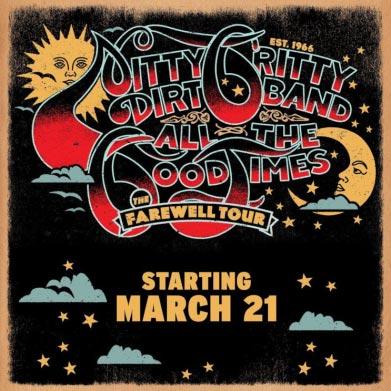
more organic sound inspired by bluegrass and classic string band music. This transition was evident in their 1970 album “Uncle Charlie & His Dog Teddy,” which included a rendition of Jerry Jeff Walker’s “Mr. Bojangles.” Surprisingly, the song became a hit, reaching number nine on the singles chart, marking a significant milestone for the band.
By 1971, changes within the lineup saw Ralph Barr and Chris Darrow departing, leading the band to move forward as a quintet with the addition of Jimmy Ibbotson. Around this time, Liberty Records merged with United Artists Records, providing a new platform for the release of their album “All The Good Times” in 1971.
In a bold move, the Nitty Gritty Dirt Band ventured to Nashville in 1972 to embark on a unique project—an album dedicated to classic country and bluegrass tunes. “Will The Circle Be Unbroken” featured collaborations with legendary artists such as Mother Maybelle Carter, Roy Acuff, and Earl Scruggs, earning widespread acclaim and solidifying their status in the realm of roots music.
Their exploration of country influences continued with 1974’s “Stars & Stripes Forever,” which showcased a four-piece lineup after Les Thompson’s departure. The band’s versatility was evident as they headlined a bluegrass festival and opened for rock icons Aerosmith in the same week.
In subsequent years, lineup changes continued, with John Cable and Jackie Clark joining the fold. In 1976, the band made history as the first American group to tour the Soviet Union, garnering international attention and performing for millions of viewers in a televised show. The release of the “Best Of” album “Dirt, Silver & Gold” in the same year served as a retrospective of their illustrious career up to that point.
In 1978, the group underwent a transformation, infusing their sound with a touch of soft rock and simplifying their name to the Dirt Band. Their self-titled album, “The Dirt Band,” released that year, showcased a revamped lineup featuring Jeff Hanna, Jimmie Fadden, and John McEuen, alongside multi-instrumentalist Al Garth, bassist Richard Hathaway, and drummer Merel Bregante.
During this period, the band had a surprise hit single, contributing to Steve Martin’s novelty track “King Tut” under the pseudonym the Toot Uncommons. This collaboration was facilitated by their longtime manager and producer, William E. McEuen, who also played a pivotal role in guiding Martin’s comedy career to success.
continued on next page
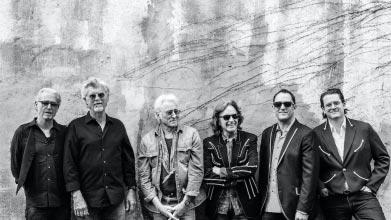
(continued from previous page)
Continuing under the moniker the Dirt Band, their 1979 album “An American Dream” yielded a pop hit with the title track, featuring a guest appearance by Linda Ronstadt, reaching number 13 on the Hot 100 chart. Their follow-up album, “Make a Little Magic” in 1980, produced another pop hit with “Make a Little Magic,” featuring vocals from Nicolette Larson. This period also marked the introduction of Bob Carpenter on keyboards and accordion.
With EMI’s acquisition of United Artists Records, the Dirt Band found themselves back under the Liberty Records banner for their 1981 release “Jealousy.” However, they returned to their roots and reverted to their original name, the Nitty Gritty Dirt Band, welcoming back Jimmy Ibbotson in time for the recording of 1982’s “Let’s Go.”
The album’s lead single, “Shot Full of Love,” made waves in the country music scene, peaking at number 19 on the country charts. Their subsequent single, “Dance Little Jean,” proved even more successful, reaching number nine on the country charts, solidifying the band’s enduring presence in the country music landscape.
In 1978, under the banner of the Dirt Band, the group released their final album with Liberty Records, marking the end of an era. Soon after, they secured a recording deal with Warner Bros. Records, setting the stage for a new chapter in their musical journey.
Their inaugural release with Warner Bros., “Plain Dirt Fashion” in 1984, seamlessly merged their rootsy sensibilities with mainstream country production. This winning formula yielded two country hits: “Long Hard Road (The Sharecropper’s Dream)” and “I Love Only You,” propelling the album into the country Top Ten and signaling the start of a successful streak for the band in the country music scene.
Over the next few years, the Nitty Gritty Dirt Band continued to dominate the country charts with albums like “Partners, Brothers and Friends” (1985), “Hold On” (1987), and “Workin’ Band” (1988), collectively producing nine Top Ten country hits. Despite the departure of John McEuen in 1988, the band remained resilient, with Bernie Leadon stepping in for the “Workin’ Band” sessions.
Transitioning to Universal Records for
their 1990 release “Will the Circle Be Unbroken, Vol. 2,” the band reaffirmed their reverence for traditional country music, collaborating with iconic artists such as the Carter Family and Johnny Cash. Subsequent albums like “The Rest of the Dream” (1991) and “Not Fade Away” (1992) showcased their versatility and continued dedication to their craft.
In 1998, the band released “Bang Bang Bang” before embarking on a new millennium filled with notable milestones. John McEuen rejoined the group for the recording of “Will the Circle Be Unbroken, Vol. 3” in 2002, followed by the release of “Welcome to Woody Creek” in 2004, which earned them a Grammy Award for their performance of “Earl’s Breakdown.”
Their 50th anniversary in 2015 was celebrated with a special concert at Nashville’s Ryman Auditorium, featuring appearances from former members and esteemed guests. This milestone was immortalized with the release of “Circlin’ Back: Celebrating 50 Years” in 2016.
As the years progressed, the band continued to evolve, weathering lineup changes and exploring new musical avenues. Their latest endeavor, “Dirt Does Dylan,” released in March 2022, pays homage to one of their earliest influences, Bob Dylan, showcasing their enduring passion for music and their remarkable journey spanning over five decades.
March 21 – Bowling Green, Ky. – SKyPAC – Main Hall
March 22 – Bloomington, Ill. – Bloomington Center For The Performing Arts
March 23 – Mount Vernon, Ky. – Renfro Valley Entertainment Center
March 24 – Marietta, Ohio – Peoples Bank Theatre
March 28 – Odessa, Texas – The Ector Theatre
March 29 – Abilene, Texas – Outlaws and Legends Music Festival
March 30 – Houston, Texas – Arena Theatre
April 25 – Shreveport, La. – The Strand Theatre
April 28 – Oxford, Ala. – Oxford Performing Arts Center
May 9 – Indianapolis, Ind. – Murat Theatre
May 10 – Harris, Mich. – Island Resort & Casino
May 11 – Harris, Mich. – Island Resort & Casino
May 12 – Joliet, Ill. – Rialto Square Theatre
May 17 – Raleigh, N.C. – Coastal Credit Union Music Park at Walnut Creek*
May 18 – Bristow, Va. – Jiffy Lube Live*
May 19 – Knoxville, Tenn. – Tennessee Theatre
June 21 – Mankato, Minn. – Vetter Stone Amphitheater
June 22 – Cedar Rapids, Iowa – McGrath Amphitheatre
June 23 – Bayfield, Wisc. – Lake Superior Big Top Chautauqua
June 27 – Sioux Falls, S.D. – Alliance Center
June 28 – Mahnomen, Minn. – Shooting Star Casino Hotel & Event Center
June 29 – Bismarck, N.D. – Belle Mehus Auditorium
June 30 – Dauphin, MB, Canada – Dauphin’s Countryfest
July 11 – Mayetta, Kan. – Prairie Band Casino & Resort – Great Lakes Ballroom
July 12 – Jefferson City, Mo. – Capital Region MU Health Care Amphitheater
July 13 – Newkirk, OK – 7 Clans First Council Casino
July 25 – Lubbock, TX – The Buddy Holly Hall of Performing Arts and Sciences – Helen
DeVitt Jones Theater
July 26 – New Braunfels, TX – Whitewater Amphitheater#
July 27 – Fort Worth, TX – Bass Performance Hall
July 28 – Amarillo, TX – Globe-News Center For The Performing Arts
September 14 – Kansas City, MO – T-Mobile Center *
* with Hank Williams, Jr.
# with Jason Isbell & The 400 Unit
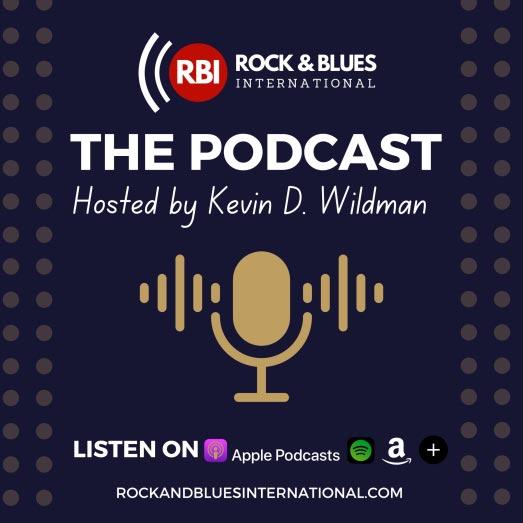
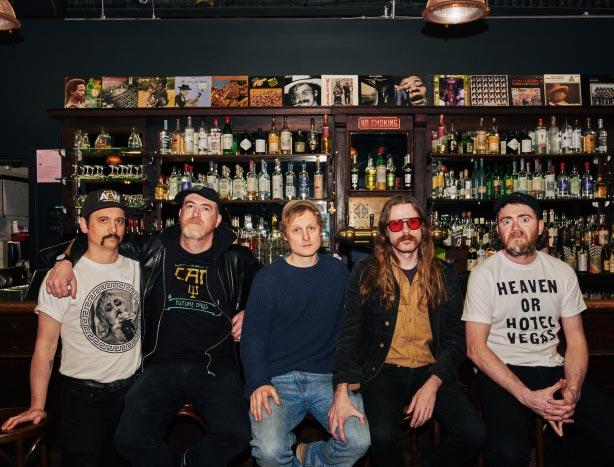
Newcastle, UK-based powerhouse, Pigs Pigs Pigs Pigs Pigs Pigs Pigs, is set to unleash an electrifying sonic experience with their forthcoming Record Store Day exclusive vinyl release of their explosive KEXP session. This momentous recording, captured during the band’s triumphant 2023 US tour supporting their acclaimed album ‘Land Of Sleeper’, offers listeners a front-row seat to the raw energy and unbridled power of Pigs Pigs Pigs Pigs Pigs Pigs Pigs’ unparalleled performance style.
Scheduled for release on April 20th at participating Record Store Day retailers via Missing Piece Records, this limited edition red vinyl promises to transport fans into the heart of Pigs Pigs Pigs Pigs Pigs Pigs Pigs’ sonic universe. From the blistering riffs to the thunderous rhythms, ‘Live at KEXP’ encapsulates the band’s ferocious live presence in its purest form.
Reflecting on the experience, KEXP DJ Troy Nelson shares his awe, stating, “Sitting five feet away from this brutally beautiful performance, I realized quickly that I had the best seat to the best show in the World in that moment. Pigs Pigs Pigs Pigs Pigs Pigs Pigs simply Rock Rock Rock Rock Rock Rock Rock.”
For guitarist Adam Ian Sykes, the KEXP session was a dream come true. “KEXP was a real bucket list moment for us,” he notes. “It was such a pleasure to be invited to record a session, we hope you enjoy it as much as we did.”
The release of ‘Live at KEXP’ comes hot on the heels of Pigs Pigs Pigs Pigs Pigs Pigs Pigs’ critically acclaimed album ‘Land of Sleeper’, which has garnered praise from the likes of Pitchfork, Clash, The Line of Best Fit, and more. With tracks like the coruscating “Ultimate Hammer” and the electrifying “Mr. Medicine”, the album showcases the band’s penchant for blending classic riffage with offbeat chaos, resulting in a sonic journey unlike any other.
‘Land of Sleeper’, the band’s fourth studio album, follows the success of 2020’s ‘Viscerals’, hailed by Under

The Radar as a “sense bludgeoning amalgamation of metal, punk, and experimental noise at its most brutal.” Louder declared it “Utterly enthralling,” while Kerrang praised its fusion of heavyweights like Black Sabbath and Motörhead with the wryly abstract humor of IDLES.
The ‘Live at KEXP’ tracklist includes fan favorites such as “Rubbernecker,” “Big Rig,” “Mr. Medicine,” and the aforementioned “Ultimate Hammer”. Each track is a testament to Pigs Pigs Pigs Pigs Pigs Pigs Pigs’ unrivaled ability to captivate audiences with their ferocious energy and relentless passion for their craft.
As Pigs Pigs Pigs Pigs Pigs Pigs Pigs prepares to embark on their North American tour this February and May, fans can rest assured that the band’s live performances will continue to set the bar for explosive, uncompromising rock music. So mark your calendars, secure
your copy of ‘Live at KEXP’, and prepare to be swept away by the sonic onslaught of Pigs Pigs Pigs Pigs Pigs Pigs Pigs.
Live at KEXP Tracklist:
01. Rubbernecker
02. Big Rig
03. Mr Medicine
04. Ultimate Hammer
North American Tour Dates: 05/03/24 - Atlanta, GAShaky Knees Festival
05/04/24 - Asheville, NC - Eulogy
05/06/24 - Baltimore, MDMetro Gallery
05/07/24 - Pittsburgh, PABottlerocket Social Hall
05/08/24 - Columbus, OHAce of Cups
05/09/24 - Indianapolis, IN - HI-FI
05/11/24 - Nashville, TN - The Blue Room at Third Man Records

“Capricorn” and “Gen-X Cops” Available Now
Watch the video for “Capricorn” here at
https://youtu.be/8lCmyFCj580
Watch the video for “Gen-X-Cops” at
https://youtu.be/kW9Qk00693c ONLY GOD WAS ABOVE USOutApril 5
Pre-order here:
By Troy WilsonAfter culminating a five-year wait with the recent announcement of their latest album, “Only God Was Above Us,” Ezra Koenig, Chris Baio, and Chris Tomson, collectively known as Vampire Weekend, have now delivered a double portion of excitement with the release of two tantalizing tracks: “Capricorn” and “Gen-X Cops.” These songs serve as the initial tastes of their highly anticipated album, set to hit the shelves on April 5 via Columbia Records. Fans can already
https://vampireweekend.lnk.to/OGWAU/vinyl1
pre-order the album, eagerly securing their copy to be among the first to experience the band’s latest musical offering.
In tandem with this exciting news, Vampire Weekend has also unveiled plans for a comprehensive North American headline tour, meticulously produced by Live Nation. The expansive 39-date journey will take the band through a multitude of cities across the United States, including notable stops in Texas, Utah, Louisiana, Montana,
Oregon, Arizona, California, Nebraska, Illinois, Indiana, North Carolina, as well as ventures into Canada and Spain. This tour promises to bring Vampire Weekend’s electrifying performances to fans far and wide, solidifying their status as one of indie rock’s most celebrated acts.
To commemorate the impending release of their fifth album, “Only God Was Above Us,” Vampire Weekend has continued on next page
(continued from previous page)
scheduled a special live performance in Austin, TX. This momentous event will coincide with the historic total eclipse on April 8, taking place at the iconic Moody Amphitheater at 12 p.m. The band’s performance under the celestial spectacle is sure to be an unforgettable experience for attendees, marking a fitting celebration for the culmination of years of anticipation.
Diving into the heart of the album, the recently released pair of advance tracks, “Capricorn” and “Gen-X Cops,” offer listeners a glimpse into the rich tapestry of sound that awaits on “Only God Was Above Us.” “Capricorn,” penned by Ezra Koenig and produced by Ariel Rechtstaid and Koenig, begins with subtle allure, gradually unfurling into a transcendent chorus characterized by swirling melodies and pulsating rhythms. On the other hand, “Gen-X Cops,” a collaborative effort between Koenig and Chris Tomson, delivers an energetic surge of sound, propelled by a frantic guitar riff and an anthemic refrain that resonates with each generation’s journey of self-discovery and redemption.
These tracks, while distinct in their presentation, are integral components of the cohesive whole that is “Only God Was Above Us,” showcasing the band’s evolution while staying true to their signature style. With each note and lyric, Vampire Weekend invites listeners on a sonic journey that promises to captivate and inspire, solidifying their place at the forefront of contemporary music.
Each of the new tracks is accompanied by a captivating video, crafted around footage of New York City circa 1988, courtesy of Steven Siegel, the esteemed album art photographer for “Only God Was Above Us.” Under the direction of longtime Vampire Weekend creative director Nick Harwood, “Capricorn” offers viewers a mesmerizing visual journey through the late ’80s landscape of New York City, juxtaposing its alluring yet gritty atmosphere with glimpses of modern-day Vampire Weekend.
On the other hand, “Gen-X Cops,” directed by Drew Pearce (known for his work on “The Fall Guy,” “Hotel Artemis,” “Mission: Impossible – Rogue
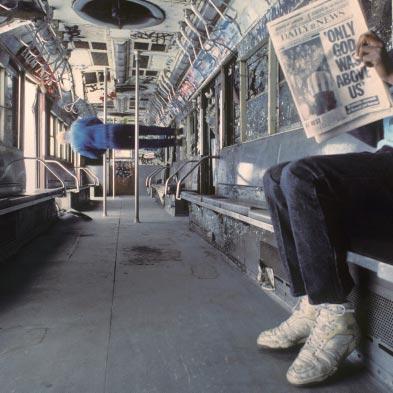
Nation,” and “Iron Man 3”), takes a distinct approach to authenticity. Pearce goes to great lengths to recreate the ambiance of 1988, utilizing the same film stocks employed by Siegel and even tracking down the only authentic 1970s New York subway car on the west coast. Pearce and cinematographer Doug Emmett meticulously research the lighting patterns of 1980s subway tunnels, constructing a rig to emulate them accurately. The video is shot on 8mm and 16mm cameras for maximum precision, ensuring an immersive experience for viewers.
“Only God Was Above Us” is slated for release on April 5 via Columbia Records, available in various formats including digital, CD, standard black vinyl, and limited edition clear vinyl through the band’s webstore. An alternate album cover will also be exclusively available at Independent retailers, offering fans a unique collectible item to treasure.
As anticipation builds for Vampire Weekend’s upcoming tour, support acts have been carefully hand-picked by Koenig, Baio, and Tomson themselves. Each region of the country will enjoy its
own lineup of special guests, many of whom hold local significance and are cherished by the band and fans alike. Notable acts include LA LOM, The English Beat, Voodoo Glow Skulls, Mike Gordon, Christone “Kingfish” Ingram, Ra Ra Riot, Princess featuring Maya Rudolph and Gretchen Lieberum, Cults, a DJ Set By Mark Ronson, Turnstiles, and The Brothers Macklovitch. Fans are encouraged to refer to the tour poster for specific information regarding which acts will appear on which dates.
Blending erudite indie rock with infectious Afro-pop-inspired rhythms and melodies, Vampire Weekend transcended their early acclaim from music bloggers to become chart-topping, Grammy Award-winning icons who shaped the indie music landscape of the late 2000s and 2010s. Their journey began with the release of their eponymous debut album in 2008, setting the stage for their meteoric rise to success. Notably, they achieved a groundbreaking feat as the first indie rock act to have two consecutive albums, 2010’s “Contra” and 2013’s “Modern Vampires of the City,” debut at number one on the Billboard 200 chart.
continued on next page

(continued from previous page)
With each subsequent release, Vampire Weekend’s sonic palette expanded, seamlessly incorporating influences from ska, hip-hop, and ’80s pop, while maintaining their distinctive style. Despite facing the departure of founding member Rostam Batmanglij, the band persevered and delivered some of their most refined and ambitious work to date with 2019’s “Father of the Bride,” which also topped the charts.
The origins of Vampire Weekend trace back to Columbia University, where vocalist/guitarist Ezra Koenig, drummer Chris Baio, multi-instrumentalist Rostam Batmanglij, and bassist Chris Tomson crossed paths while completing their studies. Formed in early 2006, the band emerged from Koenig and Tomson’s hip-hop collaboration, L’Homme Run, taking their moniker from a short film Koenig had worked on during his college years. Initially, they honed their craft by performing at university literary societies and parties,
gradually garnering attention and acclaim.
Their breakthrough came with the release of their self-titled EP and singles like “Mansard Roof” and “A-Punk/Cape Cod Kwassa Kwassa,” which received widespread praise from music blogs. This newfound recognition led to appearances at prestigious events like the CMJ Music Marathon, ultimately catching the attention of XL Recordings, who signed the band. Reissued singles and a meticulously crafted debut album followed, showcasing Vampire Weekend’s penchant for sophisticated lyricism and infectious melodies.
Throughout their career, Vampire Weekend has consistently pushed boundaries and defied expectations, evolving into one of the most influential bands of their generation. Their ability to seamlessly blend diverse musical influences while staying true to their unique aesthetic has earned them a
dedicated fanbase and critical acclaim, solidifying their status as icons of contemporary music.
In January 2008, Vampire Weekend burst onto the indie music scene with their eponymous debut album, swiftly climbing the ranks to become one of the year’s most sought-after releases. Not only did the album debut within the Top 20 of both the American and U.K. album charts, but its singles “A-Punk” and “Oxford Comma” also made waves, charting in both countries. Embarking on an extensive tour that spanned nearly two years, the band captivated audiences worldwide, while Rostam Batmanglij, a key member of the group, garnered further acclaim with the release of an album with his electro side project, Discovery, alongside Ra Ra Riot’s Wes Miles.
Amidst their touring commitments, continued on next page
Vampire Weekend returned to the studio to craft their highly anticipated sophomore album, “Contra,” released in January 2010. Featuring hit singles such as “Horchata” and “Cousins,” the album made an impressive debut atop the Billboard 200 chart and earned a Grammy nomination for Best Alternative Music Album, solidifying the band’s status as indie rock icons.
In late 2011, the band reconvened to work on their third full-length album, collaborating with producer Ariel Rechtshaid. Recorded at various studios including New York’s SlowDeath Studios and Hollywood’s Vox Recording Studios, as well as Batmanglij’s own New York apartment, the resulting album, “Modern Vampires of the City,” was released in May 2013. Mirroring the success of “Contra,” the album debuted at number one on the Billboard 200, making Vampire Weekend the first rock band on an independent label to achieve this feat with two consecutive albums. Furthermore, “Modern Vampires of the City” earned the Grammy Award for Best Alternative Album in 2014, cementing the band’s reputation as trailblazers in the alternative music scene.
In early 2016, Batmanglij announced his departure from Vampire Weekend, although he expressed his intent to continue collaborating with the band in the future. Undeterred, the remaining members embarked on the creation of their fourth studio album, enlisting the talents of producers such as Ariel Rechtshaid, Justin Meldal-Johnsen, Danielle Haim, and Dirty Projectors’ Dave Longstreth. The culmination of their efforts arrived in May 2019 with the release of “Father of the Bride,” a double album under the Columbia Records imprint Spring Snow. Once again, Vampire Weekend achieved critical and commercial success, as “Father of the Bride” topped the Billboard 200 and received nominations for Album of the Year and Best Alternative Music Album at the 2020 Grammy Awards.
The resulting epic, titled “40:42,” was released in 2021, showcasing the band’s enduring creativity and commitment to pushing artistic boundaries.
As fans eagerly await the arrival of “Only God Was Above Us” and the forthcoming tour, Vampire Weekend continues to push the boundaries of their
craft, cementing their legacy as one of the most innovative and influential bands of their generation. With their latest album and tour, the band reaffirms their commitment to artistic excellence, inviting audiences around the world to join them on a musical adventure unlike any other.
Mon April 08 - Austin, TX - Moody Amphitheater (Solar Eclipse) - SOLD OUT
Sat April 27 - New Orleans, LA - New Orleans Jazz & Heritage Festival*
Fri May 10 - Salt Lake City, UT - Kilby Block Party*
Thu May 30 - Barcelona, Espana - Primavera Sound*
Thu Jun 06 - Houston, TX - 713 Music Hall
Fri Jun 07 - Irving, TX - The Pavilion at Toyota Music Factory
Sun Jun 09 - Phoenix, AZ - Arizona Financial Theatre
Mon Jun 10 - San Diego, CA - Cal Coast Credit Union Open Air Theatre
Wed Jun 12 - Los Angeles, CA - Hollywood Bowl
Sat Jun 15 - Berkeley, CA - The Greek Theatre at U.C. Berkeley^
Sun Jun 16 - Berkeley, CA - The Greek Theatre at U.C. Berkeley (Matinee Show)^
Tue Jun 18 - Burnaby, BC - Deer Lake Park
Wed Jun 19 - Bend, OR - Hayden Homes Amphitheater
Thu Jun 20 - Seattle, WA - Climate Pledge Arena
Sat Jun 22 - Bonner, MT - KettleHouse Amphitheater
Sun Jun 23 - Bonner, MT - KettleHouse Amphitheater (Matinee Show)
Fri Jul 19 - Morrison, CO - Red Rocks Amphitheatre
Mon Jul 22 - Kansas City, MO - Starlight Theatre
Tue Jul 23 - Lincoln, NE - Pinewood Bowl Theater^
Thu Jul 25 - Maryland Heights, MO - Saint Louis Music Park
Fri Jul 26 - Chicago, IL - Huntington Bank Pavilion at Northerly Island
Sat Jul 27 - Chicago, IL - Huntington Bank Pavilion at Northerly Island
Tue Jul 30 - Minneapolis, MN - The Armory
Thu Aug 01 - Milwaukee, WI - BMO Pavilion
Sat Aug 3 - St. Charles, IA - Hinterland*
Thu Sep 19 - Cuyahoga Falls, OH - Blossom Music Center
Fri Sep 20 - Cincinnati, OH - The ICON Festival Stage at Smale Park
Sat Sep 21 - Indianapolis, IN - Everwise Amphitheater at White River State Park
Mon Sep 23 - Rochester Hills, MI - Meadow Brook Amphitheatre
Tue Sep 24 - Toronto, ON - Budweiser Stage
Wed Sep 25 - Laval, QC - Place Bell
Fri Sep 27 - Boston, MA - TD Garden
Sat Sep 28 - Philadelphia, PA - TD Pavilion at The Mann
Mon Sep 30 - Washington, DC - The Anthem
Wed Oct 02 - Charlottesville, VA - Ting Pavilion
Sat Oct 05 - New York, NY - Madison Square Garden
Sun Oct 06 - New York, NY - Madison Square Garden (Matinee Show)
Tue Oct 08 - Wilmington, NC - Live Oak Bank Pavilion
Wed Oct 09 - Raleigh, NC - Red Hat Amphitheater
Continuing their innovative approach to music, Vampire Weekend enlisted jazz saxophonist Sam Gendel and jam band Goose to reimagine their track “2021” from “Father of the Bride.”
Fri Oct 11 - Nashville, TN - Ascend Amphitheater
Sat Oct 12 - Atlanta, GA - Cadence Bank Amphitheatre at Chastain Park
Sun Oct 13 - Asheville, NC - Rabbit Rabbit
Tue Oct 15 - St. Augustine, FL - St. Augustine Amphitheatre
Thu Oct 17 - Austin, TX - Moody Center
*Festival date
^Non-Live Nation date
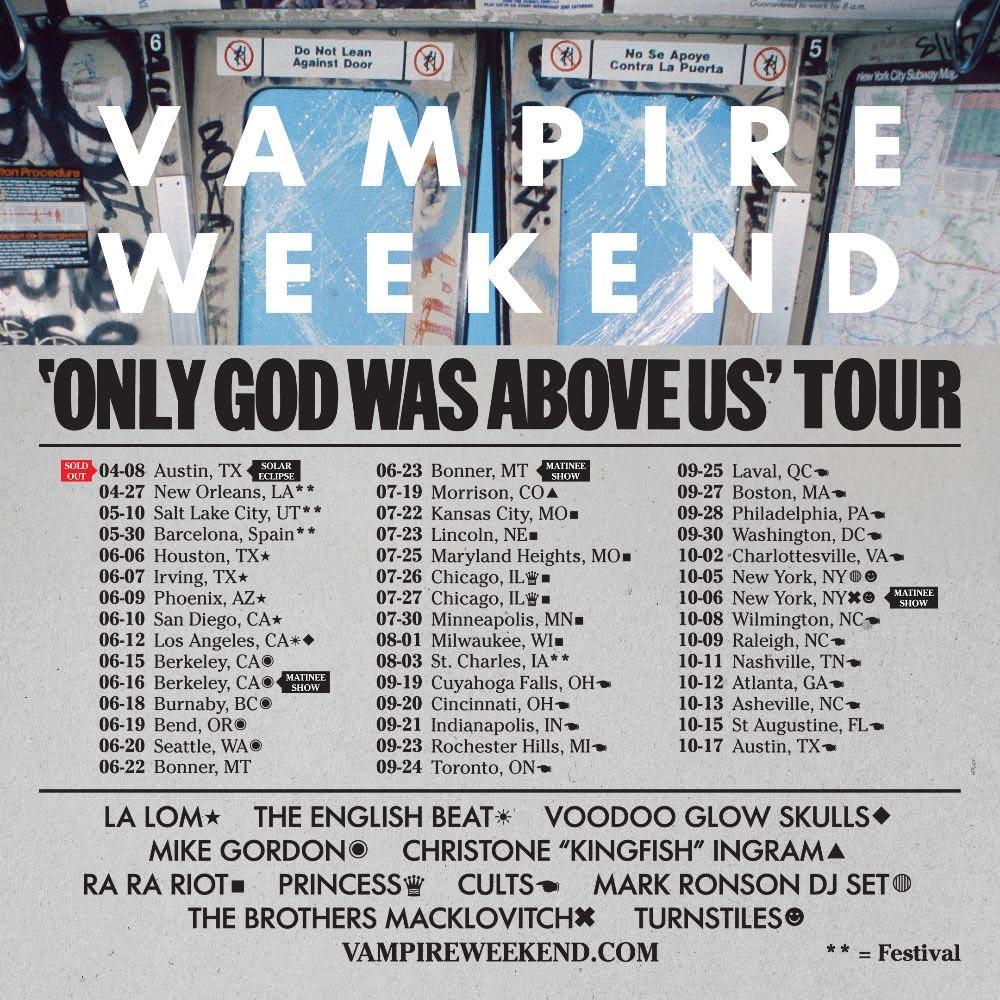


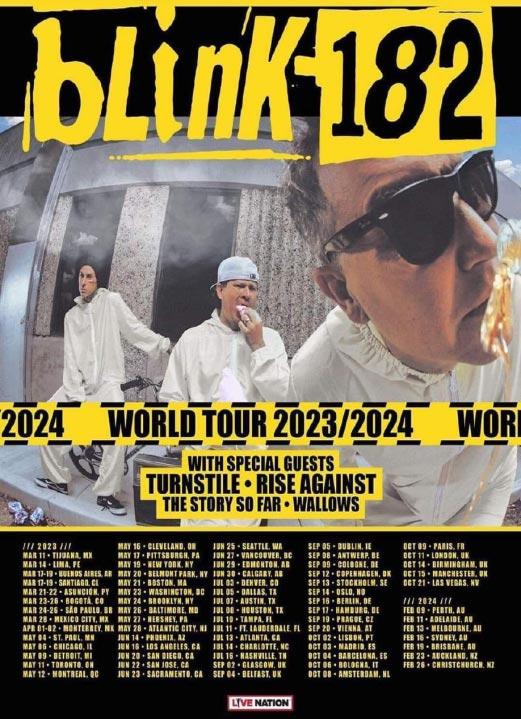
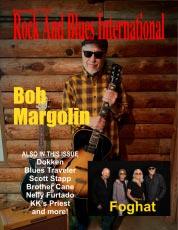
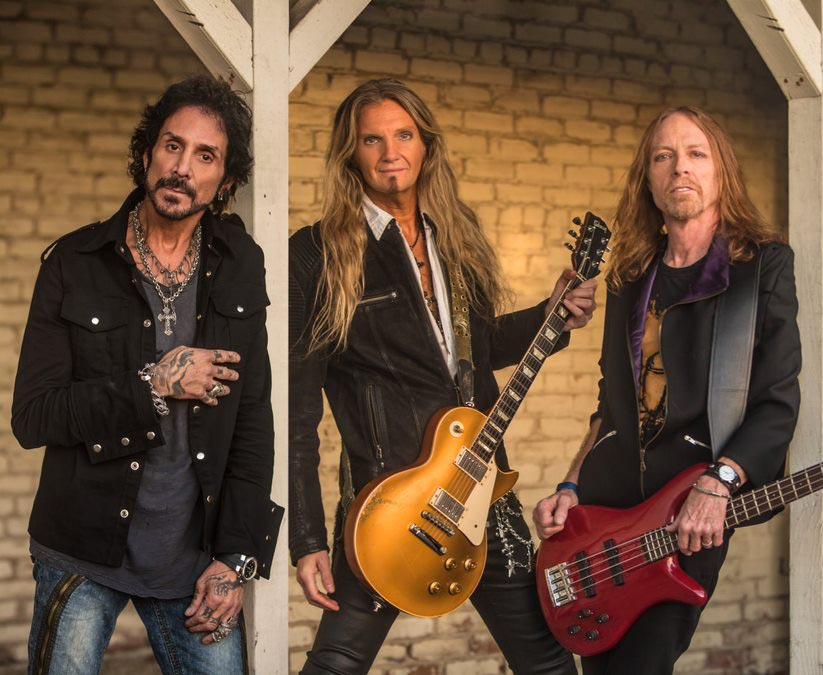
(continued from previous page)
By Nathan PughRevolution Saints, the powerhouse melodic rock band spearheaded by Journey’s versatile vocalist and drummer Deen Castronovo, has unveiled their latest single, “Fall On My Knees,” marking the third release from their highly anticipated album ‘Against the Winds.’ Accompanying the track is a visually captivating music video, showcasing the band’s dynamic performance and the infectious energy of the song.
Teaming up with esteemed musicians bassist Jeff Pilson (known for his work with Foreigner and formerly of Dokken) and guitarist Joel Hoekstra (of Whitesnake and Night Ranger), Revolution Saints introduces its new incarnation, aptly dubbed Revolution Saints MKII, aimed at reigniting the passion for melodic rock.
‘Against the Winds,’ predominantly produced and composed by Alessandro Del Vecchio (who also lends his talents on keyboards and background vocals), delivers precisely what fans have come to expect: mesmerizing vocals, spellbinding melodies, and hooks that linger long after the music fades.
This latest album sees Revolution Saints embracing a heightened sense of cohesion, energy, and emotion, solidifying their position as frontrunners in the genre. ‘Against the Winds’ serves as a testament to their enduring prowess and reaffirms their status as genre giants.
The inception of Revolution Saints was the brainchild of Serafino Perugino, President and Head of A&R at Frontiers Records, with the aim of showcasing the exceptional vocal abilities of Deen Castronovo. While Castronovo had long been revered as a drummer, his remarkable vocal talents, showcased during his tenure with Journey, garnered wide-
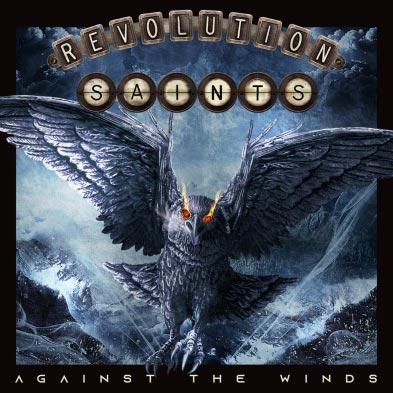
spread acclaim.
For their initial three albums— ’Revolution Saints,’ ‘Light In The Dark,’ and ‘Rise’—Deen was joined by bassist/ vocalist Jack Blades (Night Ranger) and guitarist Doug Aldrich (ex-Whitesnake, DIO). Produced by Alessandro Del Vecchio, these albums reignited the classic melodic rock sound of the ’80s and ’90s, captivating fans old and new with their uplifting vocals, soaring melodies, and irresistible hooks.
Now, with Revolution Saints MKII, a new chapter unfolds. Buoyed by his recent return to Journey and fueled by renewed inspiration, Castronovo was eager to unleash his vocal prowess once more. While filling the shoes of Blades and Aldrich was no small feat, the band found the perfect fit in Joel Hoekstra and Jeff Pilson.
Joel Hoekstra, renowned for his work with Whitesnake, Trans-Siberian Orchestra, and his solo project Joel Hoekstra’s 13, brings his unparalleled guitar skills and versatility to the table.
Jeff Pilson, a seasoned musician with stints in Foreigner, Black Swan, and The End Machine, as well as his tenure in Dokken, adds his own brand of musical finesse to the mix.
With Alessandro Del Vecchio at the production helm once more, Revolution Saints MKII is poised to carry the torch forward, delivering a fresh take on melodic rock while staying true to the essence of the genre.
Revolution Saints MKII is comprised of: Deen Castronovo, Jeff Pilson, Joel Hoekstra, and Alessandro Del Vecchio
‘Against the Winds’ Track List:
1. Against the Winds
2. Changing My Mind
3. Fall on My Knees
4. Can’t End It Right Now
5. Lost in Damnation
6. Will I See You Again
7. Show Me Your Light
8. Save All That Remains
9. Been Said and Done
10. Diving Wings
11. No Turning Back
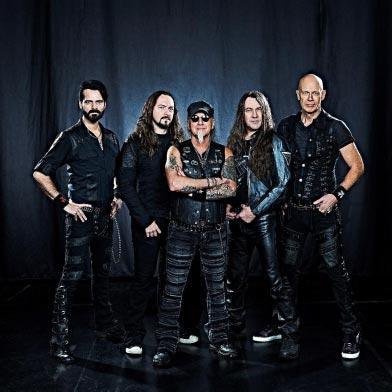
German heavy metal legends ACCEPT have announced their highly anticipated new studio album, “Humanoid,” set to unleash its sonic fury on April 26, 2024, via Napalm Records. This announcement comes with the promise of a thrilling sneak peek, as the band dropped the album’s inaugural single alongside an accompanying video on February 28.
The forthcoming release, “Humanoid,” sees ACCEPT once again teaming up with the esteemed heavy metal producer Andy Sneap, whose mastery in the studio
is synonymous with the band’s signature sound. With Sneap at the helm for production, recording, mixing, and mastering, “Humanoid” is poised to deliver an electrifying listening experience that stays true to the band’s iconic heavy metal roots.
To engage fans in the buildup to the album’s release, ACCEPT has launched an interactive website, offering enthusiasts an immersive experience where they can interact with a robot featured on the album cover. By pre-saving “Humanoid” now, fans gain exclusive access to the website, where they can delve into various aspects of the album and explore its sonic land-
scape.
Alongside the album announcement, ACCEPT has revealed an extensive European headline tour, spanning across autumn 2024 with over 20 shows planned throughout the continent. Additionally, the band is gearing up to grace the stages of some of the world’s most renowned rock and metal festivals this summer, including iconic events like Wacken Open Air and Hellfest. With tickets for the European tour dates now available, fans have the opportunity to secure their spots for what promises to be an unforgettable live experience.
Wolf Hoffmann, the legendary guitarist of ACCEPT, shared his excitement for “Humanoid,” emphasizing the album’s energy and the joy of collaborating once again with Sneap. “The album has great energy throughout! Working with the best metal producer, Andy Sneap, was once again a lot of fun! We are a great team,” Hoffmann enthused. He expressed the band’s collective enthusiasm for the new album and their eagerness to perform it live, expressing hope that fans will embrace it as much as they do.
Formed in 1976, ACCEPT has solidified their place as one of Germany’s pioneering heavy metal bands, influencing generations of musicians and earning international acclaim. Their previous album, “Too Mean To Die” (2022), soared to the top of the charts, peaking at #2 on the Official German Album Charts and amassing over a million monthly Spotify listeners.
The current lineup of ACCEPT, featuring Wolf Hoffmann on guitar, Mark Tornillo on vocals, Uwe Lulis on guitar, Martin Motnik on bass, and Christopher Williams on drums, stands ready to unleash the sonic onslaught of “Humanoid.” With this latest offering, ACCEPT reaffirms their status as heavy metal icons, poised to deliver a visceral musical experience that will resonate with fans worldwide.

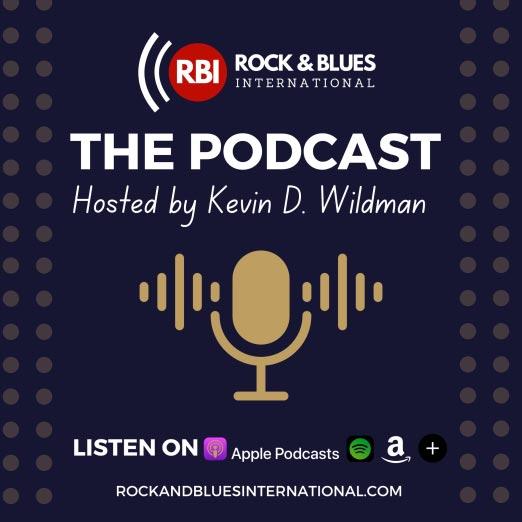
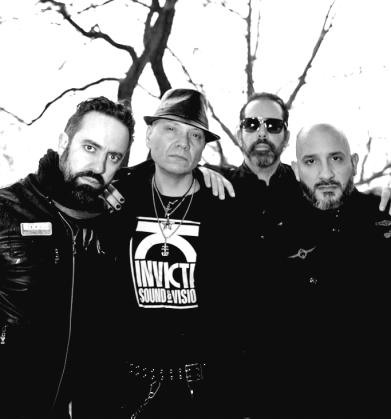
https://ffm.to/xymmpea
https://siriusvoltage.bandcamp.com
D I S C O V E R
Tiktok: https://www.tiktok.com/@siriusvoltage
Instagram: https://www.instagram.com/siriusvoltage
Youtube: https://www.youtube.com/@siriusvoltage
Facebook:
https://www.facebook.com/profile.php?id=61555870265901
By Albert SchwartzIn a thrilling crescendo of musical prowess, Porto, Portugal’s own Sirius Voltage is poised to unleash a seismic wave of rock ‘n’ roll fervor with the announcement of their debut single, “For Your Dreams”, set to hit
the airwaves on February 9th, courtesy of Invicta Sound & Vision. Crafted under the expert guidance of renowned producer Neil Leyton, a longstanding friend of the band and a luminary in the Portuguese glam-punk scene, “For Your Dreams” promises to shake the foundations of the rock’n’roll music scene
worldwide.
With a lineup boasting Pete Marquis on vocals and electric guitars, Dave Luxor on drums, João Guedes on bass guitar, and Drewstone on electric guitar duties, Sirius Voltage is a dynamic force fueled by a wealth of experience and a shared passion for crafting impactful music. Their sound, heavily influenced by the North American and Scandinavian underground rock scenes, is a testament to their eclectic tastes and relentless pursuit of sonic innovation.
Recorded at Canoa Studios in Portugal, “For Your Dreams” is just the beginning of Sirius Voltage’s sonic revolution, paving the way for their eagerly anticipated album slated for release in September 2024. But before fans can feast on the full-length LP, the band will be treating them to a series of four singles exclusively on digital platforms, with the first one scheduled to drop in February 2024. Enthusiasts of punk, rock, and garage genres are urged to crank up the volume and immerse themselves in the adrenaline-fueled sound of Sirius Voltage, setting the stage for what promises to be a monumental album release later this year.
At the helm of Sirius Voltage is Pedro Marques, better known as Pete Marquis, a rock ‘n roll singer-songwriter, vocalist, and guitarist whose musical journey has taken him across the landscapes of Portugal, Spain, the United Kingdom, and Canada. With a lineup comprising Dave Luxor on drums, João Guedes on bass, and Drewstone on the second guitar, the band channels the spirit of rock ‘n roll icons like Ramones, Hanoi Rocks, and Hellacopters, while adding their own unique twist to the genre.
For Marquis, Sirius Voltage represents the culmination of years of musical exploration and creative expression. Prior to forming the band, he ventured into the musical landscape with Silky, a quartet infused with British-pop and glam-rock influences. Subsequently, he founded Jesus Trigger, steering towards a heavier rock sound evocative of Backyard Babies with a touch of urban glam rock aesthetic. Now, with Sirius Voltage, Marquis and his bandmates are poised to usher in a new era of Portuguese Rock’n’Roll, fueled by raw energy and an unbridled passion for their craft.
As the countdown to the release of “For Your Dreams” begins, Sirius Voltage stands on the precipice of greatness, ready to leave an indelible mark on the global music scene. With their infectious energy and electrifying sound, they invite audiences to join them on a journey of sonic exploration and self-discovery. So turn up the volume, and get ready to rock with Sirius Voltage— Portugal’s newest musical sensation.

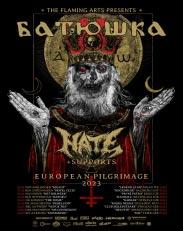
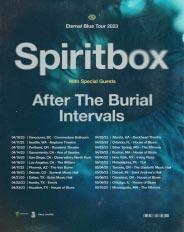

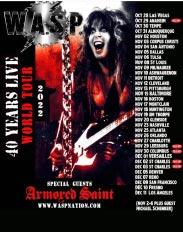
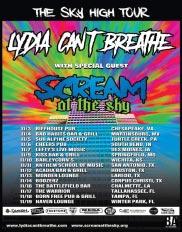
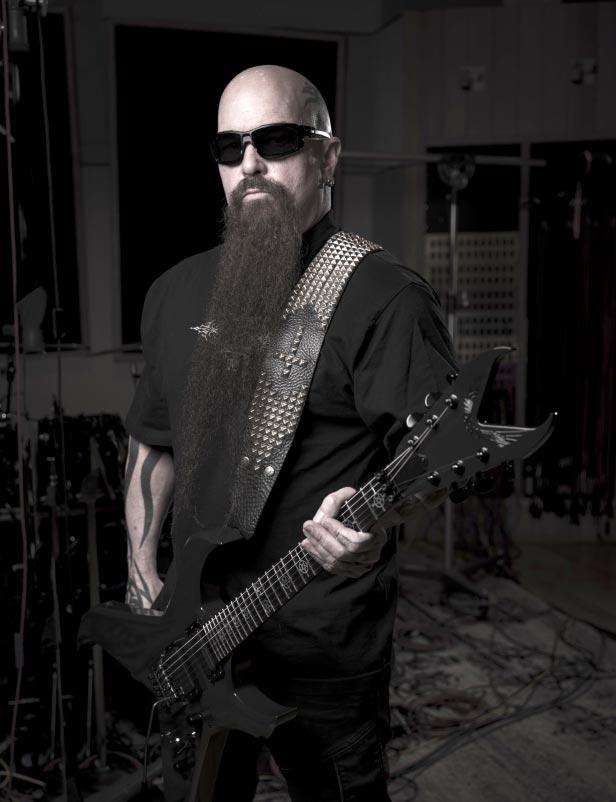
(continued from previous page)
by Johnny GhoulRenowned thrash/punk/metal guitarist and co-founder of Slayer, Kerry King, has officially revealed the imminent release of his debut solo album, titled “From Hell I Rise.” The highly anticipated project is slated to hit the shelves on May 17, 2024, under the Reigning Phoenix Music label.
King, a veteran in the metal scene, made the announcement, expressing his excitement for this new musical journey. “I knew early on that I wasn’t done, and I had no intention of not continuing to play,” shared King, reflecting on the momentous decision to embark on a solo venture.
Initially, the solo endeavor faced delays due to the COVID-19 pandemic, but King persisted and amassed enough material for two full albums. For “From Hell I Rise,” King enlisted an ensemble of exceptional talent, including drummer Paul Bostaph (Slayer), bassist Kyle Sanders (Hellyeah), Phil Demmel (formerly Machine Head) on guitar, and vocalist Mark Osegueda (Death Angel). The album was produced by the accomplished Josh Wilbur, known for his work with Korn, Lamb of God, Avenged Sevenfold, and Bad Religion.
The recording process took place at the iconic Henson Studios in Los Angeles over a span of approximately two weeks, concluding in June of the previous year. Fans can now pre-order the album at Kerry King’s official website.
Josh Wilbur, the producer, commended King’s direct and confident approach during the studio sessions. “He never comes off as a jerk or mean guy. But he does know exactly what he wants,” noted Wilbur. “Very direct, but it comes from a place of confidence, and not from a place of anything else. I really enjoyed working with Kerry.”
King provided insights into the musical content, describing it as a mix of “various religious topics, some war entries, heavy stuff, punky stuff, doomy stuff, and spooky stuff, with Herculean speeds achieved.” He promised a diverse offering, stating, “If you’ve ever liked any Slayer throughout any part of our history, there’s something on this record that you’ll get into, be it classic punk,
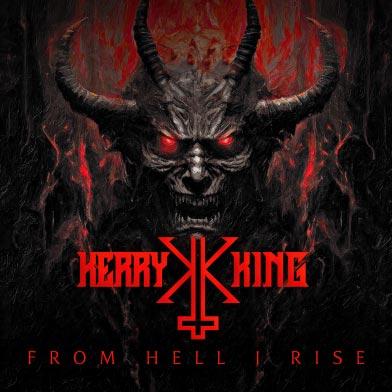
fast punk, thrash, or just plain heavy metal.”
Accompanying the announcement is the release of the debut track titled “Idle Hands,” a fast-paced and aggressive composition, characteristic of King’s signature style. Fans can experience the relentless energy of the track on YouTube.
RPM’s co-founder and President, Gerardo Martinez, expressed the label’s enthusiasm for collaborating with Kerry King on his solo project. “The joy of working on Slayer’s last album, Repentless, and to be reunited with my brother on his new musical journey doesn’t get any better!”
Kerry King, recognized for cowriting Slayer’s iconic songs such as “Mandatory Suicide,” “Repentless,” and “Raining Blood,” remains an influential figure in the metal genre. Having
garnered four Gold albums, two Gold and one Platinum longform videos, and five Grammy nominations with two wins, King’s impact on the metal scene is undeniable.
The guitarist, known for his allegiance to the Raiders, love of snakes, and taste for Jagermeister, expressed his dedication to music. “Even with a record in the can, I’ve still got so many songs that need to be finished. This is what I know how to do... number one being music, number two being metal. It’s been a part of my life for 40 years, and I’m nowhere near being done.”
In perpetuity, Kerry King remains a self-proclaimed “metal kid,” poised to deliver a solo album that echoes his unwavering commitment to the genre. As the countdown to “From Hell I Rise” begins, fans can anticipate an electrifying addition to King’s illustrious musical legacy.
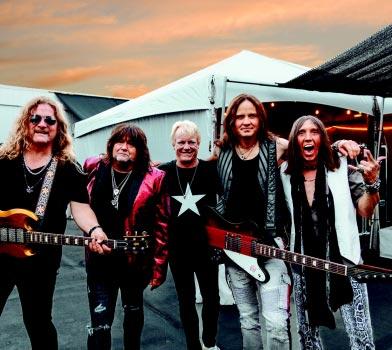
For More Information Please Visit: Official Website @ https://teslatheband.com/ Spotify @ https://open.spotify.com/artist/0dgnITyIAN4NrmUVisvxHU Facebook @ https://www.facebook.com/TeslaBand/ Twitter @ https://twitter.com/teslaband Instagram @ https://www.instagram.com/teslaband/ YouTube @ https://www.youtube.com/teslaband
By Nathan PughLegendary rock band TESLA is gearing up to electrify fans with a double dose of excitement. As anticipation mounts for their latest release, ‘Real to Reel Vol I’, and the revelation of their expansive tour plans, the stage is set for a year-long celebration of rock and roll at its finest.
Mark your calendars for April 20, 2024, as TESLA proudly announces the arrival of ‘Real to Reel Vol I’ on Record Store Day. This limited edition double LP is a testament to the band’s reverence for classic rock tunes from the late ’60s and early ’70s. Originally introduced in 2007, the album has been meticulously remastered, capturing the raw, authentic sound of a bygone era. Recorded using analog tape and vintage equipment, each
track pulsates with the energy and passion that have defined TESLA’s storied career. Limited to just 1500 copies, the double LP will be available in striking clear red vinyl, promising a visually stunning addition to any music lover’s collection.
But the excitement doesn’t end there. TESLA is also embarking on an epic tour, set to kick off on March 1st in Kentucky and extend all the way through August. Dubbed the “Keepin’ It Real” Tour, this electrifying musical journey promises to captivate audiences with the band’s signature sound and unparalleled stage presence. From intimate club gigs to massive arena shows, fans can expect nothing less than a rock and roll extravaganza that will leave them begging for more.
In addition to their tour, TESLA is set to rock the House of Blues Las Vegas inside Mandalay Bay Resort and Casino with their highly anticipated residency, ‘TESLA: The Las Vegas Takeover’. Scheduled for April 5, 6, 10, 12, and 13, 2024, these exclusive shows promise to touch all sides of the band’s unique discography. From the heavier edge of electric songs like “Modern Day Cowboy” to the acoustic-driven melodies of “Signs” and “Love Song”, TESLA is ready to show fans an unforgettable time in Sin City.
As fans eagerly await the release of ‘Real to Reel Vol I’ and the kickoff of the “Keepin’ It Real” Tour, TESLA’s legacy continues to loom large in the world of rock music. Born in the vibrant music scene of Sacramento, CA, in 1984, the band quickly rose to prominence with their platinum debut album, ‘Mechanical Resonance’. Hits like “Modern Day Cowboy” and “Little Suzi” catapulted them to stardom, paving the way for future triumphs like ‘The Great Radio Controversy’ and ‘Psychotic Supper’. Yet, despite their success, TESLA has never lost sight of their roots, remaining steadfast in their commitment to the bluesy, soulful sound that first captured the hearts of fans worldwide.
With Jeff Keith’s powerful vocals leading the charge, Frank Hannon and Dave Rude’s electrifying guitar work, Brian Wheat’s solid bass lines, and Steve
continued on next page
(continued from previous page)
Brown’s thunderous drumming, TESLA continues to defy the odds and push the boundaries of rock and roll. As they prepare to unleash ‘Real to Reel Vol I’ upon the world and embark on their latest tour, one thing is abundantly clear: TESLA is not just a band; they’re a force of nature, a timeless reminder of the power of music to unite, inspire, and electrify us all.
The band’s enduring legacy is a testament to their resilience and dedication to their craft. From humble beginnings in Sacramento, CA, to platinum success with albums like ‘Mechanical Resonance’ and ‘The Great Radio Controversy’, TESLA has remained true to their roots while evolving with the times. Their ability to seamlessly blend blues, soul, and rock into a sound that is uniquely their own has earned them a dedicated fanbase and cemented their status as one of rock music’s most iconic acts.
With the release of ‘Real to Reel Vol I’ and the launch of their “Keepin’ It Real” Tour, TESLA is poised to embark on the next chapter of their storied career. As they continue to push the boundaries of rock and roll, one thing is for certain: the legacy of TESLA will live on for generations to come.
Tracklisting:
1. Space Truckin’ (Deep Purple1972)
2. Walk Away (The James Gang1971)
3. Hand Me Down World (The Guess Who - 1970)
4. Bad Reputation (Thin Lizzy - 1977)
5. Thank You (Led Zeppelin - 1969)
6. I’ve Got A Feeling (The Beatles1970)
7. Day of the Eagle (Robin Trower1974)
8. Ball of Confusion (The Temptations - 1970)
9. Rock Bottom (UFO - 1974)
10. Stealin’ (Uriah Heep - 1973)
11. Bell Bottom Blues (Derek and the Dominos - 1970)
12. Honky Tonk Women (The Rolling Stones - 1969)
13. Dear Mr. Fantasy (Traffic - 1967)
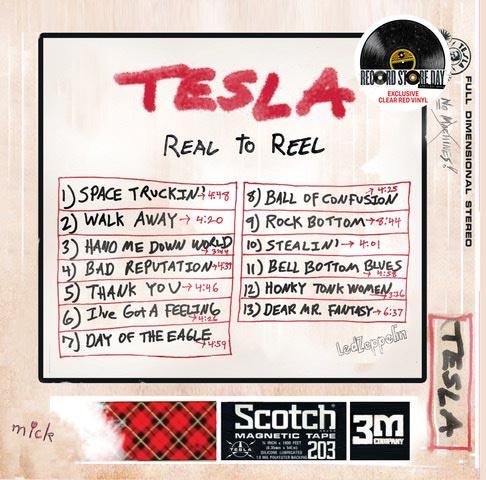
Mar 1 @ Paramount Arts Center in Ashland , KY
Mar 2 @ Blue Gate PAC in Shipshewana , IN
Mar 5 @ American Music Theatre in Lancaster , PA
Mar 6 @ Sound Board at MotorCity Casino Hotel in Detroit , MI
Mar 8 @ EPIC Event Center in Green Bay, WI
Mar 9 @ Silver Creek Event Center @ Four Winds Casino in New Buffalo , MI
Mar 12 @ Ryman Auditorium in Nashville , TN
Mar 13 @ Durham Performing Arts Center in Durham , NC
Mar 16 @ MGM Northfield in Northfield, OH
Mar 23 @ Grand Sierra Resort in Reno, NV
Apr 5 @ House of Blues in Las Vegas, NV
Apr 6 @ House of Blues in Las Vegas, NV
Apr 10 @ House of Blues in Las Vegas, NV
Apr 12 @ House of Blues in Las Vegas, NV
Apr 13 @ House of Blues in Las Vegas, NV
Apr 18 @ Pima County Fair in Tucson, AZ
May 29 @ Pikes Peak Center in Colorado Springs, CO
May 31 @ House of Blues in Dallas , TX
Jun 4 @ ACL Live at Moody Theater in Austin , TX
Jun 5 @ Aztec Theatre in San Antonio , TX
Jun 7 @ House of Blues in Houston, TX
Jun 11 @ Mission Ballroom in Denver, CO
Jun 13 @ Peppermill Concert Hall in Wendover , NV
Jun 14 @ Peppermill Concert Hall in Wendover , NV
Jul 20 @ Beaver Dam Amphitheater in Beaver Dam , KY ROCK the DAM
Jul 25 @ Coeur d’Alene Casino Resort in Worley, ID
Jul 27 @ Canyon County Fair in Caldwell, ID
Aug 25 @ Mountain Music Festival in Gatlinburg, TN
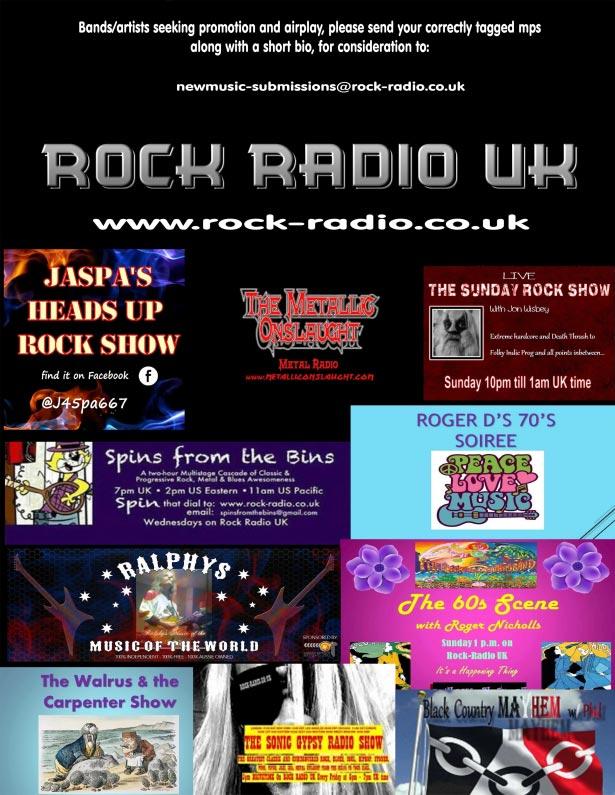


(continued from previous page)
By Greg FontainePearl Jam, the iconic alternative rock band, has revealed exciting news for fans worldwide: their twelfth studio album, titled “Dark Matter,” is slated for release on April 19, 2024. Accompanying this eagerly awaited album is a monumental 35-date global tour, set to kick off this May. The album will be released under Monkeywrench Records/ Republic Records, representing a significant milestone for the band as their first release since the critically acclaimed “Gigaton” in 2020.
“Dark Matter,” produced by the multi-GRAMMY® award-winning producer Andrew Watt, captures the raw essence and collaborative energy of Pearl Jam like never before. The band, comprising Eddie Vedder (vocals), Jeff Ament (bass), Stone Gossard (rhythm guitar), Mike McCready (lead guitar), and Matt Cameron (drums), immersed themselves in the creative process at Shangri-La Studios in Malibu alongside Watt.
In an intense burst of inspiration, “Dark Matter” was crafted within a mere three weeks, with the musicians facing each other in the studio, fostering a deeply connected and organic musical exchange. The album encapsulates the essence of a lifelong bond between creative souls, with every track resonating with the passion and dedication that have defined Pearl Jam’s illustrious career.
During a special preview event held at the iconic Troubadour in West Hollywood, Eddie Vedder expressed his excitement about the album, stating, “I’m getting chills, because I have good memories. We’re still looking for ways to communicate. We’re at this time in our lives when you could do it or you could not do it, but we still care about putting something out there that is
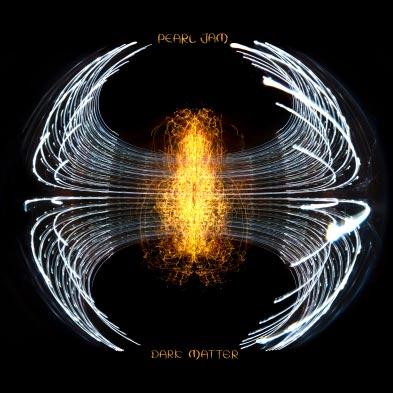
meaningful and we hopefully think is our best work.”
Jeff Ament echoed Vedder’s sentiments, highlighting the importance of their collaboration with Andrew Watt and the infectious enthusiasm he brought to the project. Ament stated, “What Ed said about getting us in a room at this point, we felt like we were about to make a really important record. A lot of that had to do with the atmosphere Andrew set up... His excitement was contagious. He’s a force. I just want to say thanks for keeping us on track. I couldn’t be prouder of us as a band. I feel so grateful for the fans, but mostly for my brothers and these people I’ve made music with.”
To celebrate the release of “Dark Matter,” Pearl Jam is partnering with indie record stores for a special edition available on April 20, exclusively as part of Record Store Day. This edition promises a unique experience for fans and collectors alike.
The album’s artwork, a stunning display of light painting by artist
Alexandr Gnezdilov, adds another layer of intrigue to “Dark Matter.” Gnezdilov’s technique involves using a camera’s extended exposure and a light source to create mesmerizing visual compositions. The album cover, crafted with meticulous detail, showcases a kaleidoscopic effect achieved through intricate light painting.
In conjunction with the album release, Pearl Jam is embarking on a monumental world tour, marking the first time the band has announced both a new album and a tour simultaneously. The tour will span nine countries and 25 cities, including iconic venues such as Wrigley Field, Madison Square Garden, and Fenway Park. Notably, the tour includes the band’s first hometown performance in six years at Seattle’s Climate Pledge Arena, the world’s first net-zero-certified arena.
Support acts for the tour include Deep Sea Diver, Glen Hansard, The Murder Capital, Richard Ashcroft, and continued on next page
(continued from previous page)
Pixies, adding to the excitement of the live experience.
Since their inception in 1990, Pearl Jam has garnered widespread acclaim and commercial success, selling over 85 million albums worldwide and earning induction into the Rock and Roll Hall of Fame in 2017. Beyond their musical achievements, the band has been a vocal advocate for numerous social causes, leveraging their platform to effect positive change.
Through their Vitalogy Foundation, Pearl Jam has raised over $50 million for various charitable organizations, addressing issues ranging from climate change to healthcare access. Their commitment to activism and philanthropy continues to inspire fans and communities worldwide.
As Pearl Jam embarks on this new chapter with “Dark Matter” and the accompanying world tour, their legacy of musical excellence and social consciousness remains as vibrant as ever.
For more information on Pearl Jam, “Dark Matter,” and tour dates, visit www.pearljam.com.

Date
CityVenue
May 04 Vancouver, BC Rogers Arena
May 06 Vancouver, BC Rogers Arena
May 10 Portland, OR Moda Ce
May 13 Sacramento, CA Golden 1 Cente
May 16 Las Vegas, NV MGM Grand Garden Arena
May 18 Las Vegas, NV MGM Grand Garden Arena
photo credit: Mind Art Visual
May 21 Angeles,LosCA Kia Forum
May 22 Angeles,LosCA Kia Forum
May 25** Valley,NapaCA BottleRock Festival
May 28 Seattle, WA Climate Pledge Arena
May 30 Seattle, WA Climate Pledge Arena
Jun 22 Dublin, IE M
Jun 25 Manchester , UK Manchester Co-Op Live
Jun 29 London, UK Tottenham Hotspur Stadium
Jul 02 Berlin, DE Waldbühne
Jul 03 Berlin, DE Waldbühne
Jul 06 Barcelona, ES Palau San
Jul 08 Barcelona, ES Palau San
Jul 11** Madrid, SE Mad C
Jul 13** Lisbon, PT NOS Alive Festival
Aug 22 Missoula, MT Washington-Grizzly Stadium
Aug 26* Indianapolis, IN Ruof f Music Center
8. Running
Aug 29 Chicago, IL Wrigley Field
Aug 31 Chicago, IL Wrigley Field
Sep 03 New York, NY Madison Square Garden
Sep 04 New York, NY Madison Square Garden
Sep 07 Philadelphia, P A Wells Fargo Center
Sep 09 Philadelphia, P A Wells Fargo Center
Sep 12 Baltimore, MD CFG Bank Arena
Sep 15 Boston, MA Fenwa
Sep 17 Boston, MA Fenway
Nov 08 Auckland, NZ Go Media Stadium Mt
Nov 13 Gold Coast, AU Heritage Bank Stadium
Nov 16 AUMelbourne, Marvel Stadium
Nov 21 Sydney , AU Giants Stadium
* Rescheduled date from 2022
** Festival dates are already on sale
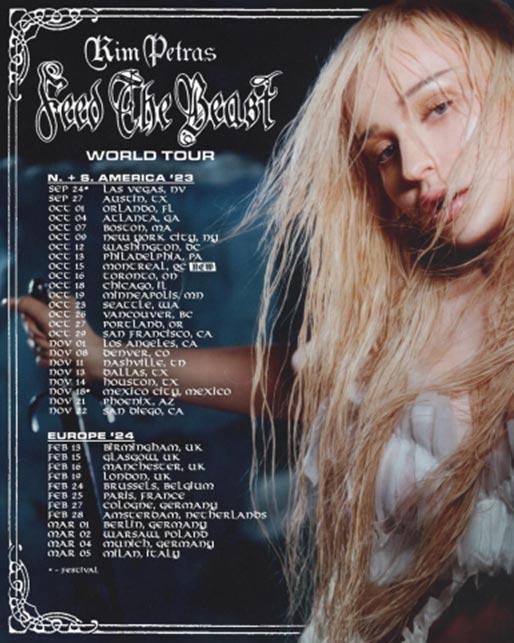
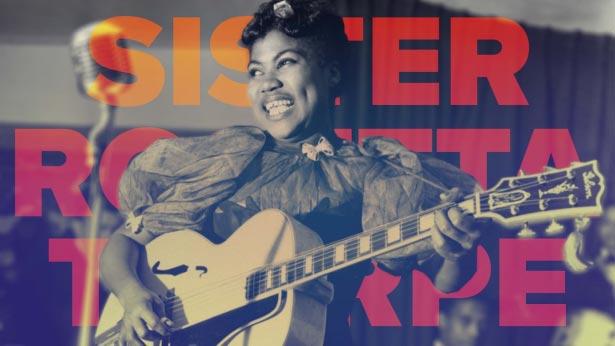
Sister Rosetta Tharpe was such a beautiful light and for her to have such faith in her music and her spirit and no doubt to see a lot of darkness, there’s a lot to be learned from that. I think there’s a lot to learn from an artist like her who started doing it at five or six years old and then did it throughout her whole career and really had a passion for it. She just had a God-given gift.
By Deshaun PhillipsSister Rosetta Tharpe, a trailblazing figure in American music whose legacy had long been overshadowed, is set to reclaim her rightful place in the annals of music history with an eagerly anticipated release. Revered as the “Godmother of Rock ‘n’ Roll,” her influence reverberates through the ages, from her groundbreaking performances to her pioneering recordings.
Tharpe’s ascent to prominence was marked by groundbreaking achievements. Her posthumous induction into the Rock and Roll Hall of Fame in 2018, with a stirring tribute by Brittany Howard of Alabama Shakes, marked a long-overdue acknowledgment of her contributions. Furthermore, her pivotal role in shaping the early careers of icons like Elvis Presley, as portrayed by Yola in Baz Luhrmann’s 2022 Elvis feature
– Susan Tedeschifilm, solidified her status as a musical luminary.
Now, on April 20th, music enthusiasts worldwide will have the opportunity to immerse themselves in Tharpe’s electrifying presence with the release of a limited edition 2-LP set titled Live in France: The 1966 Concert in Limoges. Recorded on November 11, 1966, at the Grand Theater in Limoges, France, this collection features 21 tracks of previously unreleased performances capturing Tharpe at the zenith of her powers.
Tharpe’s connection with French audiences was profound, as evidenced by her relentless touring throughout Europe in the ’60s. Her 1966 concert in Limoges marked her third visit to the city, where she captivated audiences with her unmatched talent and charisma. The recording, preserved by the Office de
Radiodiffusion-Télévision Française (ORTF), lay dormant until unearthed by Zev Feldman, an esteemed archivist hailed as “The Indiana Jones of Jazz.” Feldman’s discovery of this musical treasure trove in the INA archives ignited widespread excitement among music enthusiasts.
Describing the significance of the find, Feldman remarked, “Sister Rosetta Tharpe remains a towering figure in music history, and this recording offers a rare glimpse into her captivating live performances.” Working tirelessly to ensure the proper treatment of this historic material, Feldman meticulously curated the release under his Deep Digs imprint, in collaboration with Elemental Music.
Live in France isn’t merely a
continued on next page
(continued from previous page)
collection of tracks; it’s a testament to Tharpe’s enduring legacy. Lavishly packaged with rare photographs, detailed liner notes, and insightful commentary from Tharpe experts and contemporary musicians, the set provides a comprehensive exploration of her impact on music. Gayle Wald, author of Shout, Sister Shout!: The Untold Story of Rock-and-Roll Trailblazer Sister Rosetta Tharpe, penned a poignant essay underscoring Tharpe’s status as the first guitar heroine of rock & roll. Jean Buzelin, author of Sister Rosetta Tharpe: La femme qui inventa le Rock ‘n’ Roll, offers poignant insights into Tharpe’s relationship with French audiences and her enduring influence on guitarists worldwide.
The album also features heartfelt reflections from those personally touched by Tharpe’s music. Donna Rhea Hamilton, whose family hosted Tharpe during her visit to Tullahoma, Tennessee, reminisces about the singer’s warmth and humility. Additionally, luminaries such as Bonnie Raitt, Susan Tedeschi, Billy F Gibbons, Shemekia Copeland, Henry Rollins, and Brian Ray pay tribute to Tharpe’s groundbreaking contributions and enduring influence.
Bonnie Raitt, renowned for her own contributions to music, reflects, “Rosetta was one of the most beloved and influential artists ever in gospel music...and she blazed a trail for the rest of us women guitarists with her indomitable spirit and accomplished, engaging style. She has long been deserving of wider recognition and a place of honor in the field of music history.” Susan Tedeschi echoes the sentiment, stating, “I don’t know of anybody really who plays exactly like she does, but I can hear her influence in people from Little Richard to Elvis Presley, to Clapton, to Johnny Cash, Jerry Lee Lewis, a lot of different people. You can hear her in their playing, so when you hear that rock and roll thing, it really kind of comes from her.”
Furthermore, Tharpe’s influence extended far beyond the confines of America’s borders. Shemekia Copeland reflects, “If Rosetta had been a Mister instead of a Sister, she would have been as famous as Little Richard, Chuck
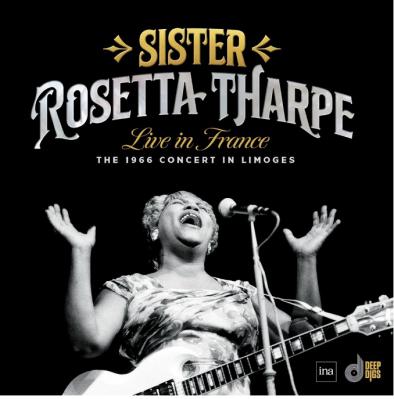
Berry, or even Elvis. In fact, she inspired all of them. She was that original. And she’s an inspiration to me every time I perform. Sister Rosetta rocked!!!!” This sentiment is echoed by Henry Rollins, who emphatically states, “Sister Rosetta rocks absolutely.”
In essence, Live in France: The 1966 Concert in Limoges is not just an album; it’s a celebration of Sister Rosetta Tharpe’s indelible imprint on the fabric of music history. With its release on Record Store Day, Tharpe’s legacy is poised to captivate and inspire audiences anew, ensuring that her contributions continue to resonate for generations to come.
LP 1 / SIDE A
1. This Train (4:25) – R. Tharpe
2. When My Life Work Is Ended (3:45) –W.W. Harris, A.J. Bell
4. Mother’s Prayer (5:26) – J.W. Van de Venter
SIDE B
1. Up Above My Head, I Hear Music in the Air (Trad. - arr. R. Tharpe) (2:20)
2. Moonshine (2:52) - R. Tharpe
3. Sit Down (2:23) – N. Sherman - J. Keller
4. Down by the Riverside (3:33) – Trad.
5. When The Saints Go Marching In (2:23) – Trad. - arr. R. Tharpe
6. Joshua Fought The Battle of Jericho (2:18) – Trad. - arr. R. Tharpe
LP 2 / SIDE C
1. Jesus Met the Woman at the Well (4:29) – J.W. Alexander, K. Morris
2. Two Little Fishes, Five Loaves of Bread (2:41) – B. Hanighen
3. Traveling Shoes (3:19) – Traditional
4. Beams of Heaven (2:55) – C.A. Tindley
5. That’s All / Denomination Blues (2:58) – R. Tharpe, W. Phillips
6. Going Home (2:40)
SIDE D
1. Go Ahead (3:12) – C. Jeter
2. Bring Back Those Happy Days (3:11) – R. Tharpe
3. Give me That Old Time Religion (2:04) – Traditional
4. If Anybody Above Me (1:48) – M. Kenney
5. Nobody’s Fault But Mine (4:26) –Traditional
Recorded on November 11, 1966 at the Grand Theater in Limoges, France

UMe CELEBRATES THE 20th Anniversary
Groundbreaking Debut Frank With
The Release Of F**K ME PUMPS
The Last Of Three Digital EPs
In commemoration of the 20th anniversary of Amy Winehouse’s seminal debut album “Frank,” Universal Music Enterprises (UMe) has unveiled a series of releases aimed at celebrating the enduring legacy of the iconic singersongwriter. Among the offerings are three EPs—In My Bed, Take The Box, and F**k Me Pumps—previously only available on vinyl but now making their digital debut. Each EP is a treasure trove for fans, featuring a collection of Bsides, alternate takes, and live versions of some of Winehouse’s early singles, including notable tracks such as “Best Friend (Acoustic),” “(There Is) No Greater Love – AOL Session,” and “Take the Box (The Headquarters Mix).”
Accompanying this digital reissue is the release of Frank on a stunning 2LP picture disc format. LP1 features the original classic sleeve artwork, while LP2 showcases two captivating images captured by esteemed photographer Valerie Phillips during the album’s original photo session in 2003.
Frank, recorded when Winehouse was still in her teens, introduced the world to a prodigious talent—a songwriter and singer whose soulful voice and candid lyricism would captivate audiences globally. The album featured hit singles like “Take The Box,” “Stronger Than Me,” “F**k Me Pumps,” and “In My Bed,” establishing Winehouse as a force to be reckoned with in the music industry. With its fusion of breezy funk, dub, and jazzinflected soul, Frank received widespread critical acclaim, earning praise from publications like The New York Times and The Guardian.
Commercially, Frank enjoyed significant success, achieving triple platinum status in the UK and reaching the top of the UK Jazz & Blues albums

chart. Despite debuting at #3 on the overall UK album charts, the album’s impact was undeniable, solidifying Winehouse’s status as a rising star.
Beyond its commercial achievements, Frank also garnered recognition within the music industry. Winehouse received nominations for British Female Solo Artist and British Urban Act at the prestigious BRIT Awards, and the album was shortlisted for the Mercury Music Prize. Notably, Winehouse was honored with the Ivor Novello Award for her exceptional songwriting and composing abilities.
The reissue of Frank and the accompanying EPs offer fans a deeper dive into Winehouse’s early work, showcasing the raw talent and charisma that would come to define her career. The included images provide a glimpse into Winehouse’s early days as an artist, capturing the essence of her magnetic personality and distinctive style.
Looking ahead, fans can anticipate the release of the highly-anticipated
biopic Back to Black, which delves into Winehouse’s vibrant years in London and her meteoric rise to fame. Directed by acclaimed filmmaker Sam TaylorJohnson and featuring breakout star Marisa Abela in the lead role, the film promises to provide an intimate and compelling portrayal of Winehouse’s life and legacy.
Winehouse’s impact on the music industry continues to resonate, with her catalog of timeless hits generating millions of streams each month. Her 2006 album Back To Black further solidified her status as a global icon, earning her a record-breaking five Grammy Awards, including coveted accolades such as Record Of The Year and Song of The Year for the unforgettable single “Rehab.”
As fans celebrate the 20th anniversary of Frank and eagerly anticipate the release of Back to Black, Winehouse’s enduring influence and unparalleled talent remain as potent as ever, ensuring her rightful place among the pantheon of music legends.

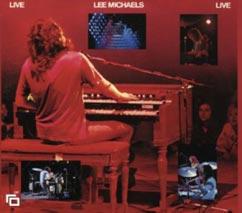
Down time: Otis Redding sang about it on his famous “Sittin’ On The Dock Of The Bay”. Sittin’ in the morning sun I’ll be sittin’ when the evening comes watching the ships roll in then I watch ‘em roll away again…. There’s just something about down time when you finally shut it all down and kick back. For me this time around I was thinking about a recent memory. A friend of mine was in a rural area close to his town and had gone to an estate sale. Of all things to find there was this old Hammond B3 and Leslie. He asked if anything was wrong with it and they said they didn’t know for sure but it didn’t turn on. He bought both pieces for $200. I think he was going to add it to the furniture in his recording studio. However that didn’t happen. A session musician that was new to working with him saw the B3 and said he knew how to fix them. Upon just a quick inspection he found the problem immediately, a switch was faulty. Soon they had this collector’s item humming right along. If you are not familiar the Hamond B3 and Leslie family of equipment a guy named Lee Michaels came along in the early 70’s and blew everybody away being the first rocker to kick ass on this setup. To this day keyboard players love to record using this magnificent system. By the way Lee Michaels is the man that penned the iconic tune “Do You Know What I Mean”. Personally I really like his rendition of “Stormy Monday” although the tune was made famous by T Bone Walker and then later reprised by the Allman Brothers. The Michaels version takes you to church when he turns the B3 loose. Today I think he owns a restaurant/bar in Marina Del Rey. The name of it is Killer Shrimp Restaurant and Bar, quite the place and as you might expect excellent live entertainment. My down time wasn’t because my scooter needed work. It just felt like it was time to chill and reflect. I had lunch with Robbie Parrish the well known sonic drum expert to the stars. He was sharing some music history with me and his recollections sparked a desire for all things shall we say 60’s and 70’s. The man has either tuned drums for or played drums for quite a number of major stars. He told me about drumming for Grace Jones at Studio 54 in New York City and how he met David Bowie while performing who by the way immediately hired him to perform with his band. He shared how into sonic tuning the English and Europeans were in that era and still are to this day. Robbie still gets calls from groups like The Rolling Stones for example and other highly visible acts. Anyway Robbie’s trip down memory lane sparked my own memories. My memories are not as illustrious as his but to me personally sacred in their own right. Memories about gravitating toward the blues because of the vinyl releases back then. Artists like Janis Joplin whose raspy voice was killer. Her songs would come on the radio and everybody would stop and listen. Kozmic Blues alone would become a smash hit and it would reside on the only solo album she recorded in her short lifetime. Your ear picks up on the remarkable raspy strains of her bending notes and deep in your heart you just know that nobody could deliver a song like that without having lived it. It was marvelous to say the least. I learned about these places called juke joints and when a blues number would come on FM Joplin’s music right fit in and you knew she was the real thing. A real blues artist
continued on next page
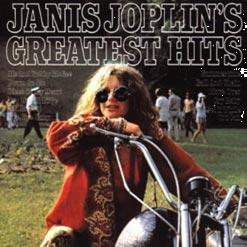
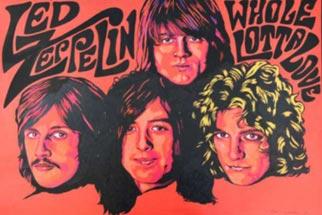
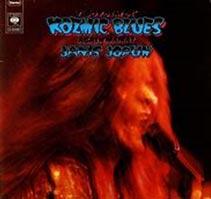
doesn’t just play the blues they deliver the raw feeling. Ray Charles had entered onto the scene and his music was charting big time. Songs about common bad boy habits as can be heard in “Hit The Road Jack”. The blues had exploded onto the scene and by the early seventies rockers were recording and releasing numbers which became major hits. An example was the introduction of Led Zeppelin whose blues rock tracks were way over the top. Their “Whole Lotta Love” was so revolutionary that many AM stations wouldn’t even spin it. This lack of AM support furthered the expansion of FM which was introducing even more “daring” numbers within this era. I remember sitting in living rooms but not on furniture, on the floor in circles. We would drink this new wine named MD-2020 (Mad Dog) and get lost in these new sounds. Love was the theme of the late sixties and early to mid 70’s. Zeppelin’s albums hit the mark dead on. I was riding my first bike back then, a chopped 650 BSA. Older people would look at it and scoff, younger people would smile and nod yes, it was quite the era. BSA was cool but Harley Davidson was where it was at. My second chopped scooter was Harley’s Sportster the first year of their 1,000cc engine with left side shifting. So as the music of the era progressed so too did my interest in custom bikes and the fresh new sounds of the blues and blues rock. My favorite late afternoon ride was to this place named Sabino Canyon. Once the sun would begin to set you could hear the reoccurring sounds of motorcycle engines purring, riders shifting through the gears on this long black curly snake of a highway. Nothing could beat it. Bikers were coming to southern Arizona from all over the United States. Long hairs and girls not wearing bras were invading this up until then conservative city. Quite the addition, peaceful people with only smiles and love on their minds. Interestingly enough the cops left everyone alone if you were not hassling somebody. I learned about this man named Ghandi and his idea of peaceful revolution. Quite the opposite attitude of the older “me Tarzan you Jane” of the 50’s. Peaceful demonstrations against the Vietnam war formed and that is about the time when Kent State happened. It was shocking, unarmed students were mowed down for doing nothing more than protesting. But even Kent State could not stop the peace movement, it expanded and change came with it. The Doobie Brothers started coming on strong in the early 70’s and by the mid-seventies songs like “Taking It To The Streets” were right on time. A good wholesome sound that laid it all out. This is when I met a guy named Speed Freak Ray who I had heard made the best ribs and sauce around. A biker who loved trikes and man this guy could turn out some righteous ribs. His little kitchen was inside a strip joint and so I went there for the ribs and stayed for a few additional cold beers. Yep, the ribs and good looking women dancing. Ray introduced me to a young perky gal, a dancer in her early twenties. We hit it off and soon she was riding with me and we were enjoying each other’s company.
continued on next page
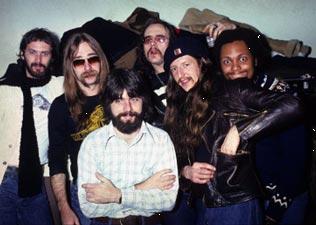

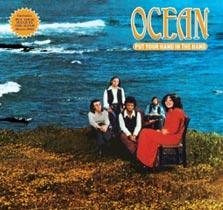
Life was good, real good. Her favorite song to dance to was the Timmy Thomas tune “Why Can’t We Live Together”. The place was full just about everyday of the week and Ray’s ribs were a big seller so the mix of dancers and good ribs worked for the bar. One day on her day off no less the bar was raided by the city. I remember the newspaper was there and afterward they ran an article about the raid. I don’t know what the effect of the raid and the article was supposed to be but afterward the crowds were larger than before. Too funny. About this time a singer/songwriter named Harry Chapin was going to perform nearby and for two cans of food you could go to his concert at the local college free. This was a novel idea, no one had ever heard of such a thing but the cause was good and so the auditorium was packed. When he performed his “Circles” he received a standing ovation. He told us about world hunger and how it was in our community too. He made a difference, a good difference, not a political stand. He represented decent humane beliefs that became the fuel that continues to exist to this day. It was a good era: most draft beers were twenty five cents, regular gas was twenty eight cents. However nickel candy bars did increase to a dime. A Canadian group named Ocean covered a song titled “Put Your Hand In The Hand” and the release zoomed to number two on Billboard being second only to Three Dog Night’s “Joy To The World” another great song of that era. Ocean’s cover remained in the top ten for weeks. Today I cashed in on some down time wondering if the world has gone completely nuts but then again having lived through, witnessing, people doing good for others I know that hope is alive as well. Change is an interesting part of life. It’s a constant in our lives, we keep witnessing change and hopefully we are all learning. I meet so many solid interesting people on this adventure of mine. When I meet them it does my heart good. I wonder if they are a product of the seeds that were planted so many decades ago. I like to think so. If you have the time to get away let yourself enjoy the good people on this planet. Who knows maybe one day you’ll get the bug to jump on two wheels and not be bound to ride inside a metal cage traveling from point a to point b. Nothing like it and you are bound to meet a mix of really interesting people while stopping at places you probably wouldn’t have stopped at in your car. The sun is about to go down where I am. Yesterday it rained so hard I could not travel by bike. I could have today but I chose to cash in on some down time. Maybe I just needed to write this piece and share a bit of history served up with a dash of hope? Stay cool, don’t let the crazies get you down. Lighten up, set yourself free. Me, I’m going to find some fried fish and tarter sauce or maybe I will find a joint that has some really good ribs and go there. Probably hard to beat Ray’s even after all these years. I remember that experience well. Oh and about that stripper, well if you’ve been reading my articles you know I run into her every now and then. If you are not aware of her you can read the past issues of Rock And Blues International and learn about her in those editions. Until next monthbe cool...later….
